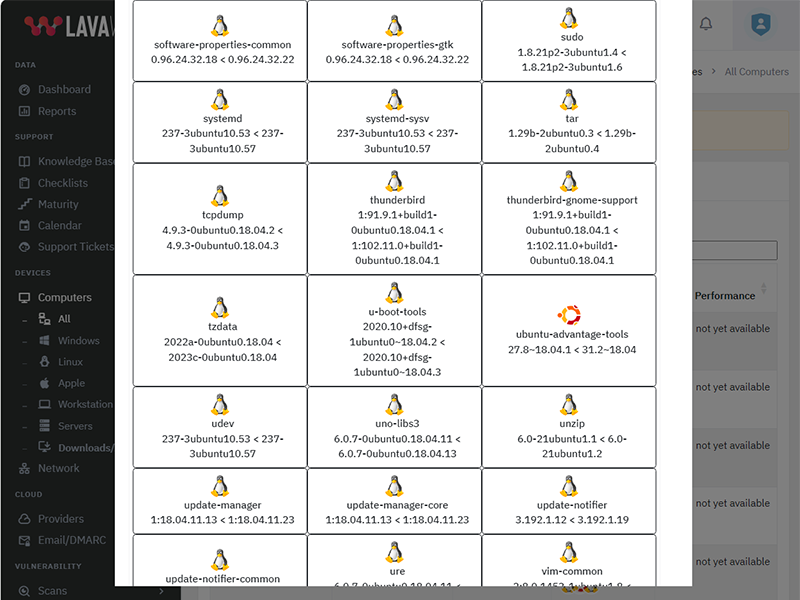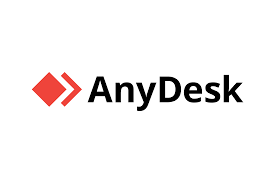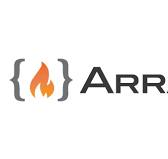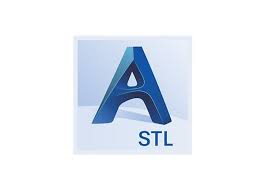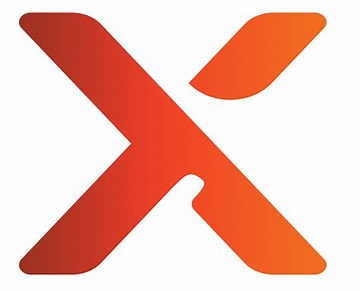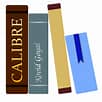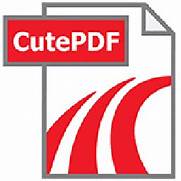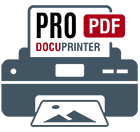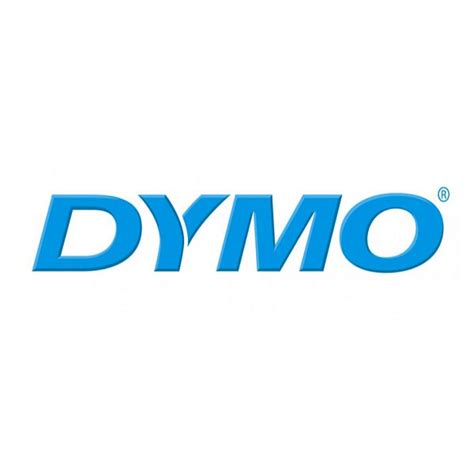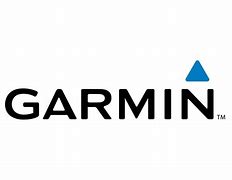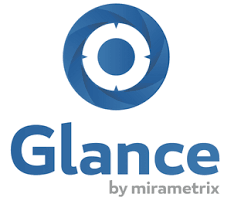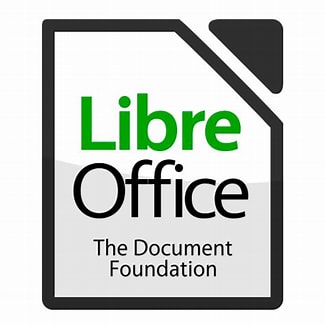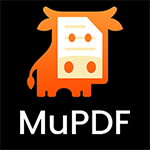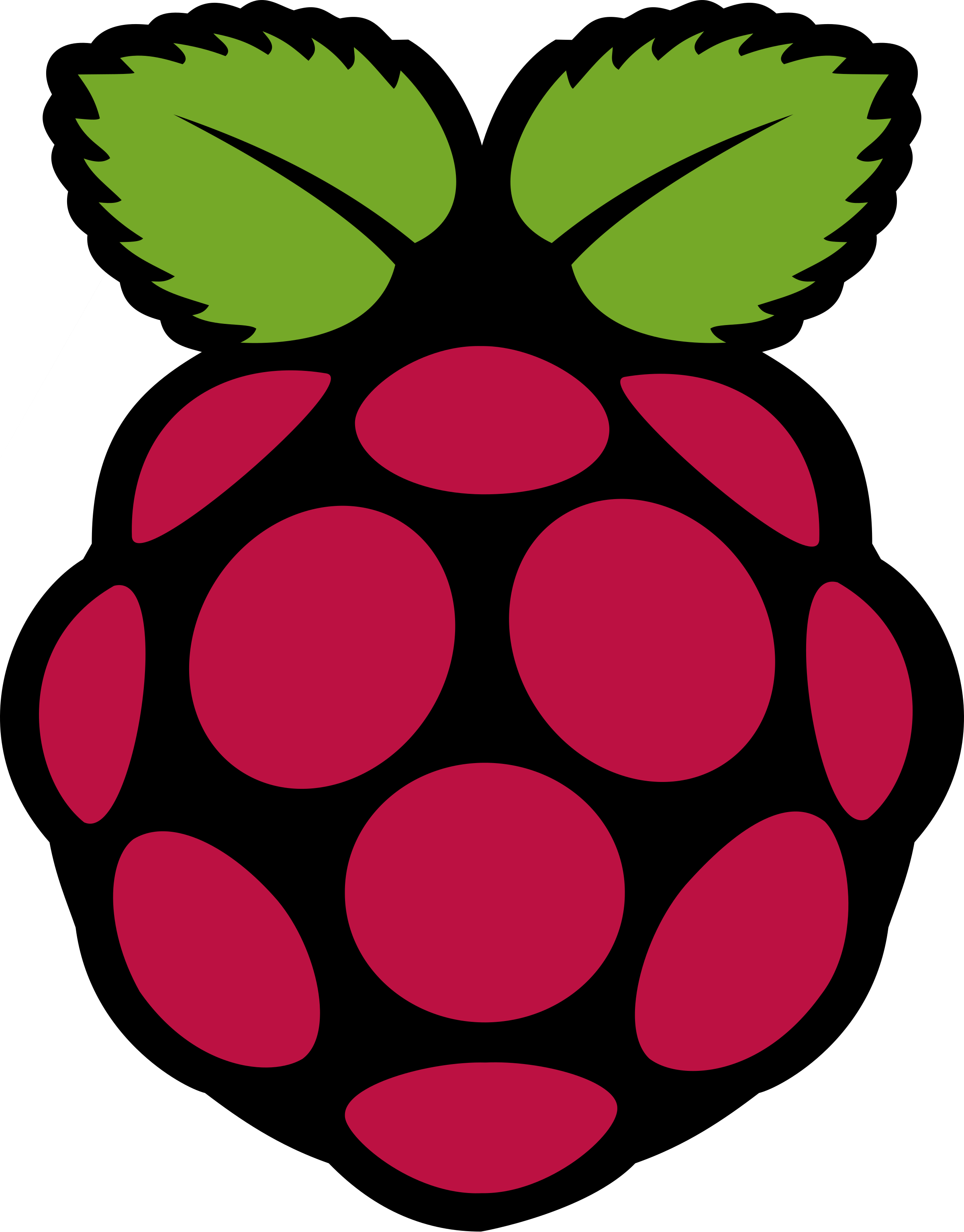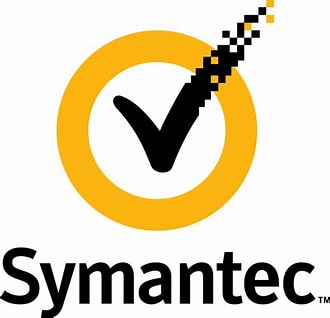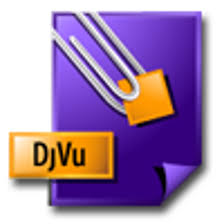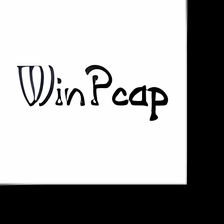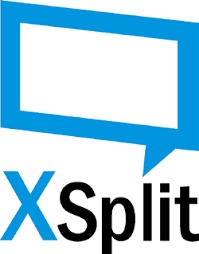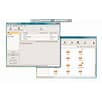
Update Thunderbird to version 136.0.1
What patches are you missing?
CVE Vulnerabilities for Thunderbird
| CVE | Published | Severity | Details | Exploitability | Impact | Vector |
| CVE‑2025‑1020 | 2025‑02‑04 14:15:33 | CRITICAL (10) | Memory safety bugs present in Firefox 134 and Thunderbird 134. Some of these bugs showed evidence of memory corruption and we presume that with enough effort some of these could have been exploited to run arbitrary code. This vulnerability affects Firefox < 135 and Thunderbird < 135. | 4 | 6 | NETWORK |
| CVE‑2025‑1019 | 2025‑02‑04 14:15:33 | MEDIUM (4) | The z-order of the browser windows could be manipulated to hide the fullscreen notification. This could potentially be leveraged to perform a spoofing attack. This vulnerability affects Firefox < 135 and Thunderbird < 135. | 3 | 1 | NETWORK |
| CVE‑2025‑1018 | 2025‑02‑04 14:15:33 | MEDIUM (5) | The fullscreen notification is prematurely hidden when fullscreen is re-requested quickly by the user. This could have been leveraged to perform a potential spoofing attack. This vulnerability affects Firefox < 135 and Thunderbird < 135. | 4 | 1 | NETWORK |
| CVE‑2025‑1017 | 2025‑02‑04 14:15:33 | CRITICAL (10) | Memory safety bugs present in Firefox 134, Thunderbird 134, Firefox ESR 128.6, and Thunderbird 128.6. Some of these bugs showed evidence of memory corruption and we presume that with enough effort some of these could have been exploited to run arbitrary code. This vulnerability affects Firefox < 135, Firefox ESR < 128.7, Thunderbird < 128.7, and Thunderbird < 135. | 4 | 6 | NETWORK |
| CVE‑2025‑1016 | 2025‑02‑04 14:15:32 | CRITICAL (10) | Memory safety bugs present in Firefox 134, Thunderbird 134, Firefox ESR 115.19, Firefox ESR 128.6, Thunderbird 115.19, and Thunderbird 128.6. Some of these bugs showed evidence of memory corruption and we presume that with enough effort some of these could have been exploited to run arbitrary code. This vulnerability affects Firefox < 135, Firefox ESR < 115.20, Firefox ESR < 128.7, Thunderbird < 128.7, and Thunderbird < 135. | 4 | 6 | NETWORK |
| CVE‑2025‑1014 | 2025‑02‑04 14:15:32 | HIGH (9) | Certificate length was not properly checked when added to a certificate store. In practice only trusted data was processed. This vulnerability affects Firefox < 135, Firefox ESR < 128.7, Thunderbird < 128.7, and Thunderbird < 135. | 3 | 6 | NETWORK |
| CVE‑2025‑1012 | 2025‑02‑04 14:15:32 | HIGH (8) | A race during concurrent delazification could have led to a use-after-free. This vulnerability affects Firefox < 135, Firefox ESR < 115.20, Firefox ESR < 128.7, Thunderbird < 128.7, and Thunderbird < 135. | 2 | 6 | NETWORK |
| CVE‑2025‑1011 | 2025‑02‑04 14:15:32 | HIGH (9) | A bug in WebAssembly code generation could have lead to a crash. It may have been possible for an attacker to leverage this to achieve code execution. This vulnerability affects Firefox < 135, Firefox ESR < 128.7, Thunderbird < 128.7, and Thunderbird < 135. | 3 | 6 | NETWORK |
| CVE‑2025‑1010 | 2025‑02‑04 14:15:32 | HIGH (9) | An attacker could have caused a use-after-free via the Custom Highlight API, leading to a potentially exploitable crash. This vulnerability affects Firefox < 135, Firefox ESR < 115.20, Firefox ESR < 128.7, Thunderbird < 128.7, and Thunderbird < 135. | 3 | 6 | NETWORK |
| CVE‑2025‑1009 | 2025‑02‑04 14:15:32 | CRITICAL (10) | An attacker could have caused a use-after-free via crafted XSLT data, leading to a potentially exploitable crash. This vulnerability affects Firefox < 135, Firefox ESR < 115.20, Firefox ESR < 128.7, Thunderbird < 128.7, and Thunderbird < 135. | 4 | 6 | NETWORK |
| CVE‑2024‑9680 | 2024‑10‑09 13:15:12 | CRITICAL (10) | An attacker was able to achieve code execution in the content process by exploiting a use-after-free in Animation timelines. We have had reports of this vulnerability being exploited in the wild. This vulnerability affects Firefox < 131.0.2, Firefox ESR < 128.3.1, Firefox ESR < 115.16.1, Thunderbird < 131.0.1, Thunderbird < 128.3.1, and Thunderbird < 115.16.0. | 4 | 6 | NETWORK |
| CVE‑2024‑9399 | 2024‑10‑01 16:15:11 | HIGH (8) | A website configured to initiate a specially crafted WebTransport session could crash the Firefox process leading to a denial of service condition. This vulnerability affects Firefox < 131, Firefox ESR < 128.3, Thunderbird < 128.3, and Thunderbird < 131. | 4 | 4 | NETWORK |
| CVE‑2024‑9398 | 2024‑10‑01 16:15:11 | MEDIUM (5) | By checking the result of calls to `window.open` with specifically set protocol handlers, an attacker could determine if the application which implements that protocol handler is installed. This vulnerability affects Firefox < 131, Firefox ESR < 128.3, Thunderbird < 128.3, and Thunderbird < 131. | 4 | 1 | NETWORK |
| CVE‑2024‑9397 | 2024‑10‑01 16:15:11 | MEDIUM (6) | A missing delay in directory upload UI could have made it possible for an attacker to trick a user into granting permission via clickjacking. This vulnerability affects Firefox < 131, Firefox ESR < 128.3, Thunderbird < 128.3, and Thunderbird < 131. | 3 | 3 | NETWORK |
| CVE‑2024‑9394 | 2024‑10‑01 16:15:11 | HIGH (8) | An attacker could, via a specially crafted multipart response, execute arbitrary JavaScript under the `resource://devtools` origin. This could allow them to access cross-origin JSON content. This access is limited to "same site" documents by the Site Isolation feature on desktop clients, but full cross-origin access is possible on Android versions. This vulnerability affects Firefox < 131, Firefox ESR < 128.3, Firefox ESR < 115.16, Thunderbird < 128.3, and Thunderbird < 131. | 4 | 4 | NETWORK |
| CVE‑2024‑9393 | 2024‑10‑01 16:15:11 | HIGH (8) | An attacker could, via a specially crafted multipart response, execute arbitrary JavaScript under the `resource://pdf.js` origin. This could allow them to access cross-origin PDF content. This access is limited to "same site" documents by the Site Isolation feature on desktop clients, but full cross-origin access is possible on Android versions. This vulnerability affects Firefox < 131, Firefox ESR < 128.3, Firefox ESR < 115.16, Thunderbird < 128.3, and Thunderbird < 131. | 4 | 4 | NETWORK |
| CVE‑2024‑7529 | 2024‑08‑06 13:15:58 | MEDIUM (7) | The date picker could partially obscure security prompts. This could be used by a malicious site to trick a user into granting permissions. This vulnerability affects Firefox < 129, Firefox ESR < 115.14, Firefox ESR < 128.1, Thunderbird < 128.1, and Thunderbird < 115.14. | 3 | 4 | NETWORK |
| CVE‑2024‑7518 | 2024‑08‑06 13:15:57 | MEDIUM (7) | Select options could obscure the fullscreen notification dialog. This could be used by a malicious site to perform a spoofing attack. This vulnerability affects Firefox < 129, Firefox ESR < 128.1, and Thunderbird < 128.1. | 3 | 4 | NETWORK |
| CVE‑2024‑11159 | 2024‑11‑13 14:15:15 | MEDIUM (4) | Using remote content in OpenPGP encrypted messages can lead to the disclosure of plaintext. This vulnerability affects Thunderbird < 128.4.3 and Thunderbird < 132.0.1. | 3 | 1 | NETWORK |
| CVE‑2024‑10468 | 2024‑10‑29 13:15:04 | MEDIUM (5) | Potential race conditions in IndexedDB could have caused memory corruption, leading to a potentially exploitable crash. This vulnerability affects Firefox < 132 and Thunderbird < 132. | 2 | 4 | NETWORK |
| CVE‑2024‑10467 | 2024‑10‑29 13:15:04 | HIGH (9) | Memory safety bugs present in Firefox 131, Firefox ESR 128.3, and Thunderbird 128.3. Some of these bugs showed evidence of memory corruption and we presume that with enough effort some of these could have been exploited to run arbitrary code. This vulnerability affects Firefox < 132, Firefox ESR < 128.4, Thunderbird < 128.4, and Thunderbird < 132. | 3 | 6 | NETWORK |
| CVE‑2024‑10466 | 2024‑10‑29 13:15:04 | HIGH (8) | By sending a specially crafted push message, a remote server could have hung the parent process, causing the browser to become unresponsive. This vulnerability affects Firefox < 132, Firefox ESR < 128.4, Thunderbird < 128.4, and Thunderbird < 132. | 4 | 4 | NETWORK |
| CVE‑2024‑10465 | 2024‑10‑29 13:15:04 | MEDIUM (7) | A clipboard "paste" button could persist across tabs which allowed a spoofing attack. This vulnerability affects Firefox < 132, Firefox ESR < 128.4, Thunderbird < 128.4, and Thunderbird < 132. | 3 | 4 | NETWORK |
| CVE‑2024‑10464 | 2024‑10‑29 13:15:04 | MEDIUM (7) | Repeated writes to history interface attributes could have been used to cause a Denial of Service condition in the browser. This was addressed by introducing rate-limiting to this API. This vulnerability affects Firefox < 132, Firefox ESR < 128.4, Thunderbird < 128.4, and Thunderbird < 132. | 3 | 4 | NETWORK |
| CVE‑2024‑10463 | 2024‑10‑29 13:15:04 | MEDIUM (7) | Video frames could have been leaked between origins in some situations. This vulnerability affects Firefox < 132, Firefox ESR < 128.4, Firefox ESR < 115.17, Thunderbird < 128.4, and Thunderbird < 132. | 3 | 4 | NETWORK |
| CVE‑2024‑10462 | 2024‑10‑29 13:15:04 | MEDIUM (7) | Truncation of a long URL could have allowed origin spoofing in a permission prompt. This vulnerability affects Firefox < 132, Firefox ESR < 128.4, Thunderbird < 128.4, and Thunderbird < 132. | 3 | 4 | NETWORK |
| CVE‑2024‑10461 | 2024‑10‑29 13:15:04 | MEDIUM (6) | In multipart/x-mixed-replace responses, `Content-Disposition: attachment` in the response header was not respected and did not force a download, which could allow XSS attacks. This vulnerability affects Firefox < 132, Firefox ESR < 128.4, Thunderbird < 128.4, and Thunderbird < 132. | 3 | 3 | NETWORK |
| CVE‑2024‑10460 | 2024‑10‑29 13:15:04 | MEDIUM (5) | The origin of an external protocol handler prompt could have been obscured using a data: URL within an `iframe`. This vulnerability affects Firefox < 132, Firefox ESR < 128.4, Thunderbird < 128.4, and Thunderbird < 132. | 4 | 1 | NETWORK |
| CVE‑2024‑10459 | 2024‑10‑29 13:15:04 | HIGH (8) | An attacker could have caused a use-after-free when accessibility was enabled, leading to a potentially exploitable crash. This vulnerability affects Firefox < 132, Firefox ESR < 128.4, Firefox ESR < 115.17, Thunderbird < 128.4, and Thunderbird < 132. | 4 | 4 | NETWORK |
| CVE‑2024‑10458 | 2024‑10‑29 13:15:04 | HIGH (8) | A permission leak could have occurred from a trusted site to an untrusted site via `embed` or `object` elements. This vulnerability affects Firefox < 132, Firefox ESR < 128.4, Firefox ESR < 115.17, Thunderbird < 128.4, and Thunderbird < 132. | 4 | 4 | NETWORK |
| CVE‑2023‑5726 | 2023‑10‑25 18:17:44 | MEDIUM (4) | A website could have obscured the full screen notification by using the file open dialog. This could have led to user confusion and possible spoofing attacks. *Note: This issue only affected macOS operating systems. Other operating systems are unaffected.* This vulnerability affects Firefox < 119, Firefox ESR < 115.4, and Thunderbird < 115.4.1. | 3 | 1 | NETWORK |
| CVE‑2023‑5725 | 2023‑10‑25 18:17:44 | MEDIUM (4) | A malicious installed WebExtension could open arbitrary URLs, which under the right circumstance could be leveraged to collect sensitive user data. This vulnerability affects Firefox < 119, Firefox ESR < 115.4, and Thunderbird < 115.4.1. | 3 | 1 | NETWORK |
| CVE‑2023‑5217 | 2023‑09‑28 16:15:11 | HIGH (9) | Heap buffer overflow in vp8 encoding in libvpx in Google Chrome prior to 117.0.5938.132 and libvpx 1.13.1 allowed a remote attacker to potentially exploit heap corruption via a crafted HTML page. (Chromium security severity: High) | 3 | 6 | NETWORK |
| CVE‑2023‑50762 | 2023‑12‑19 14:15:07 | MEDIUM (4) | When processing a PGP/MIME payload that contains digitally signed text, the first paragraph of the text was never shown to the user. This is because the text was interpreted as a MIME message and the first paragraph was always treated as an email header section. A digitally signed text from a different context, such as a signed GIT commit, could be used to spoof an email message. This vulnerability affects Thunderbird < 115.6. | 3 | 1 | NETWORK |
| CVE‑2023‑4863 | 2023‑09‑12 15:15:24 | HIGH (9) | Heap buffer overflow in libwebp in Google Chrome prior to 116.0.5845.187 and libwebp 1.3.2 allowed a remote attacker to perform an out of bounds memory write via a crafted HTML page. (Chromium security severity: Critical) | 3 | 6 | NETWORK |
| CVE‑2023‑37207 | 2023‑07‑05 09:15:10 | MEDIUM (7) | A website could have obscured the fullscreen notification by using a URL with a scheme handled by an external program, such as a mailto URL. This could have led to user confusion and possible spoofing attacks. This vulnerability affects Firefox < 115, Firefox ESR < 102.13, and Thunderbird < 102.13. | 3 | 4 | NETWORK |
| CVE‑2023‑32212 | 2023‑06‑02 17:15:13 | MEDIUM (4) | An attacker could have positioned a <code>datalist</code> element to obscure the address bar. This vulnerability affects Firefox < 113, Firefox ESR < 102.11, and Thunderbird < 102.11. | 3 | 1 | NETWORK |
| CVE‑2023‑32205 | 2023‑06‑02 17:15:13 | MEDIUM (4) | In multiple cases browser prompts could have been obscured by popups controlled by content. These could have led to potential user confusion and spoofing attacks. This vulnerability affects Firefox < 113, Firefox ESR < 102.11, and Thunderbird < 102.11. | 3 | 1 | NETWORK |
| CVE‑2023‑29541 | 2023‑06‑02 17:15:13 | HIGH (9) | Firefox did not properly handle downloads of files ending in <code>.desktop</code>, which can be interpreted to run attacker-controlled commands. <br>*This bug only affects Firefox for Linux on certain Distributions. Other operating systems are unaffected, and Mozilla is unable to enumerate all affected Linux Distributions.*. This vulnerability affects Firefox < 112, Focus for Android < 112, Firefox ESR < 102.10, Firefox for Android < 112, and Thunderbird < 102.10. | 3 | 6 | NETWORK |
| CVE‑2023‑29533 | 2023‑06‑02 17:15:12 | MEDIUM (4) | A website could have obscured the fullscreen notification by using a combination of <code>window.open</code>, fullscreen requests, <code>window.name</code> assignments, and <code>setInterval</code> calls. This could have led to user confusion and possible spoofing attacks. This vulnerability affects Firefox < 112, Focus for Android < 112, Firefox ESR < 102.10, Firefox for Android < 112, and Thunderbird < 102.10. | 3 | 1 | NETWORK |
| CVE‑2023‑29532 | 2023‑06‑19 10:15:09 | MEDIUM (6) | A local attacker can trick the Mozilla Maintenance Service into applying an unsigned update file by pointing the service at an update file on a malicious SMB server. The update file can be replaced after the signature check, before the use, because the write-lock requested by the service does not work on a SMB server. *Note: This attack requires local system access and only affects Windows. Other operating systems are not affected.* This vulnerability affects Firefox < 112, Firefox ESR < 102.10, and Thunderbird < 102.10. | 2 | 4 | LOCAL |
| CVE‑2022‑46878 | 2022‑12‑22 20:15:47 | HIGH (9) | Mozilla developers Randell Jesup, Valentin Gosu, Olli Pettay, and the Mozilla Fuzzing Team reported memory safety bugs present in Thunderbird 102.5. Some of these bugs showed evidence of memory corruption and we presume that with enough effort some of these could have been exploited to run arbitrary code. This vulnerability affects Firefox < 108, Firefox ESR < 102.6, and Thunderbird < 102.6. | 3 | 6 | NETWORK |
| CVE‑2022‑45421 | 2022‑12‑22 20:15:45 | HIGH (9) | Mozilla developers Andrew McCreight and Gabriele Svelto reported memory safety bugs present in Thunderbird 102.4. Some of these bugs showed evidence of memory corruption and we presume that with enough effort some of these could have been exploited to run arbitrary code. This vulnerability affects Firefox ESR < 102.5, Thunderbird < 102.5, and Firefox < 107. | 3 | 6 | NETWORK |
| CVE‑2022‑45414 | 2022‑12‑22 20:15:44 | HIGH (8) | If a Thunderbird user quoted from an HTML email, for example by replying to the email, and the email contained either a VIDEO tag with the POSTER attribute or an OBJECT tag with a DATA attribute, a network request to the referenced remote URL was performed, regardless of a configuration to block remote content. An image loaded from the POSTER attribute was shown in the composer window. These issues could have given an attacker additional capabilities when targetting releases that did not yet have a fix for CVE-2022-3033 which was reported around three months ago. This vulnerability affects Thunderbird < 102.5.1. | 3 | 5 | NETWORK |
| CVE‑2022‑42932 | 2022‑12‑22 20:15:41 | HIGH (9) | Mozilla developers Ashley Hale and the Mozilla Fuzzing Team reported memory safety bugs present in Firefox 105 and Firefox ESR 102.3. Some of these bugs showed evidence of memory corruption and we presume that with enough effort some of these could have been exploited to run arbitrary code. This vulnerability affects Firefox < 106, Firefox ESR < 102.4, and Thunderbird < 102.4. | 3 | 6 | NETWORK |
| CVE‑2022‑40962 | 2022‑12‑22 20:15:40 | HIGH (9) | Mozilla developers Nika Layzell, Timothy Nikkel, Sebastian Hengst, Andreas Pehrson, and the Mozilla Fuzzing Team reported memory safety bugs present in Firefox 104 and Firefox ESR 102.2. Some of these bugs showed evidence of memory corruption and we presume that with enough effort some of these could have been exploited to run arbitrary code. This vulnerability affects Firefox ESR < 102.3, Thunderbird < 102.3, and Firefox < 105. | 3 | 6 | NETWORK |
| CVE‑2022‑38478 | 2022‑12‑22 20:15:38 | HIGH (9) | Members the Mozilla Fuzzing Team reported memory safety bugs present in Firefox 103, Firefox ESR 102.1, and Firefox ESR 91.12. Some of these bugs showed evidence of memory corruption and we presume that with enough effort some of these could have been exploited to run arbitrary code. This vulnerability affects Thunderbird < 102.2, Thunderbird < 91.13, Firefox ESR < 91.13, Firefox ESR < 102.2, and Firefox < 104. | 3 | 6 | NETWORK |
| CVE‑2022‑38477 | 2022‑12‑22 20:15:37 | HIGH (9) | Mozilla developer Nika Layzell and the Mozilla Fuzzing Team reported memory safety bugs present in Firefox 103 and Firefox ESR 102.1. Some of these bugs showed evidence of memory corruption and we presume that with enough effort some of these could have been exploited to run arbitrary code. This vulnerability affects Firefox ESR < 102.2, Thunderbird < 102.2, and Firefox < 104. | 3 | 6 | NETWORK |
| CVE‑2022‑34484 | 2022‑12‑22 20:15:34 | HIGH (9) | The Mozilla Fuzzing Team reported potential vulnerabilities present in Thunderbird 91.10. Some of these bugs showed evidence of memory corruption and we presume that with enough effort some of these could have been exploited to run arbitrary code. This vulnerability affects Firefox < 102, Firefox ESR < 91.11, Thunderbird < 102, and Thunderbird < 91.11. | 3 | 6 | NETWORK |
| CVE‑2022‑34478 | 2022‑12‑22 20:15:33 | MEDIUM (7) | The <code>ms-msdt</code>, <code>search</code>, and <code>search-ms</code> protocols deliver content to Microsoft applications, bypassing the browser, when a user accepts a prompt. These applications have had known vulnerabilities, exploited in the wild (although we know of none exploited through Thunderbird), so in this release Thunderbird has blocked these protocols from prompting the user to open them.<br>*This bug only affects Thunderbird on Windows. Other operating systems are unaffected.*. This vulnerability affects Firefox < 102, Firefox ESR < 91.11, Thunderbird < 102, and Thunderbird < 91.11. | 3 | 4 | NETWORK |
| CVE‑2022‑31747 | 2022‑12‑22 20:15:30 | CRITICAL (10) | Mozilla developers Andrew McCreight, Nicolas B. Pierron, and the Mozilla Fuzzing Team reported memory safety bugs present in Firefox 100 and Firefox ESR 91.9. Some of these bugs showed evidence of memory corruption and we presume that with enough effort some of these could have been exploited to run arbitrary code. This vulnerability affects Thunderbird < 91.10, Firefox < 101, and Firefox ESR < 91.10. | 4 | 6 | NETWORK |
| CVE‑2022‑29917 | 2022‑12‑22 20:15:27 | CRITICAL (10) | Mozilla developers Andrew McCreight, Gabriele Svelto, Tom Ritter and the Mozilla Fuzzing Team reported memory safety bugs present in Firefox 99 and Firefox ESR 91.8. Some of these bugs showed evidence of memory corruption and we presume that with enough effort some of these could have been exploited to run arbitrary code. This vulnerability affects Thunderbird < 91.9, Firefox ESR < 91.9, and Firefox < 100. | 4 | 6 | NETWORK |
| CVE‑2022‑28289 | 2022‑12‑22 20:15:25 | HIGH (9) | Mozilla developers and community members Nika Layzell, Andrew McCreight, Gabriele Svelto, and the Mozilla Fuzzing Team reported memory safety bugs present in Thunderbird 91.7. Some of these bugs showed evidence of memory corruption and we presume that with enough effort some of these could have been exploited to run arbitrary code. This vulnerability affects Thunderbird < 91.8, Firefox < 99, and Firefox ESR < 91.8. | 3 | 6 | NETWORK |
| CVE‑2022‑2505 | 2022‑12‑22 20:15:28 | HIGH (9) | Mozilla developers and the Mozilla Fuzzing Team reported memory safety bugs present in Firefox 102. Some of these bugs showed evidence of memory corruption and we presume that with enough effort some of these could have been exploited to run arbitrary code. This vulnerability affects Firefox ESR < 102.1, Firefox < 103, and Thunderbird < 102.1. | 3 | 6 | NETWORK |
| CVE‑2022‑22764 | 2022‑12‑22 20:15:21 | HIGH (9) | Mozilla developers Paul Adenot and the Mozilla Fuzzing Team reported memory safety bugs present in Firefox 96 and Firefox ESR 91.5. Some of these bugs showed evidence of memory corruption and we presume that with enough effort some of these could have been exploited to run arbitrary code. This vulnerability affects Firefox < 97, Thunderbird < 91.6, and Firefox ESR < 91.6. | 3 | 6 | NETWORK |
| CVE‑2022‑22751 | 2022‑12‑22 20:15:17 | HIGH (9) | Mozilla developers Calixte Denizet, Kershaw Chang, Christian Holler, Jason Kratzer, Gabriele Svelto, Tyson Smith, Simon Giesecke, and Steve Fink reported memory safety bugs present in Firefox 95 and Firefox ESR 91.4. Some of these bugs showed evidence of memory corruption and we presume that with enough effort some of these could have been exploited to run arbitrary code. This vulnerability affects Firefox ESR < 91.5, Firefox < 96, and Thunderbird < 91.5. | 3 | 6 | NETWORK |
| CVE‑2021‑43546 | 2021‑12‑08 22:15:10 | MEDIUM (4) | It was possible to recreate previous cursor spoofing attacks against users with a zoomed native cursor. This vulnerability affects Thunderbird < 91.4.0, Firefox ESR < 91.4.0, and Firefox < 95. | 3 | 1 | NETWORK |
| CVE‑2021‑43534 | 2021‑12‑08 22:15:09 | HIGH (9) | Mozilla developers and community members reported memory safety bugs present in Firefox 93 and Firefox ESR 91.2. Some of these bugs showed evidence of memory corruption and we presume that with enough effort some of these could have been exploited to run arbitrary code. This vulnerability affects Firefox < 94, Thunderbird < 91.3, and Firefox ESR < 91.3. | 3 | 6 | NETWORK |
| CVE‑2021‑4129 | 2022‑12‑22 20:15:12 | CRITICAL (10) | Mozilla developers and community members Julian Hector, Randell Jesup, Gabriele Svelto, Tyson Smith, Christian Holler, and Masayuki Nakano reported memory safety bugs present in Firefox 94. Some of these bugs showed evidence of memory corruption and we presume that with enough effort some of these could have been exploited to run arbitrary code. This vulnerability affects Firefox < 95, Firefox ESR < 91.4.0, and Thunderbird < 91.4.0. | 4 | 6 | NETWORK |
| CVE‑2021‑38508 | 2021‑12‑08 22:15:09 | MEDIUM (4) | By displaying a form validity message in the correct location at the same time as a permission prompt (such as for geolocation), the validity message could have obscured the prompt, resulting in the user potentially being tricked into granting the permission. This vulnerability affects Firefox < 94, Thunderbird < 91.3, and Firefox ESR < 91.3. | 3 | 1 | NETWORK |
| CVE‑2021‑38505 | 2021‑12‑08 22:15:09 | MEDIUM (7) | Microsoft introduced a new feature in Windows 10 known as Cloud Clipboard which, if enabled, will record data copied to the clipboard to the cloud, and make it available on other computers in certain scenarios. Applications that wish to prevent copied data from being recorded in Cloud History must use specific clipboard formats; and Firefox before versions 94 and ESR 91.3 did not implement them. This could have caused sensitive data to be recorded to a user's Microsoft account. *This bug only affects Firefox for Windows 10+ with Cloud Clipboard enabled. Other operating systems are unaffected.*. This vulnerability affects Firefox < 94, Thunderbird < 91.3, and Firefox ESR < 91.3. | 3 | 4 | NETWORK |
| CVE‑2021‑38501 | 2021‑11‑03 01:15:08 | HIGH (9) | Mozilla developers reported memory safety bugs present in Firefox 92 and Firefox ESR 91.1. Some of these bugs showed evidence of memory corruption and we presume that with enough effort some of these could have been exploited to run arbitrary code. This vulnerability affects Firefox < 93, Thunderbird < 91.2, and Firefox ESR < 91.2. | 3 | 6 | NETWORK |
| CVE‑2021‑38500 | 2021‑11‑03 01:15:08 | HIGH (9) | Mozilla developers reported memory safety bugs present in Firefox 92 and Firefox ESR 91.1. Some of these bugs showed evidence of memory corruption and we presume that with enough effort some of these could have been exploited to run arbitrary code. This vulnerability affects Thunderbird < 78.15, Thunderbird < 91.2, Firefox ESR < 91.2, Firefox ESR < 78.15, and Firefox < 93. | 3 | 6 | NETWORK |
| CVE‑2021‑38495 | 2021‑11‑03 01:15:07 | HIGH (9) | Mozilla developers reported memory safety bugs present in Thunderbird 78.13.0. Some of these bugs showed evidence of memory corruption and we presume that with enough effort some of these could have been exploited to run arbitrary code. This vulnerability affects Thunderbird < 91.1 and Firefox ESR < 91.1. | 3 | 6 | NETWORK |
| CVE‑2021‑38493 | 2021‑11‑03 01:15:07 | HIGH (9) | Mozilla developers reported memory safety bugs present in Firefox 91 and Firefox ESR 78.13. Some of these bugs showed evidence of memory corruption and we presume that with enough effort some of these could have been exploited to run arbitrary code. This vulnerability affects Firefox ESR < 78.14, Thunderbird < 78.14, and Firefox < 92. | 3 | 6 | NETWORK |
| CVE‑2021‑29989 | 2021‑08‑17 20:15:08 | HIGH (9) | Mozilla developers reported memory safety bugs present in Firefox 90 and Firefox ESR 78.12. Some of these bugs showed evidence of memory corruption and we presume that with enough effort some of these could have been exploited to run arbitrary code. This vulnerability affects Thunderbird < 78.13, Firefox ESR < 78.13, and Firefox < 91. | 3 | 6 | NETWORK |
| CVE‑2021‑29981 | 2021‑08‑17 20:15:08 | HIGH (9) | An issue present in lowering/register allocation could have led to obscure but deterministic register confusion failures in JITted code that would lead to a potentially exploitable crash. This vulnerability affects Firefox < 91 and Thunderbird < 91. | 3 | 6 | NETWORK |
| CVE‑2021‑29976 | 2021‑08‑05 20:15:09 | HIGH (9) | Mozilla developers reported memory safety bugs present in code shared between Firefox and Thunderbird. Some of these bugs showed evidence of memory corruption and we presume that with enough effort some of these could have been exploited to run arbitrary code. This vulnerability affects Thunderbird < 78.12, Firefox ESR < 78.12, and Firefox < 90. | 3 | 6 | NETWORK |
| CVE‑2021‑29967 | 2021‑06‑24 14:15:10 | HIGH (9) | Mozilla developers reported memory safety bugs present in Firefox 88 and Firefox ESR 78.11. Some of these bugs showed evidence of memory corruption and we presume that with enough effort some of these could have been exploited to run arbitrary code. This vulnerability affects Thunderbird < 78.11, Firefox < 89, and Firefox ESR < 78.11. | 3 | 6 | NETWORK |
| CVE‑2021‑29951 | 2021‑06‑24 14:15:10 | MEDIUM (7) | The Mozilla Maintenance Service granted SERVICE_START access to BUILTIN|Users which, in a domain network, grants normal remote users access to start or stop the service. This could be used to prevent the browser update service from operating (if an attacker spammed the 'Stop' command); but also exposed attack surface in the maintenance service. *Note: This issue only affected Windows operating systems older than Win 10 build 1709. Other operating systems are unaffected.*. This vulnerability affects Thunderbird < 78.10.1, Firefox < 87, and Firefox ESR < 78.10.1. | 4 | 3 | NETWORK |
| CVE‑2021‑23987 | 2021‑03‑31 14:15:19 | HIGH (9) | Mozilla developers and community members reported memory safety bugs present in Firefox 86 and Firefox ESR 78.8. Some of these bugs showed evidence of memory corruption and we presume that with enough effort some of these could have been exploited to run arbitrary code. This vulnerability affects Firefox ESR < 78.9, Firefox < 87, and Thunderbird < 78.9. | 3 | 6 | NETWORK |
| CVE‑2021‑23978 | 2021‑02‑26 16:15:13 | HIGH (9) | Mozilla developers reported memory safety bugs present in Firefox 85 and Firefox ESR 78.7. Some of these bugs showed evidence of memory corruption and we presume that with enough effort some of these could have been exploited to run arbitrary code. This vulnerability affects Firefox < 86, Thunderbird < 78.8, and Firefox ESR < 78.8. | 3 | 6 | NETWORK |
| CVE‑2021‑23964 | 2021‑02‑26 16:15:12 | HIGH (9) | Mozilla developers reported memory safety bugs present in Firefox 84 and Firefox ESR 78.6. Some of these bugs showed evidence of memory corruption and we presume that with enough effort some of these could have been exploited to run arbitrary code. This vulnerability affects Firefox < 85, Thunderbird < 78.7, and Firefox ESR < 78.7. | 3 | 6 | NETWORK |
| CVE‑2020‑6825 | 2020‑04‑24 16:15:14 | CRITICAL (10) | Mozilla developers and community members Tyson Smith and Christian Holler reported memory safety bugs present in Firefox 74 and Firefox ESR 68.6. Some of these bugs showed evidence of memory corruption and we presume that with enough effort some of these could have been exploited to run arbitrary code. This vulnerability affects Thunderbird < 68.7.0, Firefox ESR < 68.7, and Firefox < 75. | 4 | 6 | NETWORK |
| CVE‑2020‑6814 | 2020‑03‑25 22:15:13 | CRITICAL (10) | Mozilla developers reported memory safety bugs present in Firefox and Thunderbird 68.5. Some of these bugs showed evidence of memory corruption and we presume that with enough effort some of these could have been exploited to run arbitrary code. This vulnerability affects Thunderbird < 68.6, Firefox < 74, Firefox < ESR68.6, and Firefox ESR < 68.6. | 4 | 6 | NETWORK |
| CVE‑2020‑6800 | 2020‑03‑02 05:15:14 | HIGH (9) | Mozilla developers and community members reported memory safety bugs present in Firefox 72 and Firefox ESR 68.4. Some of these bugs showed evidence of memory corruption and we presume that with enough effort some of these could have been exploited to run arbitrary code. In general, these flaws cannot be exploited through email in the Thunderbird product because scripting is disabled when reading mail, but are potentially risks in browser or browser-like contexts. This vulnerability affects Thunderbird < 68.5, Firefox < 73, and Firefox < ESR68.5. | 3 | 6 | NETWORK |
| CVE‑2020‑35113 | 2021‑01‑07 14:15:13 | HIGH (9) | Mozilla developers reported memory safety bugs present in Firefox 83 and Firefox ESR 78.5. Some of these bugs showed evidence of memory corruption and we presume that with enough effort some of these could have been exploited to run arbitrary code. This vulnerability affects Firefox < 84, Thunderbird < 78.6, and Firefox ESR < 78.6. | 3 | 6 | NETWORK |
| CVE‑2020‑26968 | 2020‑12‑09 01:15:14 | HIGH (9) | Mozilla developers reported memory safety bugs present in Firefox 82 and Firefox ESR 78.4. Some of these bugs showed evidence of memory corruption and we presume that with enough effort some of these could have been exploited to run arbitrary code. This vulnerability affects Firefox < 83, Firefox ESR < 78.5, and Thunderbird < 78.5. | 3 | 6 | NETWORK |
| CVE‑2020‑15683 | 2020‑10‑22 21:15:14 | CRITICAL (10) | Mozilla developers and community members reported memory safety bugs present in Firefox 81 and Firefox ESR 78.3. Some of these bugs showed evidence of memory corruption and we presume that with enough effort some of these could have been exploited to run arbitrary code. This vulnerability affects Firefox ESR < 78.4, Firefox < 82, and Thunderbird < 78.4. | 4 | 6 | NETWORK |
| CVE‑2020‑15673 | 2020‑10‑01 19:15:14 | HIGH (9) | Mozilla developers reported memory safety bugs present in Firefox 80 and Firefox ESR 78.2. Some of these bugs showed evidence of memory corruption and we presume that with enough effort some of these could have been exploited to run arbitrary code. This vulnerability affects Firefox < 81, Thunderbird < 78.3, and Firefox ESR < 78.3. | 3 | 6 | NETWORK |
| CVE‑2020‑15670 | 2020‑10‑01 19:15:13 | HIGH (9) | Mozilla developers reported memory safety bugs present in Firefox for Android 79. Some of these bugs showed evidence of memory corruption and we presume that with enough effort some of these could have been exploited to run arbitrary code. This vulnerability affects Firefox < 80, Firefox ESR < 78.2, Thunderbird < 78.2, and Firefox for Android < 80. | 3 | 6 | NETWORK |
| CVE‑2020‑15663 | 2020‑10‑01 19:15:13 | HIGH (9) | If Firefox is installed to a user-writable directory, the Mozilla Maintenance Service would execute updater.exe from the install location with system privileges. Although the Mozilla Maintenance Service does ensure that updater.exe is signed by Mozilla, the version could have been rolled back to a previous version which would have allowed exploitation of an older bug and arbitrary code execution with System Privileges. *Note: This issue only affected Windows operating systems. Other operating systems are unaffected.*. This vulnerability affects Firefox < 80, Thunderbird < 78.2, Thunderbird < 68.12, Firefox ESR < 68.12, and Firefox ESR < 78.2. | 3 | 6 | NETWORK |
| CVE‑2020‑15659 | 2020‑08‑10 18:15:13 | HIGH (9) | Mozilla developers and community members reported memory safety bugs present in Firefox 78 and Firefox ESR 78.0. Some of these bugs showed evidence of memory corruption and we presume that with enough effort some of these could have been exploited to run arbitrary code. This vulnerability affects Firefox < 79, Firefox ESR < 68.11, Firefox ESR < 78.1, Thunderbird < 68.11, and Thunderbird < 78.1. | 3 | 6 | NETWORK |
| CVE‑2020‑15655 | 2020‑08‑10 18:15:12 | MEDIUM (7) | A redirected HTTP request which is observed or modified through a web extension could bypass existing CORS checks, leading to potential disclosure of cross-origin information. This vulnerability affects Firefox ESR < 78.1, Firefox < 79, and Thunderbird < 78.1. | 3 | 4 | NETWORK |
| CVE‑2020‑15652 | 2020‑08‑10 18:15:12 | MEDIUM (7) | By observing the stack trace for JavaScript errors in web workers, it was possible to leak the result of a cross-origin redirect. This applied only to content that can be parsed as script. This vulnerability affects Firefox < 79, Firefox ESR < 68.11, Firefox ESR < 78.1, Thunderbird < 68.11, and Thunderbird < 78.1. | 3 | 4 | NETWORK |
| CVE‑2020‑15646 | 2020‑10‑08 14:15:12 | MEDIUM (6) | If an attacker intercepts Thunderbird's initial attempt to perform automatic account setup using the Microsoft Exchange autodiscovery mechanism, and the attacker sends a crafted response, then Thunderbird sends username and password over https to a server controlled by the attacker. This vulnerability affects Thunderbird < 68.10.0. | 2 | 4 | NETWORK |
| CVE‑2020‑12406 | 2020‑07‑09 15:15:11 | HIGH (9) | Mozilla Developer Iain Ireland discovered a missing type check during unboxed objects removal, resulting in a crash. We presume that with enough effort that it could be exploited to run arbitrary code. This vulnerability affects Thunderbird < 68.9.0, Firefox < 77, and Firefox ESR < 68.9. | 3 | 6 | NETWORK |
| CVE‑2020‑12395 | 2020‑05‑26 17:15:10 | CRITICAL (10) | Mozilla developers and community members reported memory safety bugs present in Firefox 75 and Firefox ESR 68.7. Some of these bugs showed evidence of memory corruption and we presume that with enough effort some of these could have been exploited to run arbitrary code. This vulnerability affects Firefox ESR < 68.8, Firefox < 76, and Thunderbird < 68.8.0. | 4 | 6 | NETWORK |
| CVE‑2019‑9800 | 2019‑07‑23 14:15:17 | HIGH (8) | Mozilla developers and community members reported memory safety bugs present in Firefox 66, Firefox ESR 60.6, and Thunderbird 60.6. Some of these bugs showed evidence of memory corruption and we presume that with enough effort that some of these could be exploited to run arbitrary code. This vulnerability affects Thunderbird < 60.7, Firefox < 67, and Firefox ESR < 60.7. | 0 | 0 | NETWORK |
| CVE‑2019‑9796 | 2019‑04‑26 17:29:02 | HIGH (8) | A use-after-free vulnerability can occur when the SMIL animation controller incorrectly registers with the refresh driver twice when only a single registration is expected. When a registration is later freed with the removal of the animation controller element, the refresh driver incorrectly leaves a dangling pointer to the driver's observer array. This vulnerability affects Thunderbird < 60.6, Firefox ESR < 60.6, and Firefox < 66. | 0 | 0 | NETWORK |
| CVE‑2019‑9788 | 2019‑04‑26 17:29:01 | CRITICAL (10) | Mozilla developers and community members reported memory safety bugs present in Firefox 65, Firefox ESR 60.5, and Thunderbird 60.5. Some of these bugs showed evidence of memory corruption and we presume that with enough effort that some of these could be exploited to run arbitrary code. This vulnerability affects Thunderbird < 60.6, Firefox ESR < 60.6, and Firefox < 66. | 4 | 6 | NETWORK |
| CVE‑2019‑17012 | 2020‑01‑08 22:15:12 | HIGH (9) | Mozilla developers reported memory safety bugs present in Firefox 70 and Firefox ESR 68.2. Some of these bugs showed evidence of memory corruption and we presume that with enough effort some of these could have been exploited to run arbitrary code. This vulnerability affects Thunderbird < 68.3, Firefox ESR < 68.3, and Firefox < 71. | 3 | 6 | NETWORK |
| CVE‑2019‑11764 | 2020‑01‑08 21:15:10 | HIGH (9) | Mozilla developers and community members reported memory safety bugs present in Firefox 69 and Firefox ESR 68.1. Some of these bugs showed evidence of memory corruption and we presume that with enough effort some of these could be exploited to run arbitrary code. This vulnerability affects Firefox < 70, Thunderbird < 68.2, and Firefox ESR < 68.2. | 3 | 6 | NETWORK |
| CVE‑2019‑11758 | 2020‑01‑08 20:15:13 | HIGH (9) | Mozilla community member Philipp reported a memory safety bug present in Firefox 68 when 360 Total Security was installed. This bug showed evidence of memory corruption in the accessibility engine and we presume that with enough effort that it could be exploited to run arbitrary code. This vulnerability affects Firefox < 69, Thunderbird < 68.2, and Firefox ESR < 68.2. | 3 | 6 | NETWORK |
| CVE‑2019‑11740 | 2019‑09‑27 18:15:12 | HIGH (9) | Mozilla developers and community members reported memory safety bugs present in Firefox 68, Firefox ESR 68, and Firefox 60.8. Some of these bugs showed evidence of memory corruption and we presume that with enough effort that some of these could be exploited to run arbitrary code. This vulnerability affects Firefox < 69, Thunderbird < 68.1, Thunderbird < 60.9, Firefox ESR < 60.9, and Firefox ESR < 68.1. | 3 | 6 | NETWORK |
| CVE‑2019‑11709 | 2019‑07‑23 14:15:15 | CRITICAL (10) | Mozilla developers and community members reported memory safety bugs present in Firefox 67 and Firefox ESR 60.7. Some of these bugs showed evidence of memory corruption and we presume that with enough effort that some of these could be exploited to run arbitrary code. This vulnerability affects Firefox ESR < 60.8, Firefox < 68, and Thunderbird < 60.8. | 4 | 6 | NETWORK |
| CVE‑2018‑5183 | 2018‑06‑11 21:29:16 | HIGH (8) | Mozilla developers backported selected changes in the Skia library. These changes correct memory corruption issues including invalid buffer reads and writes during graphic operations. This vulnerability affects Thunderbird ESR < 52.8, Thunderbird < 52.8, and Firefox ESR < 52.8. | 0 | 0 | NETWORK |
| CVE‑2018‑18501 | 2019‑02‑05 21:29:00 | HIGH (8) | Mozilla developers and community members reported memory safety bugs present in Firefox 64 and Firefox ESR 60.4. Some of these bugs showed evidence of memory corruption and we presume that with enough effort that some of these could be exploited to run arbitrary code. This vulnerability affects Thunderbird < 60.5, Firefox ESR < 60.5, and Firefox < 65. | 0 | 0 | NETWORK |
| CVE‑2018‑12405 | 2019‑02‑28 18:29:01 | HIGH (8) | Mozilla developers and community members reported memory safety bugs present in Firefox 63 and Firefox ESR 60.3. Some of these bugs showed evidence of memory corruption and we presume that with enough effort that some of these could be exploited to run arbitrary code. This vulnerability affects Thunderbird < 60.4, Firefox ESR < 60.4, and Firefox < 64. | 0 | 0 | NETWORK |
| CVE‑2018‑12390 | 2019‑02‑28 18:29:00 | HIGH (8) | Mozilla developers and community members reported memory safety bugs present in Firefox 62 and Firefox ESR 60.2. Some of these bugs showed evidence of memory corruption and we presume that with enough effort that some of these could be exploited to run arbitrary code. This vulnerability affects Firefox < 63, Firefox ESR < 60.3, and Thunderbird < 60.3. | 0 | 0 | NETWORK |
| CVE‑2018‑12389 | 2019‑02‑28 18:29:00 | MEDIUM (7) | Mozilla developers and community members reported memory safety bugs present in Firefox ESR 60.2. Some of these bugs showed evidence of memory corruption and we presume that with enough effort that some of these could be exploited to run arbitrary code. This vulnerability affects Firefox ESR < 60.3 and Thunderbird < 60.3. | 0 | 0 | NETWORK |
| CVE‑2018‑12385 | 2018‑10‑18 13:29:06 | MEDIUM (4) | A potentially exploitable crash in TransportSecurityInfo used for SSL can be triggered by data stored in the local cache in the user profile directory. This issue is only exploitable in combination with another vulnerability allowing an attacker to write data into the local cache or from locally installed malware. This issue also triggers a non-exploitable startup crash for users switching between the Nightly and Release versions of Firefox if the same profile is used. This vulnerability affects Thunderbird < 60.2.1, Firefox ESR < 60.2.1, and Firefox < 62.0.2. | 0 | 0 | LOCAL |
| CVE‑2018‑12379 | 2018‑10‑18 13:29:05 | MEDIUM (5) | When the Mozilla Updater opens a MAR format file which contains a very long item filename, an out-of-bounds write can be triggered, leading to a potentially exploitable crash. This requires running the Mozilla Updater manually on the local system with the malicious MAR file in order to occur. This vulnerability affects Firefox < 62, Firefox ESR < 60.2, and Thunderbird < 60.2.1. | 0 | 0 | LOCAL |
| CVE‑2018‑12368 | 2018‑10‑18 13:29:03 | HIGH (9) | Windows 10 does not warn users before opening executable files with the SettingContent-ms extension even when they have been downloaded from the internet and have the "Mark of the Web." Without the warning, unsuspecting users unfamiliar with this new file type might run an unwanted executable. This also allows a WebExtension with the limited downloads.open permission to execute arbitrary code without user interaction on Windows 10 systems. *Note: this issue only affects Windows operating systems. Other operating systems are unaffected.*. This vulnerability affects Thunderbird < 60, Thunderbird < 52.9, Firefox ESR < 60.1, Firefox ESR < 52.9, and Firefox < 61. | 0 | 0 | NETWORK |
| CVE‑2018‑12366 | 2018‑10‑18 13:29:03 | MEDIUM (4) | An invalid grid size during QCMS (color profile) transformations can result in the out-of-bounds read interpreted as a float value. This could leak private data into the output. This vulnerability affects Thunderbird < 60, Thunderbird < 52.9, Firefox ESR < 60.1, Firefox ESR < 52.9, and Firefox < 61. | 0 | 0 | NETWORK |
| CVE‑2018‑12364 | 2018‑10‑18 13:29:02 | MEDIUM (7) | NPAPI plugins, such as Adobe Flash, can send non-simple cross-origin requests, bypassing CORS by making a same-origin POST that does a 307 redirect to the target site. This allows for a malicious site to engage in cross-site request forgery (CSRF) attacks. This vulnerability affects Thunderbird < 60, Thunderbird < 52.9, Firefox ESR < 60.1, Firefox ESR < 52.9, and Firefox < 61. | 0 | 0 | NETWORK |
| CVE‑2017‑7784 | 2018‑06‑11 21:29:09 | HIGH (8) | A use-after-free vulnerability can occur when reading an image observer during frame reconstruction after the observer has been freed. This results in a potentially exploitable crash. This vulnerability affects Thunderbird < 52.3, Firefox ESR < 52.3, and Firefox < 55. | 0 | 0 | NETWORK |
| CVE‑2017‑7764 | 2018‑06‑11 21:29:08 | MEDIUM (5) | Characters from the "Canadian Syllabics" unicode block can be mixed with characters from other unicode blocks in the addressbar instead of being rendered as their raw "punycode" form, allowing for domain name spoofing attacks through character confusion. The current Unicode standard allows characters from "Aspirational Use Scripts" such as Canadian Syllabics to be mixed with Latin characters in the "moderately restrictive" IDN profile. We have changed Firefox behavior to match the upcoming Unicode version 10.0 which removes this category and treats them as "Limited Use Scripts.". This vulnerability affects Firefox < 54, Firefox ESR < 52.2, and Thunderbird < 52.2. | 0 | 0 | NETWORK |
| CVE‑2017‑5436 | 2018‑06‑11 21:29:06 | MEDIUM (7) | An out-of-bounds write in the Graphite 2 library triggered with a maliciously crafted Graphite font. This results in a potentially exploitable crash. This issue was fixed in the Graphite 2 library as well as Mozilla products. This vulnerability affects Thunderbird < 52.1, Firefox ESR < 45.9, Firefox ESR < 52.1, and Firefox < 53. | 0 | 0 | NETWORK |
| CVE‑2017‑17688 | 2018‑05‑16 19:29:00 | MEDIUM (4) | The OpenPGP specification allows a Cipher Feedback Mode (CFB) malleability-gadget attack that can indirectly lead to plaintext exfiltration, aka EFAIL. NOTE: third parties report that this is a problem in applications that mishandle the Modification Detection Code (MDC) feature or accept an obsolete packet type, not a problem in the OpenPGP specification | 0 | 0 | NETWORK |
| CVE‑2016‑5294 | 2018‑06‑11 21:29:01 | LOW (2) | The Mozilla Updater can be made to choose an arbitrary target working directory for output files resulting from the update process. This vulnerability requires local system access. Note: this issue only affects Windows operating systems. This vulnerability affects Thunderbird < 45.5, Firefox ESR < 45.5, and Firefox < 50. | 0 | 0 | LOCAL |
| CVE‑2016‑1974 | 2016‑03‑13 18:59:23 | MEDIUM (7) | The nsScannerString::AppendUnicodeTo function in Mozilla Firefox before 45.0 and Firefox ESR 38.x before 38.7 does not verify that memory allocation succeeds, which allows remote attackers to execute arbitrary code or cause a denial of service (out-of-bounds read) via crafted Unicode data in an HTML, XML, or SVG document. | 0 | 0 | NETWORK |
| CVE‑2016‑1966 | 2016‑03‑13 18:59:15 | MEDIUM (7) | The nsNPObjWrapper::GetNewOrUsed function in dom/plugins/base/nsJSNPRuntime.cpp in Mozilla Firefox before 45.0 and Firefox ESR 38.x before 38.7 allows remote attackers to execute arbitrary code or cause a denial of service (invalid pointer dereference and memory corruption) via a crafted NPAPI plugin. | 0 | 0 | NETWORK |
| CVE‑2016‑1964 | 2016‑03‑13 18:59:14 | MEDIUM (7) | Use-after-free vulnerability in the AtomicBaseIncDec function in Mozilla Firefox before 45.0 and Firefox ESR 38.x before 38.7 allows remote attackers to execute arbitrary code or cause a denial of service (heap memory corruption) by leveraging mishandling of XML transformations. | 0 | 0 | NETWORK |
| CVE‑2016‑1961 | 2016‑03‑13 18:59:11 | MEDIUM (7) | Use-after-free vulnerability in the nsHTMLDocument::SetBody function in dom/html/nsHTMLDocument.cpp in Mozilla Firefox before 45.0 and Firefox ESR 38.x before 38.7 allows remote attackers to execute arbitrary code by leveraging mishandling of a root element, aka ZDI-CAN-3574. | 0 | 0 | NETWORK |
| CVE‑2016‑1960 | 2016‑03‑13 18:59:10 | MEDIUM (7) | Integer underflow in the nsHtml5TreeBuilder class in the HTML5 string parser in Mozilla Firefox before 45.0 and Firefox ESR 38.x before 38.7 allows remote attackers to execute arbitrary code or cause a denial of service (use-after-free) by leveraging mishandling of end tags, as demonstrated by incorrect SVG processing, aka ZDI-CAN-3545. | 0 | 0 | NETWORK |
| CVE‑2016‑1957 | 2016‑03‑13 18:59:07 | MEDIUM (4) | Memory leak in libstagefright in Mozilla Firefox before 45.0 and Firefox ESR 38.x before 38.7 allows remote attackers to cause a denial of service (memory consumption) via an MPEG-4 file that triggers a delete operation on an array. | 0 | 0 | NETWORK |
| CVE‑2016‑1954 | 2016‑03‑13 18:59:04 | MEDIUM (7) | The nsCSPContext::SendReports function in dom/security/nsCSPContext.cpp in Mozilla Firefox before 45.0 and Firefox ESR 38.x before 38.7 does not prevent use of a non-HTTP report-uri for a Content Security Policy (CSP) violation report, which allows remote attackers to cause a denial of service (data overwrite) or possibly gain privileges by specifying a URL of a local file. | 0 | 0 | NETWORK |
| CVE‑2016‑1953 | 2016‑03‑13 18:59:02 | MEDIUM (7) | Multiple unspecified vulnerabilities in the browser engine in Mozilla Firefox before 45.0 allow remote attackers to cause a denial of service (memory corruption and application crash) or possibly execute arbitrary code via vectors related to js/src/jit/arm/Assembler-arm.cpp, and unknown other vectors. | 0 | 0 | NETWORK |
| CVE‑2016‑1952 | 2016‑03‑13 18:59:01 | MEDIUM (7) | Multiple unspecified vulnerabilities in the browser engine in Mozilla Firefox before 45.0 and Firefox ESR 38.x before 38.7 allow remote attackers to cause a denial of service (memory corruption and application crash) or possibly execute arbitrary code via unknown vectors. | 0 | 0 | NETWORK |
| CVE‑2016‑1526 | 2016‑02‑13 02:59:12 | MEDIUM (6) | The TtfUtil:LocaLookup function in TtfUtil.cpp in Libgraphite in Graphite 2 1.2.4, as used in Mozilla Firefox before 43.0 and Firefox ESR 38.x before 38.6.1, incorrectly validates a size value, which allows remote attackers to obtain sensitive information or cause a denial of service (out-of-bounds read and application crash) via a crafted Graphite smart font. | 0 | 0 | NETWORK |
| CVE‑2016‑1523 | 2016‑02‑13 02:59:09 | MEDIUM (4) | The SillMap::readFace function in FeatureMap.cpp in Libgraphite in Graphite 2 1.2.4, as used in Mozilla Firefox before 43.0 and Firefox ESR 38.x before 38.6.1, mishandles a return value, which allows remote attackers to cause a denial of service (missing initialization, NULL pointer dereference, and application crash) via a crafted Graphite smart font. | 0 | 0 | NETWORK |
| CVE‑2016‑1522 | 2016‑02‑13 02:59:08 | HIGH (9) | Code.cpp in Libgraphite in Graphite 2 1.2.4, as used in Mozilla Firefox before 43.0 and Firefox ESR 38.x before 38.6.1, does not consider recursive load calls during a size check, which allows remote attackers to cause a denial of service (heap-based buffer overflow) or possibly execute arbitrary code via a crafted Graphite smart font. | 0 | 0 | NETWORK |
| CVE‑2016‑1521 | 2016‑02‑13 02:59:07 | MEDIUM (7) | The directrun function in directmachine.cpp in Libgraphite in Graphite 2 1.2.4, as used in Mozilla Firefox before 43.0 and Firefox ESR 38.x before 38.6.1, does not validate a certain skip operation, which allows remote attackers to execute arbitrary code, obtain sensitive information, or cause a denial of service (out-of-bounds read and application crash) via a crafted Graphite smart font. | 0 | 0 | NETWORK |
| CVE‑2015‑2740 | 2015‑07‑06 02:01:09 | HIGH (10) | Buffer overflow in the nsXMLHttpRequest::AppendToResponseText function in Mozilla Firefox before 39.0, Firefox ESR 31.x before 31.8 and 38.x before 38.1, and Thunderbird before 38.1 might allow remote attackers to cause a denial of service or have unspecified other impact via unknown vectors. | 0 | 0 | NETWORK |
| CVE‑2015‑2739 | 2015‑07‑06 02:01:08 | HIGH (10) | The ArrayBufferBuilder::append function in Mozilla Firefox before 39.0, Firefox ESR 31.x before 31.8 and 38.x before 38.1, and Thunderbird before 38.1 accesses unintended memory locations, which has unspecified impact and attack vectors. | 0 | 0 | NETWORK |
| CVE‑2015‑2738 | 2015‑07‑06 02:01:07 | HIGH (10) | The YCbCrImageDataDeserializer::ToDataSourceSurface function in the YCbCr implementation in Mozilla Firefox before 39.0, Firefox ESR 31.x before 31.8 and 38.x before 38.1, and Thunderbird before 38.1 reads data from uninitialized memory locations, which has unspecified impact and attack vectors. | 0 | 0 | NETWORK |
| CVE‑2015‑2737 | 2015‑07‑06 02:01:06 | HIGH (10) | The rx::d3d11::SetBufferData function in the Direct3D 11 implementation in Mozilla Firefox before 39.0, Firefox ESR 31.x before 31.8 and 38.x before 38.1, and Thunderbird before 38.1 reads data from uninitialized memory locations, which has unspecified impact and attack vectors. | 0 | 0 | NETWORK |
| CVE‑2015‑2736 | 2015‑07‑06 02:01:05 | HIGH (9) | The nsZipArchive::BuildFileList function in Mozilla Firefox before 39.0, Firefox ESR 31.x before 31.8 and 38.x before 38.1, and Thunderbird before 38.1 accesses unintended memory locations, which allows remote attackers to have an unspecified impact via a crafted ZIP archive. | 0 | 0 | NETWORK |
| CVE‑2015‑2735 | 2015‑07‑06 02:01:05 | HIGH (9) | nsZipArchive.cpp in Mozilla Firefox before 39.0, Firefox ESR 31.x before 31.8 and 38.x before 38.1, and Thunderbird before 38.1 accesses unintended memory locations, which allows remote attackers to have an unspecified impact via a crafted ZIP archive. | 0 | 0 | NETWORK |
| CVE‑2015‑2734 | 2015‑07‑06 02:01:04 | HIGH (10) | The CairoTextureClientD3D9::BorrowDrawTarget function in the Direct3D 9 implementation in Mozilla Firefox before 39.0, Firefox ESR 31.x before 31.8 and 38.x before 38.1, and Thunderbird before 38.1 reads data from uninitialized memory locations, which has unspecified impact and attack vectors. | 0 | 0 | NETWORK |
| CVE‑2015‑2731 | 2015‑07‑06 02:01:02 | HIGH (10) | Use-after-free vulnerability in the CSPService::ShouldLoad function in the microtask implementation in Mozilla Firefox before 39.0, Firefox ESR 38.x before 38.1, and Thunderbird before 38.1 allows remote attackers to execute arbitrary code by leveraging client-side JavaScript that triggers removal of a DOM object on the basis of a Content Policy. | 0 | 0 | NETWORK |
| CVE‑2015‑2729 | 2015‑07‑06 02:01:00 | MEDIUM (5) | The AudioParamTimeline::AudioNodeInputValue function in the Web Audio implementation in Mozilla Firefox before 39.0 and Firefox ESR 38.x before 38.1 does not properly calculate an oscillator rendering range, which allows remote attackers to obtain sensitive information from process memory or cause a denial of service (out-of-bounds read) via unspecified vectors. | 0 | 0 | NETWORK |
| CVE‑2015‑2725 | 2015‑07‑06 02:00:57 | HIGH (10) | Multiple unspecified vulnerabilities in the browser engine in Mozilla Firefox before 39.0, Firefox ESR 38.x before 38.1, and Thunderbird before 38.1 allow remote attackers to cause a denial of service (memory corruption and application crash) or possibly execute arbitrary code via unknown vectors. | 0 | 0 | NETWORK |
| CVE‑2015‑2724 | 2015‑07‑06 02:00:56 | HIGH (10) | Multiple unspecified vulnerabilities in the browser engine in Mozilla Firefox before 39.0, Firefox ESR 31.x before 31.8 and 38.x before 38.1, and Thunderbird before 38.1 allow remote attackers to cause a denial of service (memory corruption and application crash) or possibly execute arbitrary code via unknown vectors. | 0 | 0 | NETWORK |
| CVE‑2015‑2721 | 2015‑07‑06 02:00:49 | MEDIUM (4) | Mozilla Network Security Services (NSS) before 3.19, as used in Mozilla Firefox before 39.0, Firefox ESR 31.x before 31.8 and 38.x before 38.1, Thunderbird before 38.1, and other products, does not properly determine state transitions for the TLS state machine, which allows man-in-the-middle attackers to defeat cryptographic protection mechanisms by blocking messages, as demonstrated by removing a forward-secrecy property by blocking a ServerKeyExchange message, aka a "SMACK SKIP-TLS" issue. | 0 | 0 | NETWORK |
| CVE‑2015‑2716 | 2015‑05‑14 10:59:09 | HIGH (8) | Buffer overflow in the XML parser in Mozilla Firefox before 38.0, Firefox ESR 31.x before 31.7, and Thunderbird before 31.7 allows remote attackers to execute arbitrary code by providing a large amount of compressed XML data, a related issue to CVE-2015-1283. | 0 | 0 | NETWORK |
| CVE‑2015‑2713 | 2015‑05‑14 10:59:06 | MEDIUM (7) | Use-after-free vulnerability in the SetBreaks function in Mozilla Firefox before 38.0, Firefox ESR 31.x before 31.7, and Thunderbird before 31.7 allows remote attackers to execute arbitrary code or cause a denial of service (heap memory corruption) via a document containing crafted text in conjunction with a Cascading Style Sheets (CSS) token sequence containing properties related to vertical text. | 0 | 0 | NETWORK |
| CVE‑2015‑2710 | 2015‑05‑14 10:59:03 | MEDIUM (7) | Heap-based buffer overflow in the SVGTextFrame class in Mozilla Firefox before 38.0, Firefox ESR 31.x before 31.7, and Thunderbird before 31.7 allows remote attackers to execute arbitrary code via crafted SVG graphics data in conjunction with a crafted Cascading Style Sheets (CSS) token sequence. | 0 | 0 | NETWORK |
| CVE‑2015‑2708 | 2015‑05‑14 10:59:01 | HIGH (8) | Multiple unspecified vulnerabilities in the browser engine in Mozilla Firefox before 38.0, Firefox ESR 31.x before 31.7, and Thunderbird before 31.7 allow remote attackers to cause a denial of service (memory corruption and application crash) or possibly execute arbitrary code via unknown vectors. | 0 | 0 | NETWORK |
| CVE‑2015‑0836 | 2015‑02‑25 11:59:16 | HIGH (8) | Multiple unspecified vulnerabilities in the browser engine in Mozilla Firefox before 36.0, Firefox ESR 31.x before 31.5, and Thunderbird before 31.5 allow remote attackers to cause a denial of service (memory corruption and application crash) or possibly execute arbitrary code via unknown vectors. | 0 | 0 | NETWORK |
| CVE‑2015‑0833 | 2015‑02‑25 11:59:14 | MEDIUM (7) | Multiple untrusted search path vulnerabilities in updater.exe in Mozilla Firefox before 36.0, Firefox ESR 31.x before 31.5, and Thunderbird before 31.5 on Windows, when the Maintenance Service is not used, allow local users to gain privileges via a Trojan horse DLL in (1) the current working directory or (2) a temporary directory, as demonstrated by bcrypt.dll. | 0 | 0 | LOCAL |
| CVE‑2015‑0831 | 2015‑02‑25 11:59:12 | MEDIUM (7) | Use-after-free vulnerability in the mozilla::dom::IndexedDB::IDBObjectStore::CreateIndex function in Mozilla Firefox before 36.0, Firefox ESR 31.x before 31.5, and Thunderbird before 31.5 allows remote attackers to execute arbitrary code or cause a denial of service (heap memory corruption) via crafted content that is improperly handled during IndexedDB index creation. | 0 | 0 | NETWORK |
| CVE‑2015‑0827 | 2015‑02‑25 11:59:08 | MEDIUM (4) | Heap-based buffer overflow in the mozilla::gfx::CopyRect function in Mozilla Firefox before 36.0, Firefox ESR 31.x before 31.5, and Thunderbird before 31.5 allows remote attackers to obtain sensitive information from uninitialized process memory via a malformed SVG graphic. | 0 | 0 | NETWORK |
| CVE‑2015‑0822 | 2015‑02‑25 11:59:03 | MEDIUM (4) | The Form Autocompletion feature in Mozilla Firefox before 36.0, Firefox ESR 31.x before 31.5, and Thunderbird before 31.5 allows remote attackers to read arbitrary files via crafted JavaScript code. | 0 | 0 | NETWORK |
| CVE‑2015‑0816 | 2015‑04‑01 10:59:15 | MEDIUM (5) | Mozilla Firefox before 37.0, Firefox ESR 31.x before 31.6, and Thunderbird before 31.6 do not properly restrict resource: URLs, which makes it easier for remote attackers to execute arbitrary JavaScript code with chrome privileges by leveraging the ability to bypass the Same Origin Policy, as demonstrated by the resource: URL associated with PDF.js. | 0 | 0 | NETWORK |
| CVE‑2015‑0815 | 2015‑04‑01 10:59:14 | HIGH (8) | Multiple unspecified vulnerabilities in the browser engine in Mozilla Firefox before 37.0, Firefox ESR 31.x before 31.6, and Thunderbird before 31.6 allow remote attackers to cause a denial of service (memory corruption and application crash) or possibly execute arbitrary code via unknown vectors. | 0 | 0 | NETWORK |
| CVE‑2015‑0813 | 2015‑04‑01 10:59:12 | MEDIUM (5) | Use-after-free vulnerability in the AppendElements function in Mozilla Firefox before 37.0, Firefox ESR 31.x before 31.6, and Thunderbird before 31.6 on Linux, when the Fluendo MP3 plugin for GStreamer is used, allows remote attackers to execute arbitrary code or cause a denial of service (heap memory corruption) via a crafted MP3 file. | 0 | 0 | NETWORK |
| CVE‑2015‑0807 | 2015‑04‑01 10:59:08 | MEDIUM (7) | The navigator.sendBeacon implementation in Mozilla Firefox before 37.0, Firefox ESR 31.x before 31.6, and Thunderbird before 31.6 processes HTTP 30x status codes for redirects after a preflight request has occurred, which allows remote attackers to bypass intended CORS access-control checks and conduct cross-site request forgery (CSRF) attacks via a crafted web site, a similar issue to CVE-2014-8638. | 0 | 0 | NETWORK |
| CVE‑2015‑0801 | 2015‑04‑01 10:59:03 | HIGH (8) | Mozilla Firefox before 37.0, Firefox ESR 31.x before 31.6, and Thunderbird before 31.6 allow remote attackers to bypass the Same Origin Policy and execute arbitrary JavaScript code with chrome privileges via vectors involving anchor navigation, a similar issue to CVE-2015-0818. | 0 | 0 | NETWORK |
| CVE‑2015‑0797 | 2015‑05‑14 10:59:00 | MEDIUM (7) | GStreamer before 1.4.5, as used in Mozilla Firefox before 38.0, Firefox ESR 31.x before 31.7, and Thunderbird before 31.7 on Linux, allows remote attackers to cause a denial of service (buffer over-read and application crash) or possibly execute arbitrary code via crafted H.264 video data in an m4v file. | 0 | 0 | NETWORK |
| CVE‑2014‑8639 | 2015‑01‑14 11:59:08 | MEDIUM (7) | Mozilla Firefox before 35.0, Firefox ESR 31.x before 31.4, Thunderbird before 31.4, and SeaMonkey before 2.32 do not properly interpret Set-Cookie headers within responses that have a 407 (aka Proxy Authentication Required) status code, which allows remote HTTP proxy servers to conduct session fixation attacks by providing a cookie name that corresponds to the session cookie of the origin server. | 0 | 0 | NETWORK |
| CVE‑2014‑8638 | 2015‑01‑14 11:59:07 | MEDIUM (7) | The navigator.sendBeacon implementation in Mozilla Firefox before 35.0, Firefox ESR 31.x before 31.4, Thunderbird before 31.4, and SeaMonkey before 2.32 omits the CORS Origin header, which allows remote attackers to bypass intended CORS access-control checks and conduct cross-site request forgery (CSRF) attacks via a crafted web site. | 0 | 0 | NETWORK |
| CVE‑2014‑8634 | 2015‑01‑14 11:59:03 | HIGH (8) | Multiple unspecified vulnerabilities in the browser engine in Mozilla Firefox before 35.0, Firefox ESR 31.x before 31.4, Thunderbird before 31.4, and SeaMonkey before 2.32 allow remote attackers to cause a denial of service (memory corruption and application crash) or possibly execute arbitrary code via unknown vectors. | 0 | 0 | NETWORK |
| CVE‑2014‑2018 | 2014‑02‑17 22:55:05 | MEDIUM (4) | Cross-site scripting (XSS) vulnerability in Mozilla Thunderbird 17.x through 17.0.8, Thunderbird ESR 17.x through 17.0.10, and SeaMonkey before 2.20 allows user-assisted remote attackers to inject arbitrary web script or HTML via an e-mail message containing a data: URL in a (1) OBJECT or (2) EMBED element, a related issue to CVE-2013-6674. | 0 | 0 | NETWORK |
| CVE‑2014‑1595 | 2014‑12‑11 11:59:09 | LOW (2) | Mozilla Firefox before 34.0, Firefox ESR 31.x before 31.3, and Thunderbird before 31.3 on Apple OS X 10.10 omit a CoreGraphics disable-logging action that is needed by jemalloc-based applications, which allows local users to obtain sensitive information by reading /tmp files, as demonstrated by credential information. | 0 | 0 | LOCAL |
| CVE‑2014‑1594 | 2014‑12‑11 11:59:08 | MEDIUM (7) | Mozilla Firefox before 34.0, Firefox ESR 31.x before 31.3, Thunderbird before 31.3, and SeaMonkey before 2.31 might allow remote attackers to execute arbitrary code by leveraging an incorrect cast from the BasicThebesLayer data type to the BasicContainerLayer data type. | 0 | 0 | NETWORK |
| CVE‑2014‑1593 | 2014‑12‑11 11:59:07 | MEDIUM (7) | Stack-based buffer overflow in the mozilla::FileBlockCache::Read function in Mozilla Firefox before 34.0, Firefox ESR 31.x before 31.3, Thunderbird before 31.3, and SeaMonkey before 2.31 allows remote attackers to execute arbitrary code via crafted media content. | 0 | 0 | NETWORK |
| CVE‑2014‑1592 | 2014‑12‑11 11:59:06 | MEDIUM (7) | Use-after-free vulnerability in the nsHtml5TreeOperation function in xul.dll in Mozilla Firefox before 34.0, Firefox ESR 31.x before 31.3, Thunderbird before 31.3, and SeaMonkey before 2.31 allows remote attackers to execute arbitrary code by adding a second root element to an HTML5 document during parsing. | 0 | 0 | NETWORK |
| CVE‑2014‑1590 | 2014‑12‑11 11:59:04 | MEDIUM (4) | The XMLHttpRequest.prototype.send method in Mozilla Firefox before 34.0, Firefox ESR 31.x before 31.3, Thunderbird before 31.3, and SeaMonkey before 2.31 allows remote attackers to cause a denial of service (application crash) via a crafted JavaScript object. | 0 | 0 | NETWORK |
| CVE‑2014‑1587 | 2014‑12‑11 11:59:00 | MEDIUM (7) | Multiple unspecified vulnerabilities in the browser engine in Mozilla Firefox before 34.0, Firefox ESR 31.x before 31.3, Thunderbird before 31.3, and SeaMonkey before 2.31 allow remote attackers to cause a denial of service (memory corruption and application crash) or possibly execute arbitrary code via unknown vectors. | 0 | 0 | NETWORK |
| CVE‑2014‑1586 | 2014‑10‑15 10:55:07 | MEDIUM (5) | content/base/src/nsDocument.cpp in Mozilla Firefox before 33.0, Firefox ESR 31.x before 31.2, and Thunderbird 31.x before 31.2 does not consider whether WebRTC video sharing is occurring, which allows remote attackers to obtain sensitive information from the local camera in certain IFRAME situations by maintaining a session after the user temporarily navigates away. | 0 | 0 | NETWORK |
| CVE‑2014‑1585 | 2014‑10‑15 10:55:07 | MEDIUM (5) | The WebRTC video-sharing feature in dom/media/MediaManager.cpp in Mozilla Firefox before 33.0, Firefox ESR 31.x before 31.2, and Thunderbird 31.x before 31.2 does not properly recognize Stop Sharing actions for videos in IFRAME elements, which allows remote attackers to obtain sensitive information from the local camera by maintaining a session after the user tries to discontinue streaming. | 0 | 0 | NETWORK |
| CVE‑2014‑1581 | 2014‑10‑15 10:55:07 | HIGH (8) | Use-after-free vulnerability in DirectionalityUtils.cpp in Mozilla Firefox before 33.0, Firefox ESR 31.x before 31.2, and Thunderbird 31.x before 31.2 allows remote attackers to execute arbitrary code via text that is improperly handled during the interaction between directionality resolution and layout. | 0 | 0 | NETWORK |
| CVE‑2014‑1578 | 2014‑10‑15 10:55:07 | HIGH (8) | The get_tile function in Mozilla Firefox before 33.0, Firefox ESR 31.x before 31.2, and Thunderbird 31.x before 31.2 allows remote attackers to cause a denial of service (out-of-bounds write and application crash) or possibly execute arbitrary code via WebM frames with invalid tile sizes that are improperly handled in buffering operations during video playback. | 0 | 0 | NETWORK |
| CVE‑2014‑1577 | 2014‑10‑15 10:55:07 | MEDIUM (6) | The mozilla::dom::OscillatorNodeEngine::ComputeCustom function in the Web Audio subsystem in Mozilla Firefox before 33.0, Firefox ESR 31.x before 31.2, and Thunderbird 31.x before 31.2 allows remote attackers to obtain sensitive information from process memory or cause a denial of service (out-of-bounds read, memory corruption, and application crash) via an invalid custom waveform that triggers a calculation of a negative frequency value. | 0 | 0 | NETWORK |
| CVE‑2014‑1576 | 2014‑10‑15 10:55:07 | HIGH (8) | Heap-based buffer overflow in the nsTransformedTextRun function in Mozilla Firefox before 33.0, Firefox ESR 31.x before 31.2, and Thunderbird 31.x before 31.2 allows remote attackers to execute arbitrary code via Cascading Style Sheets (CSS) token sequences that trigger changes to capitalization style. | 0 | 0 | NETWORK |
| CVE‑2014‑1574 | 2014‑10‑15 10:55:07 | HIGH (8) | Multiple unspecified vulnerabilities in the browser engine in Mozilla Firefox before 33.0, Firefox ESR 31.x before 31.2, and Thunderbird 31.x before 31.2 allow remote attackers to cause a denial of service (memory corruption and application crash) or possibly execute arbitrary code via unknown vectors. | 0 | 0 | NETWORK |
| CVE‑2014‑1568 | 2014‑09‑25 17:55:04 | HIGH (8) | Mozilla Network Security Services (NSS) before 3.16.2.1, 3.16.x before 3.16.5, and 3.17.x before 3.17.1, as used in Mozilla Firefox before 32.0.3, Mozilla Firefox ESR 24.x before 24.8.1 and 31.x before 31.1.1, Mozilla Thunderbird before 24.8.1 and 31.x before 31.1.2, Mozilla SeaMonkey before 2.29.1, Google Chrome before 37.0.2062.124 on Windows and OS X, and Google Chrome OS before 37.0.2062.120, does not properly parse ASN.1 values in X.509 certificates, which makes it easier for remote attackers to spoof RSA signatures via a crafted certificate, aka a "signature malleability" issue. | 0 | 0 | NETWORK |
| CVE‑2014‑1567 | 2014‑09‑03 10:55:07 | HIGH (9) | Use-after-free vulnerability in DirectionalityUtils.cpp in Mozilla Firefox before 32.0, Firefox ESR 24.x before 24.8 and 31.x before 31.1, and Thunderbird 24.x before 24.8 and 31.x before 31.1 allows remote attackers to execute arbitrary code via text that is improperly handled during the interaction between directionality resolution and layout. | 0 | 0 | NETWORK |
| CVE‑2014‑1565 | 2014‑09‑03 10:55:07 | MEDIUM (5) | The mozilla::dom::AudioEventTimeline function in the Web Audio API implementation in Mozilla Firefox before 32.0, Firefox ESR 31.x before 31.1, and Thunderbird 31.x before 31.1 does not properly create audio timelines, which allows remote attackers to obtain sensitive information from process memory or cause a denial of service (out-of-bounds read) via crafted API calls. | 0 | 0 | NETWORK |
| CVE‑2014‑1564 | 2014‑09‑03 10:55:07 | MEDIUM (4) | Mozilla Firefox before 32.0, Firefox ESR 31.x before 31.1, and Thunderbird 31.x before 31.1 do not properly initialize memory for GIF rendering, which allows remote attackers to obtain sensitive information from process memory via crafted web script that interacts with a CANVAS element associated with a malformed GIF image. | 0 | 0 | NETWORK |
| CVE‑2014‑1563 | 2014‑09‑03 10:55:07 | HIGH (10) | Use-after-free vulnerability in the mozilla::DOMSVGLength::GetTearOff function in Mozilla Firefox before 32.0, Firefox ESR 31.x before 31.1, and Thunderbird 31.x before 31.1 allows remote attackers to execute arbitrary code or cause a denial of service (heap memory corruption) via an SVG animation with DOM interaction that triggers incorrect cycle collection. | 0 | 0 | NETWORK |
| CVE‑2014‑1562 | 2014‑09‑03 10:55:07 | HIGH (10) | Unspecified vulnerability in the browser engine in Mozilla Firefox before 32.0, Firefox ESR 24.x before 24.8 and 31.x before 31.1, and Thunderbird 24.x before 24.8 and 31.x before 31.1 allows remote attackers to cause a denial of service (memory corruption and application crash) or possibly execute arbitrary code via unknown vectors. | 0 | 0 | NETWORK |
| CVE‑2014‑1560 | 2014‑07‑23 11:12:43 | MEDIUM (4) | Mozilla Firefox before 31.0 and Thunderbird before 31.0 allow remote attackers to cause a denial of service (X.509 certificate parsing outage) via a crafted certificate that does not use ASCII character encoding in a required context. | 0 | 0 | NETWORK |
| CVE‑2014‑1559 | 2014‑07‑23 11:12:43 | MEDIUM (4) | Mozilla Firefox before 31.0 and Thunderbird before 31.0 allow remote attackers to cause a denial of service (X.509 certificate parsing outage) via a crafted certificate that does not use UTF-8 character encoding in a required context, a different vulnerability than CVE-2014-1558. | 0 | 0 | NETWORK |
| CVE‑2014‑1558 | 2014‑07‑23 11:12:43 | MEDIUM (4) | Mozilla Firefox before 31.0 and Thunderbird before 31.0 allow remote attackers to cause a denial of service (X.509 certificate parsing outage) via a crafted certificate that does not use UTF-8 character encoding in a required context, a different vulnerability than CVE-2014-1559. | 0 | 0 | NETWORK |
| CVE‑2014‑1557 | 2014‑07‑23 11:12:43 | HIGH (9) | The ConvolveHorizontally function in Skia, as used in Mozilla Firefox before 31.0, Firefox ESR 24.x before 24.7, and Thunderbird before 24.7, does not properly handle the discarding of image data during function execution, which allows remote attackers to execute arbitrary code by triggering prolonged image scaling, as demonstrated by scaling of a high-quality image. | 0 | 0 | NETWORK |
| CVE‑2014‑1556 | 2014‑07‑23 11:12:43 | HIGH (9) | Mozilla Firefox before 31.0, Firefox ESR 24.x before 24.7, and Thunderbird before 24.7 allow remote attackers to execute arbitrary code via crafted WebGL content constructed with the Cesium JavaScript library. | 0 | 0 | NETWORK |
| CVE‑2014‑1555 | 2014‑07‑23 11:12:43 | HIGH (9) | Use-after-free vulnerability in the nsDocLoader::OnProgress function in Mozilla Firefox before 31.0, Firefox ESR 24.x before 24.7, and Thunderbird before 24.7 allows remote attackers to execute arbitrary code via vectors that trigger a FireOnStateChange event. | 0 | 0 | NETWORK |
| CVE‑2014‑1553 | 2014‑09‑03 10:55:06 | HIGH (10) | Multiple unspecified vulnerabilities in the browser engine in Mozilla Firefox before 32.0, Firefox ESR 31.x before 31.1, and Thunderbird 31.x before 31.1 allow remote attackers to cause a denial of service (memory corruption and application crash) or possibly execute arbitrary code via unknown vectors. | 0 | 0 | NETWORK |
| CVE‑2014‑1552 | 2014‑07‑23 11:12:43 | MEDIUM (6) | Mozilla Firefox before 31.0 and Thunderbird before 31.0 do not properly implement the sandbox attribute of the IFRAME element, which allows remote attackers to bypass intended restrictions on same-origin content via a crafted web site in conjunction with a redirect. | 0 | 0 | NETWORK |
| CVE‑2014‑1551 | 2014‑07‑23 11:12:43 | HIGH (10) | Use-after-free vulnerability in the FontTableRec destructor in Mozilla Firefox before 31.0, Firefox ESR 24.x before 24.7, and Thunderbird before 24.7 on Windows allows remote attackers to execute arbitrary code via crafted use of fonts in MathML content, leading to improper handling of a DirectWrite font-face object. | 0 | 0 | NETWORK |
| CVE‑2014‑1550 | 2014‑07‑23 11:12:43 | HIGH (10) | Use-after-free vulnerability in the MediaInputPort class in Mozilla Firefox before 31.0 and Thunderbird before 31.0 allows remote attackers to execute arbitrary code or cause a denial of service (heap memory corruption) by leveraging incorrect Web Audio control-message ordering. | 0 | 0 | NETWORK |
| CVE‑2014‑1549 | 2014‑07‑23 11:12:43 | HIGH (9) | The mozilla::dom::AudioBufferSourceNodeEngine::CopyFromInputBuffer function in Mozilla Firefox before 31.0 and Thunderbird before 31.0 does not properly allocate Web Audio buffer memory, which allows remote attackers to execute arbitrary code or cause a denial of service (buffer overflow and application crash) via crafted audio content that is improperly handled during playback buffering. | 0 | 0 | NETWORK |
| CVE‑2014‑1548 | 2014‑07‑23 11:12:43 | HIGH (10) | Multiple unspecified vulnerabilities in the browser engine in Mozilla Firefox before 31.0 and Thunderbird before 31.0 allow remote attackers to cause a denial of service (memory corruption and application crash) or possibly execute arbitrary code via unknown vectors. | 0 | 0 | NETWORK |
| CVE‑2014‑1547 | 2014‑07‑23 11:12:43 | HIGH (10) | Multiple unspecified vulnerabilities in the browser engine in Mozilla Firefox before 31.0, Firefox ESR 24.x before 24.7, and Thunderbird before 24.7 allow remote attackers to cause a denial of service (memory corruption and application crash) or possibly execute arbitrary code via unknown vectors. | 0 | 0 | NETWORK |
| CVE‑2014‑1544 | 2014‑07‑23 11:12:43 | HIGH (10) | Use-after-free vulnerability in the CERT_DestroyCertificate function in libnss3.so in Mozilla Network Security Services (NSS) 3.x, as used in Firefox before 31.0, Firefox ESR 24.x before 24.7, and Thunderbird before 24.7, allows remote attackers to execute arbitrary code via vectors that trigger certain improper removal of an NSSCertificate structure from a trust domain. | 0 | 0 | NETWORK |
| CVE‑2014‑1541 | 2014‑06‑11 10:57:18 | HIGH (10) | Use-after-free vulnerability in the RefreshDriverTimer::TickDriver function in the SMIL Animation Controller in Mozilla Firefox before 30.0, Firefox ESR 24.x before 24.6, and Thunderbird before 24.6 allows remote attackers to execute arbitrary code or cause a denial of service (heap memory corruption) via crafted web content. | 0 | 0 | NETWORK |
| CVE‑2014‑1539 | 2014‑06‑11 10:57:18 | MEDIUM (5) | Mozilla Firefox before 30.0 and Thunderbird through 24.6 on OS X do not ensure visibility of the cursor after interaction with a Flash object and a DIV element, which makes it easier for remote attackers to conduct clickjacking attacks via JavaScript code that produces a fake cursor image. | 0 | 0 | NETWORK |
| CVE‑2014‑1538 | 2014‑06‑11 10:57:18 | HIGH (10) | Use-after-free vulnerability in the nsTextEditRules::CreateMozBR function in Mozilla Firefox before 30.0, Firefox ESR 24.x before 24.6, and Thunderbird before 24.6 allows remote attackers to execute arbitrary code or cause a denial of service (heap memory corruption) via unspecified vectors. | 0 | 0 | NETWORK |
| CVE‑2014‑1532 | 2014‑04‑30 10:49:05 | CRITICAL (10) | Use-after-free vulnerability in the nsHostResolver::ConditionallyRefreshRecord function in libxul.so in Mozilla Firefox before 29.0, Firefox ESR 24.x before 24.5, Thunderbird before 24.5, and SeaMonkey before 2.26 allows remote attackers to execute arbitrary code or cause a denial of service (heap memory corruption) via vectors related to host resolution. | 4 | 6 | NETWORK |
| CVE‑2014‑1531 | 2014‑04‑30 10:49:05 | HIGH (9) | Use-after-free vulnerability in the nsGenericHTMLElement::GetWidthHeightForImage function in Mozilla Firefox before 29.0, Firefox ESR 24.x before 24.5, Thunderbird before 24.5, and SeaMonkey before 2.26 allows remote attackers to execute arbitrary code or cause a denial of service (heap memory corruption) via vectors involving an imgLoader object that is not properly handled during an image-resize operation. | 3 | 6 | NETWORK |
| CVE‑2014‑1530 | 2014‑04‑30 10:49:05 | MEDIUM (6) | The docshell implementation in Mozilla Firefox before 29.0, Firefox ESR 24.x before 24.5, Thunderbird before 24.5, and SeaMonkey before 2.26 allows remote attackers to trigger the loading of a URL with a spoofed baseURI property, and conduct cross-site scripting (XSS) attacks, via a crafted web site that performs history navigation. | 3 | 3 | NETWORK |
| CVE‑2014‑1529 | 2014‑04‑30 10:49:05 | HIGH (9) | The Web Notification API in Mozilla Firefox before 29.0, Firefox ESR 24.x before 24.5, Thunderbird before 24.5, and SeaMonkey before 2.26 allows remote attackers to bypass intended source-component restrictions and execute arbitrary JavaScript code in a privileged context via a crafted web page for which Notification.permission is granted. | 3 | 6 | NETWORK |
| CVE‑2014‑1524 | 2014‑04‑30 10:49:05 | CRITICAL (10) | The nsXBLProtoImpl::InstallImplementation function in Mozilla Firefox before 29.0, Firefox ESR 24.x before 24.5, Thunderbird before 24.5, and SeaMonkey before 2.26 does not properly check whether objects are XBL objects, which allows remote attackers to execute arbitrary code or cause a denial of service (buffer overflow) via crafted JavaScript code that accesses a non-XBL object as if it were an XBL object. | 4 | 6 | NETWORK |
| CVE‑2014‑1523 | 2014‑04‑30 10:49:05 | MEDIUM (7) | Heap-based buffer overflow in the read_u32 function in Mozilla Firefox before 29.0, Firefox ESR 24.x before 24.5, Thunderbird before 24.5, and SeaMonkey before 2.26 allows remote attackers to cause a denial of service (out-of-bounds read and application crash) via a crafted JPEG image. | 3 | 4 | NETWORK |
| CVE‑2014‑1518 | 2014‑04‑30 10:49:05 | HIGH (9) | Multiple unspecified vulnerabilities in the browser engine in Mozilla Firefox before 29.0, Firefox ESR 24.x before 24.5, Thunderbird before 24.5, and SeaMonkey before 2.26 allow remote attackers to cause a denial of service (memory corruption and application crash) or possibly execute arbitrary code via unknown vectors. | 3 | 6 | NETWORK |
| CVE‑2014‑1514 | 2014‑03‑19 10:55:07 | CRITICAL (10) | vmtypedarrayobject.cpp in Mozilla Firefox before 28.0, Firefox ESR 24.x before 24.4, Thunderbird before 24.4, and SeaMonkey before 2.25 does not validate the length of the destination array before a copy operation, which allows remote attackers to execute arbitrary code or cause a denial of service (out-of-bounds write and application crash) by triggering incorrect use of the TypedArrayObject class. | 4 | 6 | NETWORK |
| CVE‑2014‑1513 | 2014‑03‑19 10:55:07 | HIGH (9) | TypedArrayObject.cpp in Mozilla Firefox before 28.0, Firefox ESR 24.x before 24.4, Thunderbird before 24.4, and SeaMonkey before 2.25 does not prevent a zero-length transition during use of an ArrayBuffer object, which allows remote attackers to execute arbitrary code or cause a denial of service (heap-based out-of-bounds write or read) via a crafted web site. | 3 | 6 | NETWORK |
| CVE‑2014‑1512 | 2014‑03‑19 10:55:07 | HIGH (10) | Use-after-free vulnerability in the TypeObject class in the JavaScript engine in Mozilla Firefox before 28.0, Firefox ESR 24.x before 24.4, Thunderbird before 24.4, and SeaMonkey before 2.25 allows remote attackers to execute arbitrary code by triggering extensive memory consumption while garbage collection is occurring, as demonstrated by improper handling of BumpChunk objects. | 0 | 0 | NETWORK |
| CVE‑2014‑1511 | 2014‑03‑19 10:55:07 | CRITICAL (10) | Mozilla Firefox before 28.0, Firefox ESR 24.x before 24.4, Thunderbird before 24.4, and SeaMonkey before 2.25 allow remote attackers to bypass the popup blocker via unspecified vectors. | 4 | 6 | NETWORK |
| CVE‑2014‑1510 | 2014‑03‑19 10:55:07 | CRITICAL (10) | The Web IDL implementation in Mozilla Firefox before 28.0, Firefox ESR 24.x before 24.4, Thunderbird before 24.4, and SeaMonkey before 2.25 allows remote attackers to execute arbitrary JavaScript code with chrome privileges by using an IDL fragment to trigger a window.open call. | 4 | 6 | NETWORK |
| CVE‑2014‑1509 | 2014‑03‑19 10:55:07 | HIGH (9) | Buffer overflow in the _cairo_truetype_index_to_ucs4 function in cairo, as used in Mozilla Firefox before 28.0, Firefox ESR 24.x before 24.4, Thunderbird before 24.4, and SeaMonkey before 2.25, allows remote attackers to execute arbitrary code via a crafted extension that renders fonts in a PDF document. | 3 | 6 | NETWORK |
| CVE‑2014‑1508 | 2014‑03‑19 10:55:07 | CRITICAL (9) | The libxul.so!gfxContext::Polygon function in Mozilla Firefox before 28.0, Firefox ESR 24.x before 24.4, Thunderbird before 24.4, and SeaMonkey before 2.25 allows remote attackers to obtain sensitive information from process memory, cause a denial of service (out-of-bounds read and application crash), or possibly bypass the Same Origin Policy via vectors involving MathML polygon rendering. | 4 | 5 | NETWORK |
| CVE‑2014‑1505 | 2014‑03‑19 10:55:06 | HIGH (8) | The SVG filter implementation in Mozilla Firefox before 28.0, Firefox ESR 24.x before 24.4, Thunderbird before 24.4, and SeaMonkey before 2.25 allows remote attackers to obtain sensitive displacement-correlation information, and possibly bypass the Same Origin Policy and read text from a different domain, via a timing attack involving feDisplacementMap elements, a related issue to CVE-2013-1693. | 4 | 4 | NETWORK |
| CVE‑2014‑1497 | 2014‑03‑19 10:55:06 | HIGH (9) | The mozilla::WaveReader::DecodeAudioData function in Mozilla Firefox before 28.0, Firefox ESR 24.x before 24.4, Thunderbird before 24.4, and SeaMonkey before 2.25 allows remote attackers to obtain sensitive information from process heap memory, cause a denial of service (out-of-bounds read and application crash), or possibly have unspecified other impact via a crafted WAV file. | 3 | 6 | NETWORK |
| CVE‑2014‑1496 | 2014‑03‑19 10:55:06 | MEDIUM (6) | Mozilla Firefox before 28.0, Firefox ESR 24.x before 24.4, Thunderbird before 24.4, and SeaMonkey before 2.25 might allow local users to gain privileges by modifying the extracted Mar contents during an update. | 2 | 4 | LOCAL |
| CVE‑2014‑1493 | 2014‑03‑19 10:55:06 | CRITICAL (10) | Multiple unspecified vulnerabilities in the browser engine in Mozilla Firefox before 28.0, Firefox ESR 24.x before 24.4, Thunderbird before 24.4, and SeaMonkey before 2.25 allow remote attackers to cause a denial of service (memory corruption and application crash) or possibly execute arbitrary code via unknown vectors. | 4 | 6 | NETWORK |
| CVE‑2014‑1491 | 2014‑02‑06 05:44:25 | MEDIUM (4) | Mozilla Network Security Services (NSS) before 3.15.4, as used in Mozilla Firefox before 27.0, Firefox ESR 24.x before 24.3, Thunderbird before 24.3, SeaMonkey before 2.24, and other products, does not properly restrict public values in Diffie-Hellman key exchanges, which makes it easier for remote attackers to bypass cryptographic protection mechanisms in ticket handling by leveraging use of a certain value. | 0 | 0 | NETWORK |
| CVE‑2014‑1490 | 2014‑02‑06 05:44:25 | HIGH (9) | Race condition in libssl in Mozilla Network Security Services (NSS) before 3.15.4, as used in Mozilla Firefox before 27.0, Firefox ESR 24.x before 24.3, Thunderbird before 24.3, SeaMonkey before 2.24, and other products, allows remote attackers to cause a denial of service (use-after-free) or possibly have unspecified other impact via vectors involving a resumption handshake that triggers incorrect replacement of a session ticket. | 0 | 0 | NETWORK |
| CVE‑2014‑1487 | 2014‑02‑06 05:44:25 | HIGH (8) | The Web workers implementation in Mozilla Firefox before 27.0, Firefox ESR 24.x before 24.3, Thunderbird before 24.3, and SeaMonkey before 2.24 allows remote attackers to bypass the Same Origin Policy and obtain sensitive authentication information via vectors involving error messages. | 4 | 4 | NETWORK |
| CVE‑2014‑1486 | 2014‑02‑06 05:44:25 | CRITICAL (10) | Use-after-free vulnerability in the imgRequestProxy function in Mozilla Firefox before 27.0, Firefox ESR 24.x before 24.3, Thunderbird before 24.3, and SeaMonkey before 2.24 allows remote attackers to execute arbitrary code via vectors involving unspecified Content-Type values for image data. | 4 | 6 | NETWORK |
| CVE‑2014‑1482 | 2014‑02‑06 05:44:25 | HIGH (9) | RasterImage.cpp in Mozilla Firefox before 27.0, Firefox ESR 24.x before 24.3, Thunderbird before 24.3, and SeaMonkey before 2.24 does not prevent access to discarded data, which allows remote attackers to execute arbitrary code or cause a denial of service (incorrect write operations) via crafted image data, as demonstrated by Goo Create. | 3 | 6 | NETWORK |
| CVE‑2014‑1481 | 2014‑02‑06 05:44:25 | HIGH (8) | Mozilla Firefox before 27.0, Firefox ESR 24.x before 24.3, Thunderbird before 24.3, and SeaMonkey before 2.24 allow remote attackers to bypass intended restrictions on window objects by leveraging inconsistency in native getter methods across different JavaScript engines. | 4 | 4 | NETWORK |
| CVE‑2014‑1479 | 2014‑02‑06 05:44:25 | HIGH (8) | The System Only Wrapper (SOW) implementation in Mozilla Firefox before 27.0, Firefox ESR 24.x before 24.3, Thunderbird before 24.3, and SeaMonkey before 2.24 does not prevent certain cloning operations, which allows remote attackers to bypass intended restrictions on XUL content via vectors involving XBL content scopes. | 4 | 4 | NETWORK |
| CVE‑2014‑1477 | 2014‑02‑06 05:44:24 | CRITICAL (10) | Multiple unspecified vulnerabilities in the browser engine in Mozilla Firefox before 27.0, Firefox ESR 24.x before 24.3, Thunderbird before 24.3, and SeaMonkey before 2.24 allow remote attackers to cause a denial of service (memory corruption and application crash) or possibly execute arbitrary code via unknown vectors. | 4 | 6 | NETWORK |
| CVE‑2013‑6674 | 2014‑02‑17 22:55:05 | MEDIUM (4) | Cross-site scripting (XSS) vulnerability in Mozilla Thunderbird 17.x through 17.0.8, Thunderbird ESR 17.x through 17.0.10, and SeaMonkey before 2.20 allows user-assisted remote attackers to inject arbitrary web script or HTML via an e-mail message containing a data: URL in an IFRAME element, a related issue to CVE-2014-2018. | 0 | 0 | NETWORK |
| CVE‑2013‑6673 | 2013‑12‑11 15:55:13 | MEDIUM (6) | Mozilla Firefox before 26.0, Firefox ESR 24.x before 24.2, Thunderbird before 24.2, and SeaMonkey before 2.23 do not recognize a user's removal of trust from an EV X.509 certificate, which makes it easier for man-in-the-middle attackers to spoof SSL servers in opportunistic circumstances via a valid certificate that is unacceptable to the user. | 2 | 4 | NETWORK |
| CVE‑2013‑6671 | 2013‑12‑11 15:55:13 | CRITICAL (10) | The nsGfxScrollFrameInner::IsLTR function in Mozilla Firefox before 26.0, Firefox ESR 24.x before 24.2, Thunderbird before 24.2, and SeaMonkey before 2.23 allows remote attackers to execute arbitrary code via crafted use of JavaScript code for ordered list elements. | 4 | 6 | NETWORK |
| CVE‑2013‑6629 | 2013‑11‑19 04:50:56 | MEDIUM (5) | The get_sos function in jdmarker.c in (1) libjpeg 6b and (2) libjpeg-turbo through 1.3.0, as used in Google Chrome before 31.0.1650.48, Ghostscript, and other products, does not check for certain duplications of component data during the reading of segments that follow Start Of Scan (SOS) JPEG markers, which allows remote attackers to obtain sensitive information from uninitialized memory locations via a crafted JPEG image. | 0 | 0 | NETWORK |
| CVE‑2013‑5618 | 2013‑12‑11 15:55:13 | CRITICAL (10) | Use-after-free vulnerability in the nsNodeUtils::LastRelease function in the table-editing user interface in the editor component in Mozilla Firefox before 26.0, Firefox ESR 24.x before 24.2, Thunderbird before 24.2, and SeaMonkey before 2.23 allows remote attackers to execute arbitrary code by triggering improper garbage collection. | 4 | 6 | NETWORK |
| CVE‑2013‑5616 | 2013‑12‑11 15:55:13 | CRITICAL (10) | Use-after-free vulnerability in the nsEventListenerManager::HandleEventSubType function in Mozilla Firefox before 26.0, Firefox ESR 24.x before 24.2, Thunderbird before 24.2, and SeaMonkey before 2.23 allows remote attackers to execute arbitrary code or cause a denial of service (heap memory corruption) via vectors related to mListeners event listeners. | 4 | 6 | NETWORK |
| CVE‑2013‑5615 | 2013‑12‑11 15:55:13 | CRITICAL (10) | The JavaScript implementation in Mozilla Firefox before 26.0, Firefox ESR 24.x before 24.2, Thunderbird before 24.2, and SeaMonkey before 2.23 does not properly enforce certain typeset restrictions on the generation of GetElementIC typed array stubs, which has unspecified impact and remote attack vectors. | 4 | 6 | NETWORK |
| CVE‑2013‑5613 | 2013‑12‑11 15:55:13 | CRITICAL (10) | Use-after-free vulnerability in the PresShell::DispatchSynthMouseMove function in Mozilla Firefox before 26.0, Firefox ESR 24.x before 24.2, Thunderbird before 24.2, and SeaMonkey before 2.23 allows remote attackers to execute arbitrary code or cause a denial of service (heap memory corruption) via vectors involving synthetic mouse movement, related to the RestyleManager::GetHoverGeneration function. | 4 | 6 | NETWORK |
| CVE‑2013‑5609 | 2013‑12‑11 15:55:07 | CRITICAL (10) | Multiple unspecified vulnerabilities in the browser engine in Mozilla Firefox before 26.0, Firefox ESR 24.x before 24.2, Thunderbird before 24.2, and SeaMonkey before 2.23 allow remote attackers to cause a denial of service (memory corruption and application crash) or possibly execute arbitrary code via unknown vectors. | 4 | 6 | NETWORK |
| CVE‑2013‑5604 | 2013‑10‑30 10:55:05 | HIGH (9) | The txXPathNodeUtils::getBaseURI function in the XSLT processor in Mozilla Firefox before 25.0, Firefox ESR 17.x before 17.0.10 and 24.x before 24.1, Thunderbird before 24.1, Thunderbird ESR 17.x before 17.0.10, and SeaMonkey before 2.22 does not properly initialize data, which allows remote attackers to execute arbitrary code or cause a denial of service (stack-based buffer overflow and application crash) via crafted documents. | 0 | 0 | NETWORK |
| CVE‑2013‑5603 | 2013‑10‑30 10:55:05 | HIGH (10) | Use-after-free vulnerability in the nsContentUtils::ContentIsHostIncludingDescendantOf function in Mozilla Firefox before 25.0, Firefox ESR 24.x before 24.1, Thunderbird before 24.1, and SeaMonkey before 2.22 allows remote attackers to execute arbitrary code or cause a denial of service (heap memory corruption) via vectors involving HTML document templates. | 0 | 0 | NETWORK |
| CVE‑2013‑5602 | 2013‑10‑30 10:55:05 | HIGH (10) | The Worker::SetEventListener function in the Web workers implementation in Mozilla Firefox before 25.0, Firefox ESR 17.x before 17.0.10 and 24.x before 24.1, Thunderbird before 24.1, Thunderbird ESR 17.x before 17.0.10, and SeaMonkey before 2.22 allows remote attackers to execute arbitrary code or cause a denial of service (memory corruption) via vectors related to direct proxies. | 0 | 0 | NETWORK |
| CVE‑2013‑5601 | 2013‑10‑30 10:55:05 | HIGH (10) | Use-after-free vulnerability in the nsEventListenerManager::SetEventHandler function in Mozilla Firefox before 25.0, Firefox ESR 17.x before 17.0.10 and 24.x before 24.1, Thunderbird before 24.1, Thunderbird ESR 17.x before 17.0.10, and SeaMonkey before 2.22 allows remote attackers to execute arbitrary code via vectors related to a memory allocation through the garbage collection (GC) API. | 0 | 0 | NETWORK |
| CVE‑2013‑5600 | 2013‑10‑30 10:55:05 | HIGH (10) | Use-after-free vulnerability in the nsIOService::NewChannelFromURIWithProxyFlags function in Mozilla Firefox before 25.0, Firefox ESR 17.x before 17.0.10 and 24.x before 24.1, Thunderbird before 24.1, Thunderbird ESR 17.x before 17.0.10, and SeaMonkey before 2.22 allows remote attackers to execute arbitrary code via vectors involving a blob: URL. | 0 | 0 | NETWORK |
| CVE‑2013‑5599 | 2013‑10‑30 10:55:05 | HIGH (10) | Use-after-free vulnerability in the nsIPresShell::GetPresContext function in the PresShell (aka presentation shell) implementation in Mozilla Firefox before 25.0, Firefox ESR 17.x before 17.0.10 and 24.x before 24.1, Thunderbird before 24.1, Thunderbird ESR 17.x before 17.0.10, and SeaMonkey before 2.22 allows remote attackers to execute arbitrary code or cause a denial of service (heap memory corruption and application crash) via vectors involving a CANVAS element, a mozTextStyle attribute, and an onresize event. | 0 | 0 | NETWORK |
| CVE‑2013‑5597 | 2013‑10‑30 10:55:04 | HIGH (10) | Use-after-free vulnerability in the nsDocLoader::doStopDocumentLoad function in Mozilla Firefox before 25.0, Firefox ESR 17.x before 17.0.10 and 24.x before 24.1, Thunderbird before 24.1, Thunderbird ESR 17.x before 17.0.10, and SeaMonkey before 2.22 allows remote attackers to execute arbitrary code or cause a denial of service (heap memory corruption) via vectors involving a state-change event during an update of the offline cache. | 0 | 0 | NETWORK |
| CVE‑2013‑5596 | 2013‑10‑30 10:55:04 | MEDIUM (7) | The cycle collection (CC) implementation in Mozilla Firefox before 25.0, Firefox ESR 24.x before 24.1, Thunderbird before 24.1, and SeaMonkey before 2.22 does not properly determine the thread for release of an image object, which allows remote attackers to execute arbitrary code or cause a denial of service (race condition and application crash) via a large HTML document containing IMG elements, as demonstrated by the Never-Ending Reddit on reddit.com. | 0 | 0 | NETWORK |
| CVE‑2013‑5595 | 2013‑10‑30 10:55:04 | MEDIUM (4) | The JavaScript engine in Mozilla Firefox before 25.0, Firefox ESR 17.x before 17.0.10 and 24.x before 24.1, Thunderbird before 24.1, Thunderbird ESR 17.x before 17.0.10, and SeaMonkey before 2.22 does not properly allocate memory for unspecified functions, which allows remote attackers to conduct buffer overflow attacks via a crafted web page. | 0 | 0 | NETWORK |
| CVE‑2013‑5593 | 2013‑10‑30 10:55:04 | MEDIUM (4) | The SELECT element implementation in Mozilla Firefox before 25.0, Firefox ESR 24.x before 24.1, Thunderbird before 24.1, and SeaMonkey before 2.22 does not properly restrict the nature or placement of HTML within a dropdown menu, which allows remote attackers to spoof the address bar or conduct clickjacking attacks via vectors that trigger navigation off of a page containing this element. | 0 | 0 | NETWORK |
| CVE‑2013‑5591 | 2013‑10‑30 10:55:04 | HIGH (10) | Unspecified vulnerability in the browser engine in Mozilla Firefox before 25.0, Firefox ESR 24.x before 24.1, Thunderbird before 24.1, and SeaMonkey before 2.22 allows remote attackers to cause a denial of service (memory corruption and application crash) or possibly execute arbitrary code via unknown vectors. | 0 | 0 | NETWORK |
| CVE‑2013‑5590 | 2013‑10‑30 10:55:04 | HIGH (10) | Multiple unspecified vulnerabilities in the browser engine in Mozilla Firefox before 25.0, Firefox ESR 17.x before 17.0.10 and 24.x before 24.1, Thunderbird before 24.1, Thunderbird ESR 17.x before 17.0.10, and SeaMonkey before 2.22 allow remote attackers to cause a denial of service (memory corruption and application crash) or possibly execute arbitrary code via unknown vectors. | 0 | 0 | NETWORK |
| CVE‑2013‑1738 | 2013‑09‑18 10:08:25 | HIGH (9) | Use-after-free vulnerability in the JS_GetGlobalForScopeChain function in Mozilla Firefox before 24.0, Thunderbird before 24.0, and SeaMonkey before 2.21 allows remote attackers to execute arbitrary code by leveraging incorrect garbage collection in situations involving default compartments and frame-chain restoration. | 0 | 0 | NETWORK |
| CVE‑2013‑1737 | 2013‑09‑18 10:08:25 | MEDIUM (5) | Mozilla Firefox before 24.0, Firefox ESR 17.x before 17.0.9, Thunderbird before 24.0, Thunderbird ESR 17.x before 17.0.9, and SeaMonkey before 2.21 do not properly identify the "this" object during use of user-defined getter methods on DOM proxies, which might allow remote attackers to bypass intended access restrictions via vectors involving an expando object. | 0 | 0 | NETWORK |
| CVE‑2013‑1736 | 2013‑09‑18 10:08:25 | HIGH (10) | The nsGfxScrollFrameInner::IsLTR function in Mozilla Firefox before 24.0, Firefox ESR 17.x before 17.0.9, Thunderbird before 24.0, Thunderbird ESR 17.x before 17.0.9, and SeaMonkey before 2.21 allows remote attackers to execute arbitrary code or cause a denial of service (memory corruption) via vectors related to improperly establishing parent-child relationships of range-request nodes. | 0 | 0 | NETWORK |
| CVE‑2013‑1735 | 2013‑09‑18 10:08:25 | HIGH (9) | Use-after-free vulnerability in the mozilla::layout::ScrollbarActivity function in Mozilla Firefox before 24.0, Firefox ESR 17.x before 17.0.9, Thunderbird before 24.0, Thunderbird ESR 17.x before 17.0.9, and SeaMonkey before 2.21 allows remote attackers to execute arbitrary code via vectors related to image-document scrolling. | 0 | 0 | NETWORK |
| CVE‑2013‑1732 | 2013‑09‑18 10:08:25 | HIGH (9) | Buffer overflow in the nsFloatManager::GetFlowArea function in Mozilla Firefox before 24.0, Firefox ESR 17.x before 17.0.9, Thunderbird before 24.0, Thunderbird ESR 17.x before 17.0.9, and SeaMonkey before 2.21 allows remote attackers to execute arbitrary code via crafted use of lists and floats within a multi-column layout. | 0 | 0 | NETWORK |
| CVE‑2013‑1730 | 2013‑09‑18 10:08:25 | MEDIUM (7) | Mozilla Firefox before 24.0, Firefox ESR 17.x before 17.0.9, Thunderbird before 24.0, Thunderbird ESR 17.x before 17.0.9, and SeaMonkey before 2.21 do not properly handle movement of XBL-backed nodes between documents, which allows remote attackers to execute arbitrary code or cause a denial of service (JavaScript compartment mismatch, or assertion failure and application exit) via a crafted web site. | 0 | 0 | NETWORK |
| CVE‑2013‑1728 | 2013‑09‑18 10:08:25 | MEDIUM (4) | The IonMonkey JavaScript engine in Mozilla Firefox before 24.0, Thunderbird before 24.0, and SeaMonkey before 2.21, when Valgrind mode is used, does not properly initialize memory, which makes it easier for remote attackers to obtain sensitive information via unspecified vectors. | 0 | 0 | NETWORK |
| CVE‑2013‑1726 | 2013‑09‑18 10:08:24 | MEDIUM (6) | Mozilla Updater in Mozilla Firefox before 24.0, Firefox ESR 17.x before 17.0.9, Thunderbird before 24.0, Thunderbird ESR 17.x before 17.0.9, and SeaMonkey before 2.21 does not ensure exclusive access to a MAR file, which allows local users to gain privileges by creating a Trojan horse file after MAR signature verification but before MAR use. | 0 | 0 | LOCAL |
| CVE‑2013‑1725 | 2013‑09‑18 10:08:24 | MEDIUM (7) | Mozilla Firefox before 24.0, Firefox ESR 17.x before 17.0.9, Thunderbird before 24.0, Thunderbird ESR 17.x before 17.0.9, and SeaMonkey before 2.21 do not ensure that initialization occurs for JavaScript objects with compartments, which allows remote attackers to execute arbitrary code by leveraging incorrect scope handling. | 0 | 0 | NETWORK |
| CVE‑2013‑1724 | 2013‑09‑18 10:08:24 | HIGH (9) | Use-after-free vulnerability in the mozilla::dom::HTMLFormElement::IsDefaultSubmitElement function in Mozilla Firefox before 24.0, Thunderbird before 24.0, and SeaMonkey before 2.21 allows remote attackers to execute arbitrary code or cause a denial of service (heap memory corruption) via vectors involving a destroyed SELECT element. | 0 | 0 | NETWORK |
| CVE‑2013‑1723 | 2013‑09‑18 10:08:24 | MEDIUM (4) | The NativeKey widget in Mozilla Firefox before 24.0, Thunderbird before 24.0, and SeaMonkey before 2.21 processes key messages after destruction by a dispatched event listener, which allows remote attackers to cause a denial of service (application crash) by leveraging incorrect event usage after widget-memory reallocation. | 0 | 0 | NETWORK |
| CVE‑2013‑1722 | 2013‑09‑18 10:08:24 | HIGH (9) | Use-after-free vulnerability in the nsAnimationManager::BuildAnimations function in the Animation Manager in Mozilla Firefox before 24.0, Firefox ESR 17.x before 17.0.9, Thunderbird before 24.0, Thunderbird ESR 17.x before 17.0.9, and SeaMonkey before 2.21 allows remote attackers to execute arbitrary code or cause a denial of service (heap memory corruption) via vectors involving stylesheet cloning. | 0 | 0 | NETWORK |
| CVE‑2013‑1720 | 2013‑09‑18 10:08:24 | MEDIUM (7) | The nsHtml5TreeBuilder::resetTheInsertionMode function in the HTML5 Tree Builder in Mozilla Firefox before 24.0, Thunderbird before 24.0, and SeaMonkey before 2.21 does not properly maintain the state of the insertion-mode stack for template elements, which allows remote attackers to execute arbitrary code or cause a denial of service (heap-based buffer over-read) by triggering use of this stack in its empty state. | 0 | 0 | NETWORK |
| CVE‑2013‑1719 | 2013‑09‑18 10:08:24 | HIGH (10) | Multiple unspecified vulnerabilities in the browser engine in Mozilla Firefox before 24.0, Thunderbird before 24.0, and SeaMonkey before 2.21 allow remote attackers to cause a denial of service (memory corruption and application crash) or possibly execute arbitrary code via unknown vectors. | 0 | 0 | NETWORK |
| CVE‑2013‑1718 | 2013‑09‑18 10:08:22 | HIGH (10) | Multiple unspecified vulnerabilities in the browser engine in Mozilla Firefox before 24.0, Firefox ESR 17.x before 17.0.9, Thunderbird before 24.0, Thunderbird ESR 17.x before 17.0.9, and SeaMonkey before 2.21 allow remote attackers to cause a denial of service (memory corruption and application crash) or possibly execute arbitrary code via unknown vectors. | 0 | 0 | NETWORK |
| CVE‑2013‑1717 | 2013‑08‑07 01:55:05 | MEDIUM (5) | Mozilla Firefox before 23.0, Firefox ESR 17.x before 17.0.8, Thunderbird before 17.0.8, Thunderbird ESR 17.x before 17.0.8, and SeaMonkey before 2.20 do not properly restrict local-filesystem access by Java applets, which allows user-assisted remote attackers to read arbitrary files by leveraging a download to a fixed pathname or other predictable pathname. | 0 | 0 | NETWORK |
| CVE‑2013‑1714 | 2013‑08‑07 01:55:05 | MEDIUM (4) | The Web Workers implementation in Mozilla Firefox before 23.0, Firefox ESR 17.x before 17.0.8, Thunderbird before 17.0.8, Thunderbird ESR 17.x before 17.0.8, and SeaMonkey before 2.20 does not properly restrict XMLHttpRequest calls, which allows remote attackers to bypass the Same Origin Policy and conduct cross-site scripting (XSS) attacks via unspecified vectors. | 0 | 0 | NETWORK |
| CVE‑2013‑1713 | 2013‑08‑07 01:55:05 | MEDIUM (4) | Mozilla Firefox before 23.0, Firefox ESR 17.x before 17.0.8, Thunderbird before 17.0.8, Thunderbird ESR 17.x before 17.0.8, and SeaMonkey before 2.20 use an incorrect URI within unspecified comparisons during enforcement of the Same Origin Policy, which allows remote attackers to conduct cross-site scripting (XSS) attacks or install arbitrary add-ons via a crafted web site. | 0 | 0 | NETWORK |
| CVE‑2013‑1712 | 2013‑08‑07 01:55:05 | MEDIUM (7) | Multiple untrusted search path vulnerabilities in updater.exe in Mozilla Updater in Mozilla Firefox before 23.0, Firefox ESR 17.x before 17.0.8, Thunderbird before 17.0.8, and Thunderbird ESR 17.x before 17.0.8 on Windows 7, Windows Server 2008 R2, Windows 8, and Windows Server 2012 allow local users to gain privileges via a Trojan horse DLL in (1) the update directory or (2) the current working directory. | 0 | 0 | LOCAL |
| CVE‑2013‑1710 | 2013‑08‑07 01:55:05 | HIGH (10) | The crypto.generateCRMFRequest function in Mozilla Firefox before 23.0, Firefox ESR 17.x before 17.0.8, Thunderbird before 17.0.8, Thunderbird ESR 17.x before 17.0.8, and SeaMonkey before 2.20 allows remote attackers to execute arbitrary JavaScript code or conduct cross-site scripting (XSS) attacks via vectors related to Certificate Request Message Format (CRMF) request generation. | 0 | 0 | NETWORK |
| CVE‑2013‑1709 | 2013‑08‑07 01:55:05 | MEDIUM (4) | Mozilla Firefox before 23.0, Firefox ESR 17.x before 17.0.8, Thunderbird before 17.0.8, Thunderbird ESR 17.x before 17.0.8, and SeaMonkey before 2.20 do not properly handle the interaction between FRAME elements and history, which allows remote attackers to conduct cross-site scripting (XSS) attacks via vectors involving spoofing a relative location in a previously visited document. | 0 | 0 | NETWORK |
| CVE‑2013‑1707 | 2013‑08‑07 01:55:05 | HIGH (7) | Stack-based buffer overflow in Mozilla Updater in Mozilla Firefox before 23.0, Firefox ESR 17.x before 17.0.8, Thunderbird before 17.0.8, and Thunderbird ESR 17.x before 17.0.8 allows local users to gain privileges via a long pathname on the command line to the Mozilla Maintenance Service. | 0 | 0 | LOCAL |
| CVE‑2013‑1706 | 2013‑08‑07 01:55:05 | HIGH (7) | Stack-based buffer overflow in maintenanceservice.exe in the Mozilla Maintenance Service in Mozilla Firefox before 23.0, Firefox ESR 17.x before 17.0.8, Thunderbird before 17.0.8, and Thunderbird ESR 17.x before 17.0.8 allows local users to gain privileges via a long pathname on the command line. | 0 | 0 | LOCAL |
| CVE‑2013‑1701 | 2013‑08‑07 01:55:05 | HIGH (10) | Multiple unspecified vulnerabilities in the browser engine in Mozilla Firefox before 23.0, Firefox ESR 17.x before 17.0.8, Thunderbird before 17.0.8, Thunderbird ESR 17.x before 17.0.8, and SeaMonkey before 2.20 allow remote attackers to cause a denial of service (memory corruption and application crash) or possibly execute arbitrary code via unknown vectors. | 0 | 0 | NETWORK |
| CVE‑2013‑1697 | 2013‑06‑26 03:19:11 | HIGH (9) | The XrayWrapper implementation in Mozilla Firefox before 22.0, Firefox ESR 17.x before 17.0.7, Thunderbird before 17.0.7, and Thunderbird ESR 17.x before 17.0.7 does not properly restrict use of DefaultValue for method calls, which allows remote attackers to execute arbitrary JavaScript code with chrome privileges via a crafted web site that triggers use of a user-defined (1) toString or (2) valueOf method. | 0 | 0 | NETWORK |
| CVE‑2013‑1694 | 2013‑06‑26 03:19:11 | HIGH (8) | The PreserveWrapper implementation in Mozilla Firefox before 22.0, Firefox ESR 17.x before 17.0.7, Thunderbird before 17.0.7, and Thunderbird ESR 17.x before 17.0.7 does not properly handle the lack of a wrapper, which allows remote attackers to cause a denial of service (application crash) or possibly execute arbitrary code by leveraging unintended clearing of the wrapper cache's preserved-wrapper flag. | 0 | 0 | NETWORK |
| CVE‑2013‑1693 | 2013‑06‑26 03:19:11 | MEDIUM (4) | The SVG filter implementation in Mozilla Firefox before 22.0, Firefox ESR 17.x before 17.0.7, Thunderbird before 17.0.7, and Thunderbird ESR 17.x before 17.0.7 allows remote attackers to read pixel values, and possibly bypass the Same Origin Policy and read text from a different domain, by observing timing differences in execution of filter code. | 0 | 0 | NETWORK |
| CVE‑2013‑1692 | 2013‑06‑26 03:19:11 | MEDIUM (4) | Mozilla Firefox before 22.0, Firefox ESR 17.x before 17.0.7, Thunderbird before 17.0.7, and Thunderbird ESR 17.x before 17.0.7 do not prevent the inclusion of body data in an XMLHttpRequest HEAD request, which makes it easier for remote attackers to conduct cross-site request forgery (CSRF) attacks via a crafted web site. | 0 | 0 | NETWORK |
| CVE‑2013‑1690 | 2013‑06‑26 03:19:11 | HIGH (9) | Mozilla Firefox before 22.0, Firefox ESR 17.x before 17.0.7, Thunderbird before 17.0.7, and Thunderbird ESR 17.x before 17.0.7 do not properly handle onreadystatechange events in conjunction with page reloading, which allows remote attackers to cause a denial of service (application crash) or possibly execute arbitrary code via a crafted web site that triggers an attempt to execute data at an unmapped memory location. | 3 | 6 | NETWORK |
| CVE‑2013‑1687 | 2013‑06‑26 03:19:11 | HIGH (9) | The System Only Wrapper (SOW) and Chrome Object Wrapper (COW) implementations in Mozilla Firefox before 22.0, Firefox ESR 17.x before 17.0.7, Thunderbird before 17.0.7, and Thunderbird ESR 17.x before 17.0.7 do not properly restrict XBL user-defined functions, which allows remote attackers to execute arbitrary JavaScript code with chrome privileges, or conduct cross-site scripting (XSS) attacks, via a crafted web site. | 0 | 0 | NETWORK |
| CVE‑2013‑1686 | 2013‑06‑26 03:19:11 | HIGH (10) | Use-after-free vulnerability in the mozilla::ResetDir function in Mozilla Firefox before 22.0, Firefox ESR 17.x before 17.0.7, Thunderbird before 17.0.7, and Thunderbird ESR 17.x before 17.0.7 allows remote attackers to execute arbitrary code or cause a denial of service (heap memory corruption) via unspecified vectors. | 0 | 0 | NETWORK |
| CVE‑2013‑1685 | 2013‑06‑26 03:19:11 | HIGH (9) | Use-after-free vulnerability in the nsIDocument::GetRootElement function in Mozilla Firefox before 22.0, Firefox ESR 17.x before 17.0.7, Thunderbird before 17.0.7, and Thunderbird ESR 17.x before 17.0.7 allows remote attackers to execute arbitrary code or cause a denial of service (heap memory corruption) via a crafted web site. | 0 | 0 | NETWORK |
| CVE‑2013‑1684 | 2013‑06‑26 03:19:11 | HIGH (9) | Use-after-free vulnerability in the mozilla::dom::HTMLMediaElement::LookupMediaElementURITable function in Mozilla Firefox before 22.0, Firefox ESR 17.x before 17.0.7, Thunderbird before 17.0.7, and Thunderbird ESR 17.x before 17.0.7 allows remote attackers to execute arbitrary code or cause a denial of service (heap memory corruption) via a crafted web site. | 0 | 0 | NETWORK |
| CVE‑2013‑1682 | 2013‑06‑26 03:19:11 | HIGH (10) | Multiple unspecified vulnerabilities in the browser engine in Mozilla Firefox before 22.0, Firefox ESR 17.x before 17.0.7, Thunderbird before 17.0.7, and Thunderbird ESR 17.x before 17.0.7 allow remote attackers to cause a denial of service (memory corruption and application crash) or possibly execute arbitrary code via unknown vectors. | 0 | 0 | NETWORK |
| CVE‑2013‑1681 | 2013‑05‑16 11:45:31 | HIGH (10) | Use-after-free vulnerability in the nsContentUtils::RemoveScriptBlocker function in Mozilla Firefox before 21.0, Firefox ESR 17.x before 17.0.6, Thunderbird before 17.0.6, and Thunderbird ESR 17.x before 17.0.6 allows remote attackers to execute arbitrary code or cause a denial of service (heap memory corruption) via unspecified vectors. | 0 | 0 | NETWORK |
| CVE‑2013‑1680 | 2013‑05‑16 11:45:31 | HIGH (10) | Use-after-free vulnerability in the nsFrameList::FirstChild function in Mozilla Firefox before 21.0, Firefox ESR 17.x before 17.0.6, Thunderbird before 17.0.6, and Thunderbird ESR 17.x before 17.0.6 allows remote attackers to execute arbitrary code or cause a denial of service (heap memory corruption) via unspecified vectors. | 0 | 0 | NETWORK |
| CVE‑2013‑1679 | 2013‑05‑16 11:45:31 | HIGH (10) | Use-after-free vulnerability in the mozilla::plugins::child::_geturlnotify function in Mozilla Firefox before 21.0, Firefox ESR 17.x before 17.0.6, Thunderbird before 17.0.6, and Thunderbird ESR 17.x before 17.0.6 allows remote attackers to execute arbitrary code or cause a denial of service (heap memory corruption) via unspecified vectors. | 0 | 0 | NETWORK |
| CVE‑2013‑1678 | 2013‑05‑16 11:45:31 | HIGH (10) | The _cairo_xlib_surface_add_glyph function in Mozilla Firefox before 21.0, Firefox ESR 17.x before 17.0.6, Thunderbird before 17.0.6, and Thunderbird ESR 17.x before 17.0.6 allows remote attackers to execute arbitrary code or cause a denial of service (invalid write operation) via unspecified vectors. | 0 | 0 | NETWORK |
| CVE‑2013‑1677 | 2013‑05‑16 11:45:31 | HIGH (10) | The gfxSkipCharsIterator::SetOffsets function in Mozilla Firefox before 21.0, Firefox ESR 17.x before 17.0.6, Thunderbird before 17.0.6, and Thunderbird ESR 17.x before 17.0.6 allows remote attackers to execute arbitrary code or cause a denial of service (out-of-bounds read) via unspecified vectors. | 0 | 0 | NETWORK |
| CVE‑2013‑1676 | 2013‑05‑16 11:45:31 | HIGH (10) | The SelectionIterator::GetNextSegment function in Mozilla Firefox before 21.0, Firefox ESR 17.x before 17.0.6, Thunderbird before 17.0.6, and Thunderbird ESR 17.x before 17.0.6 allows remote attackers to execute arbitrary code or cause a denial of service (out-of-bounds read) via unspecified vectors. | 0 | 0 | NETWORK |
| CVE‑2013‑1675 | 2013‑05‑16 11:45:31 | MEDIUM (7) | Mozilla Firefox before 21.0, Firefox ESR 17.x before 17.0.6, Thunderbird before 17.0.6, and Thunderbird ESR 17.x before 17.0.6 do not properly initialize data structures for the nsDOMSVGZoomEvent::mPreviousScale and nsDOMSVGZoomEvent::mNewScale functions, which allows remote attackers to obtain sensitive information from process memory via a crafted web site. | 3 | 4 | NETWORK |
| CVE‑2013‑1674 | 2013‑05‑16 11:45:31 | HIGH (9) | Use-after-free vulnerability in Mozilla Firefox before 21.0, Firefox ESR 17.x before 17.0.6, Thunderbird before 17.0.6, and Thunderbird ESR 17.x before 17.0.6 allows remote attackers to execute arbitrary code via vectors involving an onresize event during the playing of a video. | 0 | 0 | NETWORK |
| CVE‑2013‑1672 | 2013‑05‑16 11:45:31 | MEDIUM (7) | The Mozilla Maintenance Service in Mozilla Firefox before 21.0, Firefox ESR 17.x before 17.0.6, Thunderbird before 17.0.6, and Thunderbird ESR 17.x before 17.0.6 on Windows allows local users to bypass integrity verification and gain privileges via vectors involving junctions. | 0 | 0 | LOCAL |
| CVE‑2013‑1670 | 2013‑05‑16 11:45:31 | MEDIUM (4) | The Chrome Object Wrapper (COW) implementation in Mozilla Firefox before 21.0, Firefox ESR 17.x before 17.0.6, Thunderbird before 17.0.6, and Thunderbird ESR 17.x before 17.0.6 does not prevent acquisition of chrome privileges during calls to content level constructors, which allows remote attackers to bypass certain read-only restrictions and conduct cross-site scripting (XSS) attacks via a crafted web site. | 0 | 0 | NETWORK |
| CVE‑2013‑0801 | 2013‑05‑16 11:45:31 | HIGH (10) | Multiple unspecified vulnerabilities in the browser engine in Mozilla Firefox before 21.0, Firefox ESR 17.x before 17.0.6, Thunderbird before 17.0.6, and Thunderbird ESR 17.x before 17.0.6 allow remote attackers to cause a denial of service (memory corruption and application crash) or possibly execute arbitrary code via unknown vectors. | 0 | 0 | NETWORK |
| CVE‑2013‑0800 | 2013‑04‑03 11:56:21 | MEDIUM (7) | Integer signedness error in the pixman_fill_sse2 function in pixman-sse2.c in Pixman, as distributed with Cairo and used in Mozilla Firefox before 20.0, Firefox ESR 17.x before 17.0.5, Thunderbird before 17.0.5, Thunderbird ESR 17.x before 17.0.5, SeaMonkey before 2.17, and other products, allows remote attackers to execute arbitrary code via crafted values that trigger attempted use of a (1) negative box boundary or (2) negative box size, leading to an out-of-bounds write operation. | 0 | 0 | NETWORK |
| CVE‑2013‑0799 | 2013‑04‑03 11:56:21 | HIGH (7) | Buffer overflow in the Mozilla Maintenance Service in Mozilla Firefox before 20.0, Firefox ESR 17.x before 17.0.5, Thunderbird before 17.0.5, and Thunderbird ESR 17.x before 17.0.5 on Windows allows local users to gain privileges via crafted arguments. | 0 | 0 | LOCAL |
| CVE‑2013‑0797 | 2013‑04‑03 11:56:21 | MEDIUM (7) | Untrusted search path vulnerability in the Mozilla Updater in Mozilla Firefox before 20.0, Firefox ESR 17.x before 17.0.5, Thunderbird before 17.0.5, Thunderbird ESR 17.x before 17.0.5, and SeaMonkey before 2.17 allows local users to gain privileges via a Trojan horse DLL file in an unspecified directory. | 0 | 0 | LOCAL |
| CVE‑2013‑0796 | 2013‑04‑03 11:56:21 | HIGH (10) | The WebGL subsystem in Mozilla Firefox before 20.0, Firefox ESR 17.x before 17.0.5, Thunderbird before 17.0.5, Thunderbird ESR 17.x before 17.0.5, and SeaMonkey before 2.17 on Linux does not properly interact with Mesa drivers, which allows remote attackers to execute arbitrary code or cause a denial of service (free of unallocated memory) via unspecified vectors. | 0 | 0 | NETWORK |
| CVE‑2013‑0795 | 2013‑04‑03 11:56:21 | HIGH (10) | The System Only Wrapper (SOW) implementation in Mozilla Firefox before 20.0, Firefox ESR 17.x before 17.0.5, Thunderbird before 17.0.5, Thunderbird ESR 17.x before 17.0.5, and SeaMonkey before 2.17 does not prevent use of the cloneNode method for cloning a protected node, which allows remote attackers to bypass the Same Origin Policy or possibly execute arbitrary JavaScript code with chrome privileges via a crafted web site. | 0 | 0 | NETWORK |
| CVE‑2013‑0793 | 2013‑04‑03 11:56:21 | MEDIUM (4) | Mozilla Firefox before 20.0, Firefox ESR 17.x before 17.0.5, Thunderbird before 17.0.5, Thunderbird ESR 17.x before 17.0.5, and SeaMonkey before 2.17 do not ensure the correctness of the address bar during history navigation, which allows remote attackers to conduct cross-site scripting (XSS) attacks or phishing attacks by leveraging control over navigation timing. | 0 | 0 | NETWORK |
| CVE‑2013‑0791 | 2013‑04‑03 11:56:21 | MEDIUM (5) | The CERT_DecodeCertPackage function in Mozilla Network Security Services (NSS), as used in Mozilla Firefox before 20.0, Firefox ESR 17.x before 17.0.5, Thunderbird before 17.0.5, Thunderbird ESR 17.x before 17.0.5, SeaMonkey before 2.17, and other products, allows remote attackers to cause a denial of service (out-of-bounds read and memory corruption) via a crafted certificate. | 0 | 0 | NETWORK |
| CVE‑2013‑0788 | 2013‑04‑03 11:56:21 | HIGH (10) | Multiple unspecified vulnerabilities in the browser engine in Mozilla Firefox before 20.0, Firefox ESR 17.x before 17.0.5, Thunderbird before 17.0.5, Thunderbird ESR 17.x before 17.0.5, and SeaMonkey before 2.17 allow remote attackers to cause a denial of service (memory corruption and application crash) or possibly execute arbitrary code via unknown vectors. | 0 | 0 | NETWORK |
| CVE‑2013‑0787 | 2013‑03‑11 10:55:01 | HIGH (9) | Use-after-free vulnerability in the nsEditor::IsPreformatted function in editor/libeditor/base/nsEditor.cpp in Mozilla Firefox before 19.0.2, Firefox ESR 17.x before 17.0.4, Thunderbird before 17.0.4, Thunderbird ESR 17.x before 17.0.4, and SeaMonkey before 2.16.1 allows remote attackers to execute arbitrary code via vectors involving an execCommand call. | 0 | 0 | NETWORK |
| CVE‑2013‑0784 | 2013‑02‑19 23:55:02 | HIGH (9) | Multiple unspecified vulnerabilities in the browser engine in Mozilla Firefox before 19.0, Thunderbird before 17.0.3, and SeaMonkey before 2.16 allow remote attackers to cause a denial of service (memory corruption and application crash) or possibly execute arbitrary code via unknown vectors. | 0 | 0 | NETWORK |
| CVE‑2013‑0783 | 2013‑02‑19 23:55:02 | HIGH (9) | Multiple unspecified vulnerabilities in the browser engine in Mozilla Firefox before 19.0, Firefox ESR 17.x before 17.0.3, Thunderbird before 17.0.3, Thunderbird ESR 17.x before 17.0.3, and SeaMonkey before 2.16 allow remote attackers to cause a denial of service (memory corruption and application crash) or possibly execute arbitrary code via unknown vectors. | 0 | 0 | NETWORK |
| CVE‑2013‑0782 | 2013‑02‑19 23:55:02 | HIGH (9) | Heap-based buffer overflow in the nsSaveAsCharset::DoCharsetConversion function in Mozilla Firefox before 19.0, Firefox ESR 17.x before 17.0.3, Thunderbird before 17.0.3, Thunderbird ESR 17.x before 17.0.3, and SeaMonkey before 2.16 allows remote attackers to execute arbitrary code via unspecified vectors. | 0 | 0 | NETWORK |
| CVE‑2013‑0781 | 2013‑02‑19 23:55:02 | HIGH (9) | Use-after-free vulnerability in the nsPrintEngine::CommonPrint function in Mozilla Firefox before 19.0, Thunderbird before 17.0.3, and SeaMonkey before 2.16 allows remote attackers to execute arbitrary code or cause a denial of service (heap memory corruption) via unspecified vectors. | 0 | 0 | NETWORK |
| CVE‑2013‑0780 | 2013‑02‑19 23:55:02 | HIGH (9) | Use-after-free vulnerability in the nsOverflowContinuationTracker::Finish function in Mozilla Firefox before 19.0, Firefox ESR 17.x before 17.0.3, Thunderbird before 17.0.3, Thunderbird ESR 17.x before 17.0.3, and SeaMonkey before 2.16 allows remote attackers to execute arbitrary code or cause a denial of service (heap memory corruption) via a crafted document that uses Cascading Style Sheets (CSS) -moz-column-* properties. | 0 | 0 | NETWORK |
| CVE‑2013‑0779 | 2013‑02‑19 23:55:02 | HIGH (9) | The nsCodingStateMachine::NextState function in Mozilla Firefox before 19.0, Thunderbird before 17.0.3, and SeaMonkey before 2.16 allows remote attackers to execute arbitrary code or cause a denial of service (out-of-bounds read) via unspecified vectors. | 0 | 0 | NETWORK |
| CVE‑2013‑0778 | 2013‑02‑19 23:55:02 | HIGH (9) | The ClusterIterator::NextCluster function in Mozilla Firefox before 19.0, Thunderbird before 17.0.3, and SeaMonkey before 2.16 allows remote attackers to execute arbitrary code or cause a denial of service (out-of-bounds read) via unspecified vectors. | 0 | 0 | NETWORK |
| CVE‑2013‑0777 | 2013‑02‑19 23:55:02 | HIGH (9) | Use-after-free vulnerability in the nsDisplayBoxShadowOuter::Paint function in Mozilla Firefox before 19.0, Thunderbird before 17.0.3, and SeaMonkey before 2.16 allows remote attackers to execute arbitrary code or cause a denial of service (heap memory corruption) via unspecified vectors. | 0 | 0 | NETWORK |
| CVE‑2013‑0776 | 2013‑02‑19 23:55:02 | MEDIUM (4) | Mozilla Firefox before 19.0, Firefox ESR 17.x before 17.0.3, Thunderbird before 17.0.3, Thunderbird ESR 17.x before 17.0.3, and SeaMonkey before 2.16 allow man-in-the-middle attackers to spoof the address bar by operating a proxy server that provides a 407 HTTP status code accompanied by web script, as demonstrated by a phishing attack on an HTTPS site. | 0 | 0 | NETWORK |
| CVE‑2013‑0775 | 2013‑02‑19 23:55:02 | HIGH (9) | Use-after-free vulnerability in the nsImageLoadingContent::OnStopContainer function in Mozilla Firefox before 19.0, Firefox ESR 17.x before 17.0.3, Thunderbird before 17.0.3, Thunderbird ESR 17.x before 17.0.3, and SeaMonkey before 2.16 allows remote attackers to execute arbitrary code via crafted web script. | 0 | 0 | NETWORK |
| CVE‑2013‑0774 | 2013‑02‑19 23:55:01 | MEDIUM (4) | Mozilla Firefox before 19.0, Firefox ESR 17.x before 17.0.3, Thunderbird before 17.0.3, Thunderbird ESR 17.x before 17.0.3, and SeaMonkey before 2.16 do not prevent JavaScript workers from reading the browser-profile directory name, which has unspecified impact and remote attack vectors. | 0 | 0 | NETWORK |
| CVE‑2013‑0773 | 2013‑02‑19 23:55:01 | HIGH (9) | The Chrome Object Wrapper (COW) and System Only Wrapper (SOW) implementations in Mozilla Firefox before 19.0, Firefox ESR 17.x before 17.0.3, Thunderbird before 17.0.3, Thunderbird ESR 17.x before 17.0.3, and SeaMonkey before 2.16 do not prevent modifications to a prototype, which allows remote attackers to obtain sensitive information from chrome objects or possibly execute arbitrary JavaScript code with chrome privileges via a crafted web site. | 0 | 0 | NETWORK |
| CVE‑2013‑0771 | 2013‑01‑13 20:55:03 | HIGH (9) | Heap-based buffer overflow in the gfxTextRun::ShrinkToLigatureBoundaries function in Mozilla Firefox before 18.0, Firefox ESR 17.x before 17.0.1, Thunderbird before 17.0.2, Thunderbird ESR 17.x before 17.0.1, and SeaMonkey before 2.15 allows remote attackers to execute arbitrary code via a crafted document. | 0 | 0 | NETWORK |
| CVE‑2013‑0770 | 2013‑01‑13 20:55:03 | HIGH (9) | Multiple unspecified vulnerabilities in the browser engine in Mozilla Firefox before 18.0, Thunderbird before 17.0.2, and SeaMonkey before 2.15 allow remote attackers to cause a denial of service (memory corruption and application crash) or possibly execute arbitrary code via unknown vectors. | 0 | 0 | NETWORK |
| CVE‑2013‑0769 | 2013‑01‑13 20:55:02 | HIGH (9) | Multiple unspecified vulnerabilities in the browser engine in Mozilla Firefox before 18.0, Firefox ESR 10.x before 10.0.12 and 17.x before 17.0.1, Thunderbird before 17.0.2, Thunderbird ESR 10.x before 10.0.12 and 17.x before 17.0.1, and SeaMonkey before 2.15 allow remote attackers to cause a denial of service (memory corruption and application crash) or possibly execute arbitrary code via unknown vectors. | 0 | 0 | NETWORK |
| CVE‑2013‑0768 | 2013‑01‑13 20:55:02 | HIGH (9) | Stack-based buffer overflow in the Canvas implementation in Mozilla Firefox before 18.0, Firefox ESR 17.x before 17.0.2, Thunderbird before 17.0.2, Thunderbird ESR 17.x before 17.0.2, and SeaMonkey before 2.15 allows remote attackers to execute arbitrary code via an HTML document that specifies invalid width and height values. | 0 | 0 | NETWORK |
| CVE‑2013‑0767 | 2013‑01‑13 20:55:02 | HIGH (10) | The nsSVGPathElement::GetPathLengthScale function in Mozilla Firefox before 18.0, Firefox ESR 10.x before 10.0.12 and 17.x before 17.0.1, Thunderbird before 17.0.2, Thunderbird ESR 10.x before 10.0.12 and 17.x before 17.0.1, and SeaMonkey before 2.15 allows remote attackers to execute arbitrary code or cause a denial of service (out-of-bounds read) via unspecified vectors. | 0 | 0 | NETWORK |
| CVE‑2013‑0766 | 2013‑01‑13 20:55:02 | HIGH (9) | Use-after-free vulnerability in the ~nsHTMLEditRules implementation in Mozilla Firefox before 18.0, Firefox ESR 10.x before 10.0.12 and 17.x before 17.0.1, Thunderbird before 17.0.2, Thunderbird ESR 10.x before 10.0.12 and 17.x before 17.0.1, and SeaMonkey before 2.15 allows remote attackers to execute arbitrary code or cause a denial of service (heap memory corruption) via unspecified vectors. | 0 | 0 | NETWORK |
| CVE‑2013‑0764 | 2013‑01‑13 20:55:02 | HIGH (9) | The nsSOCKSSocketInfo::ConnectToProxy function in Mozilla Firefox before 18.0, Firefox ESR 17.x before 17.0.2, Thunderbird before 17.0.2, Thunderbird ESR 17.x before 17.0.2, and SeaMonkey before 2.15 does not ensure thread safety for SSL sessions, which allows remote attackers to execute arbitrary code via crafted data, as demonstrated by e-mail message data. | 0 | 0 | NETWORK |
| CVE‑2013‑0763 | 2013‑01‑13 20:55:02 | HIGH (9) | Use-after-free vulnerability in Mozilla Firefox before 18.0, Firefox ESR 17.x before 17.0.1, Thunderbird before 17.0.2, Thunderbird ESR 17.x before 17.0.1, and SeaMonkey before 2.15 allows remote attackers to execute arbitrary code or cause a denial of service (heap memory corruption) via vectors related to Mesa drivers and a resized WebGL canvas. | 0 | 0 | NETWORK |
| CVE‑2013‑0762 | 2013‑01‑13 20:55:02 | HIGH (9) | Use-after-free vulnerability in the imgRequest::OnStopFrame function in Mozilla Firefox before 18.0, Firefox ESR 10.x before 10.0.12 and 17.x before 17.0.1, Thunderbird before 17.0.2, Thunderbird ESR 10.x before 10.0.12 and 17.x before 17.0.1, and SeaMonkey before 2.15 allows remote attackers to execute arbitrary code or cause a denial of service (heap memory corruption) via unspecified vectors. | 0 | 0 | NETWORK |
| CVE‑2013‑0761 | 2013‑01‑13 20:55:02 | HIGH (9) | Use-after-free vulnerability in the mozilla::TrackUnionStream::EndTrack implementation in Mozilla Firefox before 18.0, Firefox ESR 17.x before 17.0.1, Thunderbird before 17.0.2, Thunderbird ESR 17.x before 17.0.1, and SeaMonkey before 2.15 allows remote attackers to execute arbitrary code or cause a denial of service (heap memory corruption) via unspecified vectors. | 0 | 0 | NETWORK |
| CVE‑2013‑0760 | 2013‑01‑13 20:55:02 | HIGH (9) | Buffer overflow in the CharDistributionAnalysis::HandleOneChar function in Mozilla Firefox before 18.0, Thunderbird before 17.0.2, and SeaMonkey before 2.15 allows remote attackers to execute arbitrary code via a crafted document. | 0 | 0 | NETWORK |
| CVE‑2013‑0759 | 2013‑01‑13 20:55:02 | MEDIUM (5) | Mozilla Firefox before 18.0, Firefox ESR 10.x before 10.0.12 and 17.x before 17.0.2, Thunderbird before 17.0.2, Thunderbird ESR 10.x before 10.0.12 and 17.x before 17.0.2, and SeaMonkey before 2.15 allow remote attackers to spoof the address bar via vectors involving authentication information in the userinfo field of a URL, in conjunction with a 204 (aka No Content) HTTP status code. | 0 | 0 | NETWORK |
| CVE‑2013‑0758 | 2013‑01‑13 20:55:02 | HIGH (9) | Mozilla Firefox before 18.0, Firefox ESR 10.x before 10.0.12 and 17.x before 17.0.2, Thunderbird before 17.0.2, Thunderbird ESR 10.x before 10.0.12 and 17.x before 17.0.2, and SeaMonkey before 2.15 allow remote attackers to execute arbitrary JavaScript code with chrome privileges by leveraging improper interaction between plugin objects and SVG elements. | 0 | 0 | NETWORK |
| CVE‑2013‑0757 | 2013‑01‑13 20:55:02 | HIGH (9) | The Chrome Object Wrapper (COW) implementation in Mozilla Firefox before 18.0, Firefox ESR 17.x before 17.0.2, Thunderbird before 17.0.2, Thunderbird ESR 17.x before 17.0.2, and SeaMonkey before 2.15 does not prevent modifications to the prototype of an object, which allows remote attackers to execute arbitrary JavaScript code with chrome privileges by referencing Object.prototype.__proto__ in a crafted HTML document. | 0 | 0 | NETWORK |
| CVE‑2013‑0756 | 2013‑01‑13 20:55:02 | HIGH (9) | Use-after-free vulnerability in the obj_toSource function in Mozilla Firefox before 18.0, Firefox ESR 17.x before 17.0.2, Thunderbird before 17.0.2, Thunderbird ESR 17.x before 17.0.2, and SeaMonkey before 2.15 allows remote attackers to execute arbitrary code via a crafted web page referencing JavaScript Proxy objects that are not properly handled during garbage collection. | 0 | 0 | NETWORK |
| CVE‑2013‑0755 | 2013‑01‑13 20:55:02 | HIGH (9) | Use-after-free vulnerability in the mozVibrate implementation in the Vibrate library in Mozilla Firefox before 18.0, Firefox ESR 17.x before 17.0.2, Thunderbird before 17.0.2, Thunderbird ESR 17.x before 17.0.2, and SeaMonkey before 2.15 allows remote attackers to execute arbitrary code via vectors related to the domDoc pointer. | 0 | 0 | NETWORK |
| CVE‑2013‑0754 | 2013‑01‑13 20:55:02 | HIGH (9) | Use-after-free vulnerability in the ListenerManager implementation in Mozilla Firefox before 18.0, Firefox ESR 10.x before 10.0.12 and 17.x before 17.0.2, Thunderbird before 17.0.2, Thunderbird ESR 10.x before 10.0.12 and 17.x before 17.0.2, and SeaMonkey before 2.15 allows remote attackers to execute arbitrary code via vectors involving the triggering of garbage collection after memory allocation for listener objects. | 0 | 0 | NETWORK |
| CVE‑2013‑0753 | 2013‑01‑13 20:55:02 | HIGH (9) | Use-after-free vulnerability in the serializeToStream implementation in the XMLSerializer component in Mozilla Firefox before 18.0, Firefox ESR 10.x before 10.0.12 and 17.x before 17.0.2, Thunderbird before 17.0.2, Thunderbird ESR 10.x before 10.0.12 and 17.x before 17.0.2, and SeaMonkey before 2.15 allows remote attackers to execute arbitrary code via crafted web content. | 0 | 0 | NETWORK |
| CVE‑2013‑0752 | 2013‑01‑13 20:55:02 | HIGH (9) | Mozilla Firefox before 18.0, Firefox ESR 17.x before 17.0.2, Thunderbird before 17.0.2, Thunderbird ESR 17.x before 17.0.2, and SeaMonkey before 2.15 allow remote attackers to execute arbitrary code or cause a denial of service (memory corruption) via a crafted XBL file with multiple bindings that have SVG content. | 0 | 0 | NETWORK |
| CVE‑2013‑0750 | 2013‑01‑13 20:55:02 | HIGH (9) | Integer overflow in the JavaScript implementation in Mozilla Firefox before 18.0, Firefox ESR 10.x before 10.0.12 and 17.x before 17.0.2, Thunderbird before 17.0.2, Thunderbird ESR 10.x before 10.0.12 and 17.x before 17.0.2, and SeaMonkey before 2.15 allows remote attackers to execute arbitrary code via a crafted string concatenation, leading to improper memory allocation and a heap-based buffer overflow. | 0 | 0 | NETWORK |
| CVE‑2013‑0749 | 2013‑01‑13 20:55:02 | HIGH (9) | Multiple unspecified vulnerabilities in the browser engine in Mozilla Firefox before 18.0, Firefox ESR 17.x before 17.0.1, Thunderbird before 17.0.2, Thunderbird ESR 17.x before 17.0.1, and SeaMonkey before 2.15 allow remote attackers to cause a denial of service (memory corruption and application crash) or possibly execute arbitrary code via unknown vectors. | 0 | 0 | NETWORK |
| CVE‑2013‑0748 | 2013‑01‑13 20:55:02 | MEDIUM (4) | The XBL.__proto__.toString implementation in Mozilla Firefox before 18.0, Firefox ESR 10.x before 10.0.12 and 17.x before 17.0.2, Thunderbird before 17.0.2, Thunderbird ESR 10.x before 10.0.12 and 17.x before 17.0.2, and SeaMonkey before 2.15 makes it easier for remote attackers to bypass the ASLR protection mechanism by calling the toString function of an XBL object. | 0 | 0 | NETWORK |
| CVE‑2013‑0747 | 2013‑01‑13 20:55:02 | MEDIUM (7) | The gPluginHandler.handleEvent function in the plugin handler in Mozilla Firefox before 18.0, Firefox ESR 17.x before 17.0.2, Thunderbird before 17.0.2, Thunderbird ESR 17.x before 17.0.2, and SeaMonkey before 2.15 does not properly enforce the Same Origin Policy, which allows remote attackers to conduct clickjacking attacks via crafted JavaScript code that listens for a mutation event. | 0 | 0 | NETWORK |
| CVE‑2013‑0746 | 2013‑01‑13 20:55:02 | HIGH (9) | Mozilla Firefox before 18.0, Firefox ESR 10.x before 10.0.12 and 17.x before 17.0.2, Thunderbird before 17.0.2, Thunderbird ESR 10.x before 10.0.12 and 17.x before 17.0.2, and SeaMonkey before 2.15 do not properly implement quickstubs that use the jsval data type for their return values, which allows remote attackers to execute arbitrary code or cause a denial of service (compartment mismatch and application crash) via crafted JavaScript code that is not properly handled during garbage collection. | 0 | 0 | NETWORK |
| CVE‑2013‑0745 | 2013‑01‑13 20:55:01 | HIGH (9) | The AutoWrapperChanger class in Mozilla Firefox before 18.0, Firefox ESR 17.x before 17.0.2, Thunderbird before 17.0.2, Thunderbird ESR 17.x before 17.0.2, and SeaMonkey before 2.15 does not properly interact with garbage collection, which allows remote attackers to execute arbitrary code via a crafted HTML document referencing JavaScript objects. | 0 | 0 | NETWORK |
| CVE‑2013‑0744 | 2013‑01‑13 20:55:01 | HIGH (9) | Use-after-free vulnerability in the TableBackgroundPainter::TableBackgroundData::Destroy function in Mozilla Firefox before 18.0, Firefox ESR 10.x before 10.0.12 and 17.x before 17.0.2, Thunderbird before 17.0.2, Thunderbird ESR 10.x before 10.0.12 and 17.x before 17.0.2, and SeaMonkey before 2.15 allows remote attackers to execute arbitrary code or cause a denial of service (heap memory corruption) via an HTML document with a table containing many columns and column groups. | 0 | 0 | NETWORK |
| CVE‑2012‑5843 | 2012‑11‑21 12:55:04 | HIGH (9) | Multiple unspecified vulnerabilities in the browser engine in Mozilla Firefox before 17.0, Thunderbird before 17.0, and SeaMonkey before 2.14 allow remote attackers to cause a denial of service (memory corruption and application crash) or possibly execute arbitrary code via unknown vectors. | 0 | 0 | NETWORK |
| CVE‑2012‑5842 | 2012‑11‑21 12:55:04 | HIGH (9) | Multiple unspecified vulnerabilities in the browser engine in Mozilla Firefox before 17.0, Firefox ESR 10.x before 10.0.11, Thunderbird before 17.0, Thunderbird ESR 10.x before 10.0.11, and SeaMonkey before 2.14 allow remote attackers to cause a denial of service (memory corruption and application crash) or possibly execute arbitrary code via unknown vectors. | 0 | 0 | NETWORK |
| CVE‑2012‑5841 | 2012‑11‑21 12:55:04 | MEDIUM (4) | Mozilla Firefox before 17.0, Firefox ESR 10.x before 10.0.11, Thunderbird before 17.0, Thunderbird ESR 10.x before 10.0.11, and SeaMonkey before 2.14 implement cross-origin wrappers with a filtering behavior that does not properly restrict write actions, which allows remote attackers to conduct cross-site scripting (XSS) attacks via a crafted web site. | 0 | 0 | NETWORK |
| CVE‑2012‑5840 | 2012‑11‑21 12:55:04 | HIGH (9) | Use-after-free vulnerability in the nsTextEditorState::PrepareEditor function in Mozilla Firefox before 17.0, Firefox ESR 10.x before 10.0.11, Thunderbird before 17.0, Thunderbird ESR 10.x before 10.0.11, and SeaMonkey before 2.14 allows remote attackers to execute arbitrary code or cause a denial of service (heap memory corruption) via unspecified vectors, a different vulnerability than CVE-2012-4214. | 0 | 0 | NETWORK |
| CVE‑2012‑5839 | 2012‑11‑21 12:55:04 | HIGH (9) | Heap-based buffer overflow in the gfxShapedWord::CompressedGlyph::IsClusterStart function in Mozilla Firefox before 17.0, Firefox ESR 10.x before 10.0.11, Thunderbird before 17.0, Thunderbird ESR 10.x before 10.0.11, and SeaMonkey before 2.14 allows remote attackers to execute arbitrary code via unspecified vectors. | 0 | 0 | NETWORK |
| CVE‑2012‑5838 | 2012‑11‑21 12:55:04 | HIGH (9) | The copyTexImage2D implementation in the WebGL subsystem in Mozilla Firefox before 17.0, Thunderbird before 17.0, and SeaMonkey before 2.14 allows remote attackers to execute arbitrary code or cause a denial of service (memory corruption and application crash) via large image dimensions. | 0 | 0 | NETWORK |
| CVE‑2012‑5836 | 2012‑11‑21 12:55:03 | HIGH (8) | Mozilla Firefox before 17.0, Thunderbird before 17.0, and SeaMonkey before 2.14 allow remote attackers to execute arbitrary code or cause a denial of service (application crash) via vectors involving the setting of Cascading Style Sheets (CSS) properties in conjunction with SVG text. | 0 | 0 | NETWORK |
| CVE‑2012‑5835 | 2012‑11‑21 12:55:03 | HIGH (10) | Integer overflow in the WebGL subsystem in Mozilla Firefox before 17.0, Firefox ESR 10.x before 10.0.11, Thunderbird before 17.0, Thunderbird ESR 10.x before 10.0.11, and SeaMonkey before 2.14 allows remote attackers to execute arbitrary code or cause a denial of service (invalid write operation) via crafted data. | 0 | 0 | NETWORK |
| CVE‑2012‑5833 | 2012‑11‑21 12:55:03 | HIGH (9) | The texImage2D implementation in the WebGL subsystem in Mozilla Firefox before 17.0, Firefox ESR 10.x before 10.0.11, Thunderbird before 17.0, Thunderbird ESR 10.x before 10.0.11, and SeaMonkey before 2.14 does not properly interact with Mesa drivers, which allows remote attackers to execute arbitrary code or cause a denial of service (memory corruption and application crash) via function calls involving certain values of the level parameter. | 0 | 0 | NETWORK |
| CVE‑2012‑5830 | 2012‑11‑21 12:55:03 | HIGH (9) | Use-after-free vulnerability in Mozilla Firefox before 17.0, Firefox ESR 10.x before 10.0.11, Thunderbird before 17.0, Thunderbird ESR 10.x before 10.0.11, and SeaMonkey before 2.14 on Mac OS X allows remote attackers to execute arbitrary code via an HTML document. | 3 | 6 | NETWORK |
| CVE‑2012‑5829 | 2012‑11‑21 12:55:03 | HIGH (9) | Heap-based buffer overflow in the nsWindow::OnExposeEvent function in Mozilla Firefox before 17.0, Firefox ESR 10.x before 10.0.11, Thunderbird before 17.0, Thunderbird ESR 10.x before 10.0.11, and SeaMonkey before 2.14 allows remote attackers to execute arbitrary code via unspecified vectors. | 0 | 0 | NETWORK |
| CVE‑2012‑5354 | 2012‑10‑10 17:55:03 | MEDIUM (7) | Mozilla Firefox before 16.0, Thunderbird before 16.0, and SeaMonkey before 2.13 do not properly handle navigation away from a web page that has multiple menus of SELECT elements active, which allows remote attackers to conduct clickjacking attacks via vectors involving an XPI file, the window.open method, and the Geolocation API, a different vulnerability than CVE-2012-3984. | 0 | 0 | NETWORK |
| CVE‑2012‑4218 | 2012‑11‑21 12:55:03 | HIGH (10) | Use-after-free vulnerability in the BuildTextRunsScanner::BreakSink::SetBreaks function in Mozilla Firefox before 17.0, Thunderbird before 17.0, and SeaMonkey before 2.14 allows remote attackers to execute arbitrary code or cause a denial of service (heap memory corruption) via unspecified vectors. | 0 | 0 | NETWORK |
| CVE‑2012‑4217 | 2012‑11‑21 12:55:02 | HIGH (9) | Use-after-free vulnerability in the nsViewManager::ProcessPendingUpdates function in Mozilla Firefox before 17.0, Thunderbird before 17.0, and SeaMonkey before 2.14 allows remote attackers to execute arbitrary code or cause a denial of service (heap memory corruption) via unspecified vectors. | 0 | 0 | NETWORK |
| CVE‑2012‑4216 | 2012‑11‑21 12:55:02 | HIGH (9) | Use-after-free vulnerability in the gfxFont::GetFontEntry function in Mozilla Firefox before 17.0, Firefox ESR 10.x before 10.0.11, Thunderbird before 17.0, Thunderbird ESR 10.x before 10.0.11, and SeaMonkey before 2.14 allows remote attackers to execute arbitrary code or cause a denial of service (heap memory corruption) via unspecified vectors. | 0 | 0 | NETWORK |
| CVE‑2012‑4215 | 2012‑11‑21 12:55:02 | HIGH (9) | Use-after-free vulnerability in the nsPlaintextEditor::FireClipboardEvent function in Mozilla Firefox before 17.0, Firefox ESR 10.x before 10.0.11, Thunderbird before 17.0, Thunderbird ESR 10.x before 10.0.11, and SeaMonkey before 2.14 allows remote attackers to execute arbitrary code or cause a denial of service (heap memory corruption) via unspecified vectors. | 0 | 0 | NETWORK |
| CVE‑2012‑4214 | 2012‑11‑21 12:55:02 | HIGH (9) | Use-after-free vulnerability in the nsTextEditorState::PrepareEditor function in Mozilla Firefox before 17.0, Firefox ESR 10.x before 10.0.11, Thunderbird before 17.0, Thunderbird ESR 10.x before 10.0.11, and SeaMonkey before 2.14 allows remote attackers to execute arbitrary code or cause a denial of service (heap memory corruption) via unspecified vectors, a different vulnerability than CVE-2012-5840. | 0 | 0 | NETWORK |
| CVE‑2012‑4213 | 2012‑11‑21 12:55:02 | HIGH (9) | Use-after-free vulnerability in the nsEditor::FindNextLeafNode function in Mozilla Firefox before 17.0, Thunderbird before 17.0, and SeaMonkey before 2.14 allows remote attackers to execute arbitrary code or cause a denial of service (heap memory corruption) via unspecified vectors. | 0 | 0 | NETWORK |
| CVE‑2012‑4212 | 2012‑11‑21 12:55:02 | HIGH (10) | Use-after-free vulnerability in the XPCWrappedNative::Mark function in Mozilla Firefox before 17.0, Thunderbird before 17.0, and SeaMonkey before 2.14 allows remote attackers to execute arbitrary code or cause a denial of service (heap memory corruption) via unspecified vectors. | 0 | 0 | NETWORK |
| CVE‑2012‑4209 | 2012‑11‑21 12:55:02 | MEDIUM (4) | Mozilla Firefox before 17.0, Firefox ESR 10.x before 10.0.11, Thunderbird before 17.0, Thunderbird ESR 10.x before 10.0.11, and SeaMonkey before 2.14 do not prevent use of a "top" frame name-attribute value to access the location property, which makes it easier for remote attackers to conduct cross-site scripting (XSS) attacks via vectors involving a binary plugin. | 0 | 0 | NETWORK |
| CVE‑2012‑4208 | 2012‑11‑21 12:55:02 | MEDIUM (4) | The XrayWrapper implementation in Mozilla Firefox before 17.0, Thunderbird before 17.0, and SeaMonkey before 2.14 does not consider the compartment during property filtering, which allows remote attackers to bypass intended chrome-only restrictions on reading DOM object properties via a crafted web site. | 0 | 0 | NETWORK |
| CVE‑2012‑4207 | 2012‑11‑21 12:55:02 | MEDIUM (4) | The HZ-GB-2312 character-set implementation in Mozilla Firefox before 17.0, Firefox ESR 10.x before 10.0.11, Thunderbird before 17.0, Thunderbird ESR 10.x before 10.0.11, and SeaMonkey before 2.14 does not properly handle a ~ (tilde) character in proximity to a chunk delimiter, which allows remote attackers to conduct cross-site scripting (XSS) attacks via a crafted document. | 0 | 0 | NETWORK |
| CVE‑2012‑4205 | 2012‑11‑21 12:55:02 | MEDIUM (7) | Mozilla Firefox before 17.0, Thunderbird before 17.0, and SeaMonkey before 2.14 assign the system principal, rather than the sandbox principal, to XMLHttpRequest objects created in sandboxes, which allows remote attackers to conduct cross-site request forgery (CSRF) attacks or obtain sensitive information by leveraging a sandboxed add-on. | 0 | 0 | NETWORK |
| CVE‑2012‑4204 | 2012‑11‑21 12:55:02 | HIGH (9) | The str_unescape function in the JavaScript engine in Mozilla Firefox before 17.0, Thunderbird before 17.0, and SeaMonkey before 2.14 allows remote attackers to execute arbitrary code or cause a denial of service (memory corruption and application crash) via unspecified vectors. | 0 | 0 | NETWORK |
| CVE‑2012‑4202 | 2012‑11‑21 12:55:02 | HIGH (9) | Heap-based buffer overflow in the image::RasterImage::DrawFrameTo function in Mozilla Firefox before 17.0, Firefox ESR 10.x before 10.0.11, Thunderbird before 17.0, Thunderbird ESR 10.x before 10.0.11, and SeaMonkey before 2.14 allows remote attackers to execute arbitrary code via a crafted GIF image. | 0 | 0 | NETWORK |
| CVE‑2012‑4201 | 2012‑11‑21 12:55:01 | MEDIUM (4) | The evalInSandbox implementation in Mozilla Firefox before 17.0, Firefox ESR 10.x before 10.0.11, Thunderbird before 17.0, Thunderbird ESR 10.x before 10.0.11, and SeaMonkey before 2.14 uses an incorrect context during the handling of JavaScript code that sets the location.href property, which allows remote attackers to conduct cross-site scripting (XSS) attacks or read arbitrary files by leveraging a sandboxed add-on. | 0 | 0 | NETWORK |
| CVE‑2012‑4196 | 2012‑10‑29 18:55:02 | MEDIUM (6) | Mozilla Firefox before 16.0.2, Firefox ESR 10.x before 10.0.10, Thunderbird before 16.0.2, Thunderbird ESR 10.x before 10.0.10, and SeaMonkey before 2.13.2 allow remote attackers to bypass the Same Origin Policy and read the Location object via a prototype property-injection attack that defeats certain protection mechanisms for this object. | 0 | 0 | NETWORK |
| CVE‑2012‑4195 | 2012‑10‑29 18:55:01 | MEDIUM (4) | The nsLocation::CheckURL function in Mozilla Firefox before 16.0.2, Firefox ESR 10.x before 10.0.10, Thunderbird before 16.0.2, Thunderbird ESR 10.x before 10.0.10, and SeaMonkey before 2.13.2 does not properly determine the calling document and principal in its return value, which makes it easier for remote attackers to conduct cross-site scripting (XSS) attacks via a crafted web site, and makes it easier for remote attackers to execute arbitrary JavaScript code by leveraging certain add-on behavior. | 0 | 0 | NETWORK |
| CVE‑2012‑4194 | 2012‑10‑29 18:55:01 | MEDIUM (4) | Mozilla Firefox before 16.0.2, Firefox ESR 10.x before 10.0.10, Thunderbird before 16.0.2, Thunderbird ESR 10.x before 10.0.10, and SeaMonkey before 2.13.2 do not prevent use of the valueOf method to shadow the location object (aka window.location), which makes it easier for remote attackers to conduct cross-site scripting (XSS) attacks via vectors involving a plugin. | 0 | 0 | NETWORK |
| CVE‑2012‑4193 | 2012‑10‑12 10:44:20 | MEDIUM (7) | Mozilla Firefox before 16.0.1, Firefox ESR 10.x before 10.0.9, Thunderbird before 16.0.1, Thunderbird ESR 10.x before 10.0.9, and SeaMonkey before 2.13.1 omit a security check in the defaultValue function during the unwrapping of security wrappers, which allows remote attackers to bypass the Same Origin Policy and read the properties of a Location object, or execute arbitrary JavaScript code, via a crafted web site. | 0 | 0 | NETWORK |
| CVE‑2012‑4192 | 2012‑10‑12 10:44:20 | MEDIUM (4) | Mozilla Firefox 16.0, Thunderbird 16.0, and SeaMonkey 2.13 allow remote attackers to bypass the Same Origin Policy and read the properties of a Location object via a crafted web site, a related issue to CVE-2012-4193. | 0 | 0 | NETWORK |
| CVE‑2012‑4191 | 2012‑10‑12 10:44:20 | HIGH (9) | The mozilla::net::FailDelayManager::Lookup function in the WebSockets implementation in Mozilla Firefox before 16.0.1, Thunderbird before 16.0.1, and SeaMonkey before 2.13.1 allows remote attackers to cause a denial of service (memory corruption and application crash) or possibly execute arbitrary code via unspecified vectors. | 0 | 0 | NETWORK |
| CVE‑2012‑4188 | 2012‑10‑10 17:55:03 | HIGH (9) | Heap-based buffer overflow in the Convolve3x3 function in Mozilla Firefox before 16.0, Firefox ESR 10.x before 10.0.8, Thunderbird before 16.0, Thunderbird ESR 10.x before 10.0.8, and SeaMonkey before 2.13 allows remote attackers to execute arbitrary code via unspecified vectors. | 0 | 0 | NETWORK |
| CVE‑2012‑4187 | 2012‑10‑10 17:55:03 | HIGH (9) | Mozilla Firefox before 16.0, Firefox ESR 10.x before 10.0.8, Thunderbird before 16.0, Thunderbird ESR 10.x before 10.0.8, and SeaMonkey before 2.13 do not properly manage a certain insPos variable, which allows remote attackers to execute arbitrary code or cause a denial of service (heap memory corruption and assertion failure) via unspecified vectors. | 0 | 0 | NETWORK |
| CVE‑2012‑4186 | 2012‑10‑10 17:55:03 | HIGH (9) | Heap-based buffer overflow in the nsWaveReader::DecodeAudioData function in Mozilla Firefox before 16.0, Firefox ESR 10.x before 10.0.8, Thunderbird before 16.0, Thunderbird ESR 10.x before 10.0.8, and SeaMonkey before 2.13 allows remote attackers to execute arbitrary code via unspecified vectors. | 0 | 0 | NETWORK |
| CVE‑2012‑4185 | 2012‑10‑10 17:55:02 | HIGH (9) | Buffer overflow in the nsCharTraits::length function in Mozilla Firefox before 16.0, Firefox ESR 10.x before 10.0.8, Thunderbird before 16.0, Thunderbird ESR 10.x before 10.0.8, and SeaMonkey before 2.13 allows remote attackers to execute arbitrary code or cause a denial of service (heap memory corruption) via unspecified vectors. | 0 | 0 | NETWORK |
| CVE‑2012‑4184 | 2012‑10‑10 17:55:02 | MEDIUM (4) | The Chrome Object Wrapper (COW) implementation in Mozilla Firefox before 16.0, Firefox ESR 10.x before 10.0.8, Thunderbird before 16.0, Thunderbird ESR 10.x before 10.0.8, and SeaMonkey before 2.13 does not prevent access to properties of a prototype for a standard class, which allows remote attackers to execute arbitrary JavaScript code with chrome privileges via a crafted web site. | 0 | 0 | NETWORK |
| CVE‑2012‑4183 | 2012‑10‑10 17:55:02 | HIGH (9) | Use-after-free vulnerability in the DOMSVGTests::GetRequiredFeatures function in Mozilla Firefox before 16.0, Firefox ESR 10.x before 10.0.8, Thunderbird before 16.0, Thunderbird ESR 10.x before 10.0.8, and SeaMonkey before 2.13 allows remote attackers to execute arbitrary code or cause a denial of service (heap memory corruption) via unspecified vectors. | 0 | 0 | NETWORK |
| CVE‑2012‑4182 | 2012‑10‑10 17:55:02 | HIGH (9) | Use-after-free vulnerability in the nsTextEditRules::WillInsert function in Mozilla Firefox before 16.0, Firefox ESR 10.x before 10.0.8, Thunderbird before 16.0, Thunderbird ESR 10.x before 10.0.8, and SeaMonkey before 2.13 allows remote attackers to execute arbitrary code or cause a denial of service (heap memory corruption) via unspecified vectors. | 0 | 0 | NETWORK |
| CVE‑2012‑4181 | 2012‑10‑10 17:55:02 | HIGH (9) | Use-after-free vulnerability in the nsSMILAnimationController::DoSample function in Mozilla Firefox before 16.0, Firefox ESR 10.x before 10.0.8, Thunderbird before 16.0, Thunderbird ESR 10.x before 10.0.8, and SeaMonkey before 2.13 allows remote attackers to execute arbitrary code or cause a denial of service (heap memory corruption) via unspecified vectors. | 0 | 0 | NETWORK |
| CVE‑2012‑4180 | 2012‑10‑10 17:55:02 | HIGH (9) | Heap-based buffer overflow in the nsHTMLEditor::IsPrevCharInNodeWhitespace function in Mozilla Firefox before 16.0, Firefox ESR 10.x before 10.0.8, Thunderbird before 16.0, Thunderbird ESR 10.x before 10.0.8, and SeaMonkey before 2.13 allows remote attackers to execute arbitrary code via unspecified vectors. | 0 | 0 | NETWORK |
| CVE‑2012‑4179 | 2012‑10‑10 17:55:02 | HIGH (9) | Use-after-free vulnerability in the nsHTMLCSSUtils::CreateCSSPropertyTxn function in Mozilla Firefox before 16.0, Firefox ESR 10.x before 10.0.8, Thunderbird before 16.0, Thunderbird ESR 10.x before 10.0.8, and SeaMonkey before 2.13 allows remote attackers to execute arbitrary code or cause a denial of service (heap memory corruption) via unspecified vectors. | 0 | 0 | NETWORK |
| CVE‑2012‑3995 | 2012‑10‑10 17:55:02 | HIGH (9) | The IsCSSWordSpacingSpace function in Mozilla Firefox before 16.0, Firefox ESR 10.x before 10.0.8, Thunderbird before 16.0, Thunderbird ESR 10.x before 10.0.8, and SeaMonkey before 2.13 allows remote attackers to execute arbitrary code or cause a denial of service (out-of-bounds read) via unspecified vectors. | 0 | 0 | NETWORK |
| CVE‑2012‑3994 | 2012‑10‑10 17:55:02 | MEDIUM (4) | Mozilla Firefox before 16.0, Firefox ESR 10.x before 10.0.8, Thunderbird before 16.0, Thunderbird ESR 10.x before 10.0.8, and SeaMonkey before 2.13 allow remote attackers to conduct cross-site scripting (XSS) attacks via a binary plugin that uses Object.defineProperty to shadow the top object, and leverages the relationship between top.location and the location property. | 0 | 0 | NETWORK |
| CVE‑2012‑3993 | 2012‑10‑10 17:55:02 | HIGH (9) | The Chrome Object Wrapper (COW) implementation in Mozilla Firefox before 16.0, Firefox ESR 10.x before 10.0.8, Thunderbird before 16.0, Thunderbird ESR 10.x before 10.0.8, and SeaMonkey before 2.13 does not properly interact with failures of InstallTrigger methods, which allows remote attackers to execute arbitrary JavaScript code with chrome privileges via a crafted web site, related to an "XrayWrapper pollution" issue. | 0 | 0 | NETWORK |
| CVE‑2012‑3992 | 2012‑10‑10 17:55:02 | MEDIUM (4) | Mozilla Firefox before 16.0, Firefox ESR 10.x before 10.0.8, Thunderbird before 16.0, Thunderbird ESR 10.x before 10.0.8, and SeaMonkey before 2.13 do not properly manage history data, which allows remote attackers to conduct cross-site scripting (XSS) attacks or obtain sensitive POST content via vectors involving a location.hash write operation and history navigation that triggers the loading of a URL into the history object. | 0 | 0 | NETWORK |
| CVE‑2012‑3991 | 2012‑10‑10 17:55:02 | HIGH (9) | Mozilla Firefox before 16.0, Firefox ESR 10.x before 10.0.8, Thunderbird before 16.0, Thunderbird ESR 10.x before 10.0.8, and SeaMonkey before 2.13 do not properly restrict JSAPI access to the GetProperty function, which allows remote attackers to bypass the Same Origin Policy and possibly have unspecified other impact via a crafted web site. | 0 | 0 | NETWORK |
| CVE‑2012‑3990 | 2012‑10‑10 17:55:02 | HIGH (9) | Use-after-free vulnerability in the IME State Manager implementation in Mozilla Firefox before 16.0, Firefox ESR 10.x before 10.0.8, Thunderbird before 16.0, Thunderbird ESR 10.x before 10.0.8, and SeaMonkey before 2.13 allows remote attackers to execute arbitrary code via unspecified vectors, related to the nsIContent::GetNameSpaceID function. | 0 | 0 | NETWORK |
| CVE‑2012‑3989 | 2012‑10‑10 17:55:02 | HIGH (9) | Mozilla Firefox before 16.0, Thunderbird before 16.0, and SeaMonkey before 2.13 do not properly perform a cast of an unspecified variable during use of the instanceof operator on a JavaScript object, which allows remote attackers to execute arbitrary code or cause a denial of service (assertion failure) via a crafted web site. | 0 | 0 | NETWORK |
| CVE‑2012‑3988 | 2012‑10‑10 17:55:02 | HIGH (9) | Use-after-free vulnerability in Mozilla Firefox before 16.0, Firefox ESR 10.x before 10.0.8, Thunderbird before 16.0, Thunderbird ESR 10.x before 10.0.8, and SeaMonkey before 2.13 might allow user-assisted remote attackers to execute arbitrary code via vectors involving use of mozRequestFullScreen to enter full-screen mode, and use of the history.back method for backwards history navigation. | 0 | 0 | NETWORK |
| CVE‑2012‑3986 | 2012‑10‑10 17:55:02 | MEDIUM (4) | Mozilla Firefox before 16.0, Firefox ESR 10.x before 10.0.8, Thunderbird before 16.0, Thunderbird ESR 10.x before 10.0.8, and SeaMonkey before 2.13 do not properly restrict calls to DOMWindowUtils (aka nsDOMWindowUtils) methods, which allows remote attackers to bypass intended access restrictions via crafted JavaScript code. | 0 | 0 | NETWORK |
| CVE‑2012‑3985 | 2012‑10‑10 17:55:02 | MEDIUM (4) | Mozilla Firefox before 16.0, Thunderbird before 16.0, and SeaMonkey before 2.13 do not properly implement the HTML5 Same Origin Policy, which allows remote attackers to conduct cross-site scripting (XSS) attacks by leveraging initial-origin access after document.domain has been set. | 0 | 0 | NETWORK |
| CVE‑2012‑3984 | 2012‑10‑10 17:55:02 | MEDIUM (7) | Mozilla Firefox before 16.0, Thunderbird before 16.0, and SeaMonkey before 2.13 do not properly handle navigation away from a web page that has a SELECT element's menu active, which allows remote attackers to spoof page content via vectors involving absolute positioning and scrolling. | 0 | 0 | NETWORK |
| CVE‑2012‑3983 | 2012‑10‑10 17:55:01 | HIGH (10) | Multiple unspecified vulnerabilities in the browser engine in Mozilla Firefox before 16.0, Thunderbird before 16.0, and SeaMonkey before 2.13 allow remote attackers to cause a denial of service (memory corruption and application crash) or possibly execute arbitrary code via unknown vectors. | 0 | 0 | NETWORK |
| CVE‑2012‑3982 | 2012‑10‑10 17:55:01 | HIGH (9) | Multiple unspecified vulnerabilities in the browser engine in Mozilla Firefox before 16.0, Firefox ESR 10.x before 10.0.8, Thunderbird before 16.0, Thunderbird ESR 10.x before 10.0.8, and SeaMonkey before 2.13 allow remote attackers to cause a denial of service (memory corruption and application crash) or possibly execute arbitrary code via unknown vectors. | 0 | 0 | NETWORK |
| CVE‑2012‑3980 | 2012‑08‑29 10:56:41 | HIGH (9) | The web console in Mozilla Firefox before 15.0, Firefox ESR 10.x before 10.0.7, Thunderbird before 15.0, and Thunderbird ESR 10.x before 10.0.7 allows user-assisted remote attackers to execute arbitrary JavaScript code with chrome privileges via a crafted web site that injects this code and triggers an eval operation. | 0 | 0 | NETWORK |
| CVE‑2012‑3978 | 2012‑08‑29 10:56:41 | MEDIUM (7) | The nsLocation::CheckURL function in Mozilla Firefox before 15.0, Firefox ESR 10.x before 10.0.7, Thunderbird before 15.0, Thunderbird ESR 10.x before 10.0.7, and SeaMonkey before 2.12 does not properly follow the security model of the location object, which allows remote attackers to bypass intended content-loading restrictions or possibly have unspecified other impact via vectors involving chrome code. | 0 | 0 | NETWORK |
| CVE‑2012‑3975 | 2012‑08‑29 10:56:41 | MEDIUM (4) | The DOMParser component in Mozilla Firefox before 15.0, Thunderbird before 15.0, and SeaMonkey before 2.12 loads subresources during parsing of text/html data within an extension, which allows remote attackers to obtain sensitive information by providing crafted data to privileged extension code. | 0 | 0 | NETWORK |
| CVE‑2012‑3974 | 2012‑08‑29 10:56:41 | MEDIUM (7) | Untrusted search path vulnerability in the installer in Mozilla Firefox before 15.0, Firefox ESR 10.x before 10.0.7, Thunderbird before 15.0, and Thunderbird ESR 10.x before 10.0.7 on Windows allows local users to gain privileges via a Trojan horse executable file in a root directory. | 0 | 0 | LOCAL |
| CVE‑2012‑3972 | 2012‑08‑29 10:56:41 | MEDIUM (5) | The format-number functionality in the XSLT implementation in Mozilla Firefox before 15.0, Firefox ESR 10.x before 10.0.7, Thunderbird before 15.0, Thunderbird ESR 10.x before 10.0.7, and SeaMonkey before 2.12 allows remote attackers to obtain sensitive information via unspecified vectors that trigger a heap-based buffer over-read. | 0 | 0 | NETWORK |
| CVE‑2012‑3971 | 2012‑08‑29 10:56:41 | HIGH (10) | Summer Institute of Linguistics (SIL) Graphite 2, as used in Mozilla Firefox before 15.0, Thunderbird before 15.0, and SeaMonkey before 2.12, allows remote attackers to execute arbitrary code or cause a denial of service (memory corruption) via vectors related to the (1) Silf::readClassMap and (2) Pass::readPass functions. | 0 | 0 | NETWORK |
| CVE‑2012‑3970 | 2012‑08‑29 10:56:41 | HIGH (10) | Use-after-free vulnerability in the nsTArray_base::Length function in Mozilla Firefox before 15.0, Firefox ESR 10.x before 10.0.7, Thunderbird before 15.0, Thunderbird ESR 10.x before 10.0.7, and SeaMonkey before 2.12 allows remote attackers to execute arbitrary code or cause a denial of service (heap memory corruption) via vectors involving movement of a requiredFeatures attribute from one SVG document to another. | 0 | 0 | NETWORK |
| CVE‑2012‑3969 | 2012‑08‑29 10:56:41 | HIGH (9) | Integer overflow in the nsSVGFEMorphologyElement::Filter function in Mozilla Firefox before 15.0, Firefox ESR 10.x before 10.0.7, Thunderbird before 15.0, Thunderbird ESR 10.x before 10.0.7, and SeaMonkey before 2.12 allows remote attackers to execute arbitrary code via a crafted SVG filter that triggers an incorrect sum calculation, leading to a heap-based buffer overflow. | 0 | 0 | NETWORK |
| CVE‑2012‑3968 | 2012‑08‑29 10:56:41 | HIGH (10) | Use-after-free vulnerability in the WebGL implementation in Mozilla Firefox before 15.0, Firefox ESR 10.x before 10.0.7, Thunderbird before 15.0, Thunderbird ESR 10.x before 10.0.7, and SeaMonkey before 2.12 allows remote attackers to execute arbitrary code via vectors related to deletion of a fragment shader by its accessor. | 0 | 0 | NETWORK |
| CVE‑2012‑3967 | 2012‑08‑29 10:56:41 | HIGH (9) | The WebGL implementation in Mozilla Firefox before 15.0, Firefox ESR 10.x before 10.0.7, Thunderbird before 15.0, Thunderbird ESR 10.x before 10.0.7, and SeaMonkey before 2.12 on Linux, when a large number of sampler uniforms are used, does not properly interact with Mesa drivers, which allows remote attackers to execute arbitrary code or cause a denial of service (stack memory corruption) via a crafted web site. | 0 | 0 | NETWORK |
| CVE‑2012‑3966 | 2012‑08‑29 10:56:41 | HIGH (10) | Mozilla Firefox before 15.0, Firefox ESR 10.x before 10.0.7, Thunderbird before 15.0, Thunderbird ESR 10.x before 10.0.7, and SeaMonkey before 2.12 allow remote attackers to execute arbitrary code or cause a denial of service (memory corruption) via a negative height value in a BMP image within a .ICO file, related to (1) improper handling of the transparency bitmask by the nsICODecoder component and (2) improper processing of the alpha channel by the nsBMPDecoder component. | 0 | 0 | NETWORK |
| CVE‑2012‑3964 | 2012‑08‑29 10:56:41 | HIGH (10) | Use-after-free vulnerability in the gfxTextRun::GetUserData function in Mozilla Firefox before 15.0, Firefox ESR 10.x before 10.0.7, Thunderbird before 15.0, Thunderbird ESR 10.x before 10.0.7, and SeaMonkey before 2.12 allows remote attackers to execute arbitrary code or cause a denial of service (heap memory corruption) via unspecified vectors. | 0 | 0 | NETWORK |
| CVE‑2012‑3963 | 2012‑08‑29 10:56:41 | HIGH (10) | Use-after-free vulnerability in the js::gc::MapAllocToTraceKind function in Mozilla Firefox before 15.0, Firefox ESR 10.x before 10.0.7, Thunderbird before 15.0, Thunderbird ESR 10.x before 10.0.7, and SeaMonkey before 2.12 allows remote attackers to execute arbitrary code via unspecified vectors. | 0 | 0 | NETWORK |
| CVE‑2012‑3962 | 2012‑08‑29 10:56:41 | HIGH (9) | Mozilla Firefox before 15.0, Firefox ESR 10.x before 10.0.7, Thunderbird before 15.0, Thunderbird ESR 10.x before 10.0.7, and SeaMonkey before 2.12 do not properly iterate through the characters in a text run, which allows remote attackers to execute arbitrary code via a crafted document. | 0 | 0 | NETWORK |
| CVE‑2012‑3961 | 2012‑08‑29 10:56:40 | HIGH (10) | Use-after-free vulnerability in the RangeData implementation in Mozilla Firefox before 15.0, Firefox ESR 10.x before 10.0.7, Thunderbird before 15.0, Thunderbird ESR 10.x before 10.0.7, and SeaMonkey before 2.12 allows remote attackers to execute arbitrary code or cause a denial of service (heap memory corruption) via unspecified vectors. | 0 | 0 | NETWORK |
| CVE‑2012‑3960 | 2012‑08‑29 10:56:40 | HIGH (10) | Use-after-free vulnerability in the mozSpellChecker::SetCurrentDictionary function in Mozilla Firefox before 15.0, Firefox ESR 10.x before 10.0.7, Thunderbird before 15.0, Thunderbird ESR 10.x before 10.0.7, and SeaMonkey before 2.12 allows remote attackers to execute arbitrary code or cause a denial of service (heap memory corruption) via unspecified vectors. | 0 | 0 | NETWORK |
| CVE‑2012‑3959 | 2012‑08‑29 10:56:40 | HIGH (10) | Use-after-free vulnerability in the nsRangeUpdater::SelAdjDeleteNode function in Mozilla Firefox before 15.0, Firefox ESR 10.x before 10.0.7, Thunderbird before 15.0, Thunderbird ESR 10.x before 10.0.7, and SeaMonkey before 2.12 allows remote attackers to execute arbitrary code or cause a denial of service (heap memory corruption) via unspecified vectors. | 0 | 0 | NETWORK |
| CVE‑2012‑3958 | 2012‑08‑29 10:56:40 | HIGH (10) | Use-after-free vulnerability in the nsHTMLEditRules::DeleteNonTableElements function in Mozilla Firefox before 15.0, Firefox ESR 10.x before 10.0.7, Thunderbird before 15.0, Thunderbird ESR 10.x before 10.0.7, and SeaMonkey before 2.12 allows remote attackers to execute arbitrary code or cause a denial of service (heap memory corruption) via unspecified vectors. | 0 | 0 | NETWORK |
| CVE‑2012‑3957 | 2012‑08‑29 10:56:40 | HIGH (10) | Heap-based buffer overflow in the nsBlockFrame::MarkLineDirty function in Mozilla Firefox before 15.0, Firefox ESR 10.x before 10.0.7, Thunderbird before 15.0, Thunderbird ESR 10.x before 10.0.7, and SeaMonkey before 2.12 allows remote attackers to execute arbitrary code via unspecified vectors. | 0 | 0 | NETWORK |
| CVE‑2012‑3956 | 2012‑08‑29 10:56:40 | HIGH (10) | Use-after-free vulnerability in the MediaStreamGraphThreadRunnable::Run function in Mozilla Firefox before 15.0, Firefox ESR 10.x before 10.0.7, Thunderbird before 15.0, Thunderbird ESR 10.x before 10.0.7, and SeaMonkey before 2.12 allows remote attackers to execute arbitrary code or cause a denial of service (heap memory corruption) via unspecified vectors. | 0 | 0 | NETWORK |
| CVE‑2012‑3105 | 2012‑06‑05 23:55:02 | HIGH (9) | The glBufferData function in the WebGL implementation in Mozilla Firefox 4.x through 12.0, Firefox ESR 10.x before 10.0.5, Thunderbird 5.0 through 12.0, Thunderbird ESR 10.x before 10.0.5, and SeaMonkey before 2.10 does not properly mitigate an unspecified flaw in an NVIDIA driver, which allows remote attackers to cause a denial of service (memory corruption and application crash) or possibly execute arbitrary code via unknown vectors, a related issue to CVE-2011-3101. | 0 | 0 | NETWORK |
| CVE‑2012‑1976 | 2012‑08‑29 10:56:40 | HIGH (10) | Use-after-free vulnerability in the nsHTMLSelectElement::SubmitNamesValues function in Mozilla Firefox before 15.0, Firefox ESR 10.x before 10.0.7, Thunderbird before 15.0, Thunderbird ESR 10.x before 10.0.7, and SeaMonkey before 2.12 allows remote attackers to execute arbitrary code or cause a denial of service (heap memory corruption) via unspecified vectors. | 0 | 0 | NETWORK |
| CVE‑2012‑1975 | 2012‑08‑29 10:56:40 | HIGH (10) | Use-after-free vulnerability in the PresShell::CompleteMove function in Mozilla Firefox before 15.0, Firefox ESR 10.x before 10.0.7, Thunderbird before 15.0, Thunderbird ESR 10.x before 10.0.7, and SeaMonkey before 2.12 allows remote attackers to execute arbitrary code or cause a denial of service (heap memory corruption) via unspecified vectors. | 0 | 0 | NETWORK |
| CVE‑2012‑1974 | 2012‑08‑29 10:56:40 | HIGH (10) | Use-after-free vulnerability in the gfxTextRun::CanBreakLineBefore function in Mozilla Firefox before 15.0, Firefox ESR 10.x before 10.0.7, Thunderbird before 15.0, Thunderbird ESR 10.x before 10.0.7, and SeaMonkey before 2.12 allows remote attackers to execute arbitrary code or cause a denial of service (heap memory corruption) via unspecified vectors. | 0 | 0 | NETWORK |
| CVE‑2012‑1973 | 2012‑08‑29 10:56:40 | HIGH (10) | Use-after-free vulnerability in the nsObjectLoadingContent::LoadObject function in Mozilla Firefox before 15.0, Firefox ESR 10.x before 10.0.7, Thunderbird before 15.0, Thunderbird ESR 10.x before 10.0.7, and SeaMonkey before 2.12 allows remote attackers to execute arbitrary code or cause a denial of service (heap memory corruption) via unspecified vectors. | 0 | 0 | NETWORK |
| CVE‑2012‑1972 | 2012‑08‑29 10:56:40 | HIGH (10) | Use-after-free vulnerability in the nsHTMLEditor::CollapseAdjacentTextNodes function in Mozilla Firefox before 15.0, Firefox ESR 10.x before 10.0.7, Thunderbird before 15.0, Thunderbird ESR 10.x before 10.0.7, and SeaMonkey before 2.12 allows remote attackers to execute arbitrary code or cause a denial of service (heap memory corruption) via unspecified vectors. | 0 | 0 | NETWORK |
| CVE‑2012‑1971 | 2012‑08‑29 10:56:40 | HIGH (9) | Multiple unspecified vulnerabilities in the browser engine in Mozilla Firefox before 15.0, Thunderbird before 15.0, and SeaMonkey before 2.12 allow remote attackers to cause a denial of service (memory corruption and application crash) or possibly execute arbitrary code via vectors related to garbage collection after certain MethodJIT execution, and unknown other vectors. | 0 | 0 | NETWORK |
| CVE‑2012‑1970 | 2012‑08‑29 10:56:40 | HIGH (10) | Multiple unspecified vulnerabilities in the browser engine in Mozilla Firefox before 15.0, Firefox ESR 10.x before 10.0.7, Thunderbird before 15.0, Thunderbird ESR 10.x before 10.0.7, and SeaMonkey before 2.12 allow remote attackers to cause a denial of service (memory corruption and application crash) or possibly execute arbitrary code via unknown vectors. | 0 | 0 | NETWORK |
| CVE‑2012‑1967 | 2012‑07‑18 10:26:49 | HIGH (10) | Mozilla Firefox 4.x through 13.0, Firefox ESR 10.x before 10.0.6, Thunderbird 5.0 through 13.0, Thunderbird ESR 10.x before 10.0.6, and SeaMonkey before 2.11 do not properly implement the JavaScript sandbox utility, which allows remote attackers to execute arbitrary JavaScript code with improper privileges via a javascript: URL. | 0 | 0 | NETWORK |
| CVE‑2012‑1964 | 2012‑07‑18 10:26:49 | MEDIUM (4) | The certificate-warning functionality in browser/components/certerror/content/aboutCertError.xhtml in Mozilla Firefox 4.x through 12.0, Firefox ESR 10.x before 10.0.6, Thunderbird 5.0 through 12.0, Thunderbird ESR 10.x before 10.0.6, and SeaMonkey before 2.10 does not properly handle attempted clickjacking of the about:certerror page, which allows man-in-the-middle attackers to trick users into adding an unintended exception via an IFRAME element. | 0 | 0 | NETWORK |
| CVE‑2012‑1963 | 2012‑07‑18 10:26:49 | MEDIUM (4) | The Content Security Policy (CSP) functionality in Mozilla Firefox 4.x through 13.0, Firefox ESR 10.x before 10.0.6, Thunderbird 5.0 through 13.0, Thunderbird ESR 10.x before 10.0.6, and SeaMonkey before 2.11 does not properly restrict the strings placed into the blocked-uri parameter of a violation report, which allows remote web servers to capture OpenID credentials and OAuth 2.0 access tokens by triggering a violation. | 0 | 0 | NETWORK |
| CVE‑2012‑1962 | 2012‑07‑18 10:26:49 | HIGH (10) | Use-after-free vulnerability in the JSDependentString::undepend function in Mozilla Firefox 4.x through 13.0, Firefox ESR 10.x before 10.0.6, Thunderbird 5.0 through 13.0, Thunderbird ESR 10.x before 10.0.6, and SeaMonkey before 2.11 allows remote attackers to cause a denial of service (memory corruption) or possibly execute arbitrary code via vectors involving strings with multiple dependencies. | 0 | 0 | NETWORK |
| CVE‑2012‑1961 | 2012‑07‑18 10:26:49 | MEDIUM (4) | Mozilla Firefox 4.x through 13.0, Firefox ESR 10.x before 10.0.6, Thunderbird 5.0 through 13.0, Thunderbird ESR 10.x before 10.0.6, and SeaMonkey before 2.11 do not properly handle duplicate values in X-Frame-Options headers, which makes it easier for remote attackers to conduct clickjacking attacks via a FRAME element referencing a web site that produces these duplicate values. | 0 | 0 | NETWORK |
| CVE‑2012‑1960 | 2012‑07‑18 10:26:49 | MEDIUM (5) | The qcms_transform_data_rgb_out_lut_sse2 function in the QCMS implementation in Mozilla Firefox 4.x through 13.0, Thunderbird 5.0 through 13.0, and SeaMonkey before 2.11 might allow remote attackers to obtain sensitive information from process memory via a crafted color profile that triggers an out-of-bounds read operation. | 0 | 0 | NETWORK |
| CVE‑2012‑1959 | 2012‑07‑18 10:26:49 | MEDIUM (5) | Mozilla Firefox 4.x through 13.0, Firefox ESR 10.x before 10.0.6, Thunderbird 5.0 through 13.0, Thunderbird ESR 10.x before 10.0.6, and SeaMonkey before 2.11 do not consider the presence of same-compartment security wrappers (SCSW) during the cross-compartment wrapping of objects, which allows remote attackers to bypass intended XBL access restrictions via crafted content. | 0 | 0 | NETWORK |
| CVE‑2012‑1958 | 2012‑07‑18 10:26:49 | HIGH (9) | Use-after-free vulnerability in the nsGlobalWindow::PageHidden function in Mozilla Firefox 4.x through 13.0, Firefox ESR 10.x before 10.0.6, Thunderbird 5.0 through 13.0, Thunderbird ESR 10.x before 10.0.6, and SeaMonkey before 2.11 might allow remote attackers to execute arbitrary code via vectors related to focused content. | 0 | 0 | NETWORK |
| CVE‑2012‑1957 | 2012‑07‑18 10:26:49 | MEDIUM (4) | An unspecified parser-utility class in Mozilla Firefox 4.x through 13.0, Firefox ESR 10.x before 10.0.6, Thunderbird 5.0 through 13.0, Thunderbird ESR 10.x before 10.0.6, and SeaMonkey before 2.11 does not properly handle EMBED elements within description elements in RSS feeds, which allows remote attackers to conduct cross-site scripting (XSS) attacks via a feed. | 0 | 0 | NETWORK |
| CVE‑2012‑1956 | 2012‑08‑29 10:56:40 | MEDIUM (4) | Mozilla Firefox before 15.0, Thunderbird before 15.0, and SeaMonkey before 2.12 do not prevent use of the Object.defineProperty method to shadow the location object (aka window.location), which makes it easier for remote attackers to conduct cross-site scripting (XSS) attacks via vectors involving a plugin. | 0 | 0 | NETWORK |
| CVE‑2012‑1955 | 2012‑07‑18 10:26:49 | MEDIUM (7) | Mozilla Firefox 4.x through 13.0, Firefox ESR 10.x before 10.0.6, Thunderbird 5.0 through 13.0, Thunderbird ESR 10.x before 10.0.6, and SeaMonkey before 2.11 allow remote attackers to spoof the address bar via vectors involving history.forward and history.back calls. | 0 | 0 | NETWORK |
| CVE‑2012‑1954 | 2012‑07‑18 10:26:49 | HIGH (10) | Use-after-free vulnerability in the nsDocument::AdoptNode function in Mozilla Firefox 4.x through 13.0, Firefox ESR 10.x before 10.0.6, Thunderbird 5.0 through 13.0, Thunderbird ESR 10.x before 10.0.6, and SeaMonkey before 2.11 allows remote attackers to cause a denial of service (heap memory corruption) or possibly execute arbitrary code via vectors involving multiple adoptions and empty documents. | 0 | 0 | NETWORK |
| CVE‑2012‑1953 | 2012‑07‑18 10:26:49 | HIGH (9) | The ElementAnimations::EnsureStyleRuleFor function in Mozilla Firefox 4.x through 13.0, Firefox ESR 10.x before 10.0.6, Thunderbird 5.0 through 13.0, Thunderbird ESR 10.x before 10.0.6, and SeaMonkey before 2.11 allows remote attackers to cause a denial of service (buffer over-read, incorrect pointer dereference, and heap-based buffer overflow) or possibly execute arbitrary code via a crafted web site. | 0 | 0 | NETWORK |
| CVE‑2012‑1952 | 2012‑07‑18 10:26:49 | HIGH (9) | The nsTableFrame::InsertFrames function in Mozilla Firefox 4.x through 13.0, Firefox ESR 10.x before 10.0.6, Thunderbird 5.0 through 13.0, Thunderbird ESR 10.x before 10.0.6, and SeaMonkey before 2.11 does not properly perform a cast of a frame variable during processing of mixed row-group and column-group frames, which might allow remote attackers to execute arbitrary code via a crafted web site. | 0 | 0 | NETWORK |
| CVE‑2012‑1951 | 2012‑07‑18 10:26:49 | HIGH (10) | Use-after-free vulnerability in the nsSMILTimeValueSpec::IsEventBased function in Mozilla Firefox 4.x through 13.0, Firefox ESR 10.x before 10.0.6, Thunderbird 5.0 through 13.0, Thunderbird ESR 10.x before 10.0.6, and SeaMonkey before 2.11 allows remote attackers to cause a denial of service (heap memory corruption) or possibly execute arbitrary code by interacting with objects used for SMIL Timing. | 0 | 0 | NETWORK |
| CVE‑2012‑1949 | 2012‑07‑18 10:26:49 | HIGH (9) | Multiple unspecified vulnerabilities in the browser engine in Mozilla Firefox 4.x through 13.0, Thunderbird 5.0 through 13.0, and SeaMonkey before 2.11 allow remote attackers to cause a denial of service (memory corruption and application crash) or possibly execute arbitrary code via unknown vectors. | 0 | 0 | NETWORK |
| CVE‑2012‑1948 | 2012‑07‑18 10:26:48 | HIGH (9) | Multiple unspecified vulnerabilities in the browser engine in Mozilla Firefox 4.x through 13.0, Firefox ESR 10.x before 10.0.6, Thunderbird 5.0 through 13.0, Thunderbird ESR 10.x before 10.0.6, and SeaMonkey before 2.11 allow remote attackers to cause a denial of service (memory corruption and application crash) or possibly execute arbitrary code via unknown vectors. | 0 | 0 | NETWORK |
| CVE‑2012‑1947 | 2012‑06‑05 23:55:02 | HIGH (9) | Heap-based buffer overflow in the utf16_to_isolatin1 function in Mozilla Firefox 4.x through 12.0, Firefox ESR 10.x before 10.0.5, Thunderbird 5.0 through 12.0, Thunderbird ESR 10.x before 10.0.5, and SeaMonkey before 2.10 allows remote attackers to execute arbitrary code via vectors that trigger a character-set conversion failure. | 0 | 0 | NETWORK |
| CVE‑2012‑1946 | 2012‑06‑05 23:55:02 | HIGH (9) | Use-after-free vulnerability in the nsINode::ReplaceOrInsertBefore function in Mozilla Firefox 4.x through 12.0, Firefox ESR 10.x before 10.0.5, Thunderbird 5.0 through 12.0, Thunderbird ESR 10.x before 10.0.5, and SeaMonkey before 2.10 might allow remote attackers to execute arbitrary code via document changes involving replacement or insertion of a node. | 0 | 0 | NETWORK |
| CVE‑2012‑1945 | 2012‑06‑05 23:55:02 | LOW (3) | Mozilla Firefox 4.x through 12.0, Firefox ESR 10.x before 10.0.5, Thunderbird 5.0 through 12.0, Thunderbird ESR 10.x before 10.0.5, and SeaMonkey before 2.10 allow local users to obtain sensitive information via an HTML document that loads a shortcut (aka .lnk) file for display within an IFRAME element, as demonstrated by a network share implemented by (1) Microsoft Windows or (2) Samba. | 0 | 0 | ADJACENT_NETWORK |
| CVE‑2012‑1944 | 2012‑06‑05 23:55:02 | MEDIUM (4) | The Content Security Policy (CSP) implementation in Mozilla Firefox 4.x through 12.0, Firefox ESR 10.x before 10.0.5, Thunderbird 5.0 through 12.0, Thunderbird ESR 10.x before 10.0.5, and SeaMonkey before 2.10 does not block inline event handlers, which makes it easier for remote attackers to conduct cross-site scripting (XSS) attacks via a crafted HTML document. | 0 | 0 | NETWORK |
| CVE‑2012‑1943 | 2012‑06‑05 23:55:02 | MEDIUM (7) | Untrusted search path vulnerability in Updater.exe in the Windows Updater Service in Mozilla Firefox 12.0, Thunderbird 12.0, and SeaMonkey 2.9 on Windows allows local users to gain privileges via a Trojan horse wsock32.dll file in an application directory. | 0 | 0 | LOCAL |
| CVE‑2012‑1942 | 2012‑06‑05 23:55:02 | HIGH (7) | The Mozilla Updater and Windows Updater Service in Mozilla Firefox 12.0, Thunderbird 12.0, and SeaMonkey 2.9 on Windows allow local users to gain privileges by loading a DLL file in a privileged context. | 0 | 0 | LOCAL |
| CVE‑2012‑1941 | 2012‑06‑05 23:55:02 | HIGH (9) | Heap-based buffer overflow in the nsHTMLReflowState::CalculateHypotheticalBox function in Mozilla Firefox 4.x through 12.0, Firefox ESR 10.x before 10.0.5, Thunderbird 5.0 through 12.0, Thunderbird ESR 10.x before 10.0.5, and SeaMonkey before 2.10 allows remote attackers to execute arbitrary code by resizing a window displaying absolutely positioned and relatively positioned elements in nested columns. | 0 | 0 | NETWORK |
| CVE‑2012‑1940 | 2012‑06‑05 23:55:02 | HIGH (9) | Use-after-free vulnerability in the nsFrameList::FirstChild function in Mozilla Firefox 4.x through 12.0, Firefox ESR 10.x before 10.0.5, Thunderbird 5.0 through 12.0, Thunderbird ESR 10.x before 10.0.5, and SeaMonkey before 2.10 allows remote attackers to execute arbitrary code or cause a denial of service (heap memory corruption and application crash) by changing the size of a container of absolutely positioned elements in a column. | 0 | 0 | NETWORK |
| CVE‑2012‑1939 | 2012‑06‑05 23:55:02 | HIGH (9) | jsinfer.cpp in Mozilla Firefox ESR 10.x before 10.0.5 and Thunderbird ESR 10.x before 10.0.5 does not properly determine data types, which allows remote attackers to cause a denial of service (memory corruption and application crash) or possibly execute arbitrary code via crafted JavaScript code. | 0 | 0 | NETWORK |
| CVE‑2012‑1938 | 2012‑06‑05 23:55:02 | HIGH (9) | Multiple unspecified vulnerabilities in the browser engine in Mozilla Firefox before 13.0, Thunderbird before 13.0, and SeaMonkey before 2.10 allow remote attackers to cause a denial of service (memory corruption and application crash) or possibly execute arbitrary code via vectors related to (1) methodjit/ImmutableSync.cpp, (2) the JSObject::makeDenseArraySlow function in js/src/jsarray.cpp, and unknown other components. | 0 | 0 | NETWORK |
| CVE‑2012‑1937 | 2012‑06‑05 23:55:01 | HIGH (9) | Multiple unspecified vulnerabilities in the browser engine in Mozilla Firefox 4.x through 12.0, Firefox ESR 10.x before 10.0.5, Thunderbird 5.0 through 12.0, Thunderbird ESR 10.x before 10.0.5, and SeaMonkey before 2.10 allow remote attackers to cause a denial of service (memory corruption and application crash) or possibly execute arbitrary code via unknown vectors. | 0 | 0 | NETWORK |
| CVE‑2012‑0479 | 2012‑04‑25 10:10:18 | MEDIUM (4) | Mozilla Firefox 4.x through 11.0, Firefox ESR 10.x before 10.0.4, Thunderbird 5.0 through 11.0, Thunderbird ESR 10.x before 10.0.4, and SeaMonkey before 2.9 allow remote attackers to spoof the address bar via an https URL for invalid (1) RSS or (2) Atom XML content. | 0 | 0 | NETWORK |
| CVE‑2012‑0478 | 2012‑04‑25 10:10:18 | HIGH (9) | The texImage2D implementation in the WebGL subsystem in Mozilla Firefox 4.x through 11.0, Firefox ESR 10.x before 10.0.4, Thunderbird 5.0 through 11.0, Thunderbird ESR 10.x before 10.0.4, and SeaMonkey before 2.9 does not properly restrict JSVAL_TO_OBJECT casts, which might allow remote attackers to execute arbitrary code via a crafted web page. | 0 | 0 | NETWORK |
| CVE‑2012‑0477 | 2012‑04‑25 10:10:18 | MEDIUM (4) | Multiple cross-site scripting (XSS) vulnerabilities in Mozilla Firefox 4.x through 11.0, Firefox ESR 10.x before 10.0.4, Thunderbird 5.0 through 11.0, Thunderbird ESR 10.x before 10.0.4, and SeaMonkey before 2.9 allow remote attackers to inject arbitrary web script or HTML via the (1) ISO-2022-KR or (2) ISO-2022-CN character set. | 0 | 0 | NETWORK |
| CVE‑2012‑0475 | 2012‑04‑25 10:10:18 | LOW (3) | Mozilla Firefox 4.x through 11.0, Thunderbird 5.0 through 11.0, and SeaMonkey before 2.9 do not properly construct the Origin and Sec-WebSocket-Origin HTTP headers, which might allow remote attackers to bypass an IPv6 literal ACL via a cross-site (1) XMLHttpRequest or (2) WebSocket operation involving a nonstandard port number and an IPv6 address that contains certain zero fields. | 0 | 0 | NETWORK |
| CVE‑2012‑0474 | 2012‑04‑25 10:10:18 | MEDIUM (4) | Cross-site scripting (XSS) vulnerability in the docshell implementation in Mozilla Firefox 4.x through 11.0, Firefox ESR 10.x before 10.0.4, Thunderbird 5.0 through 11.0, Thunderbird ESR 10.x before 10.0.4, and SeaMonkey before 2.9 allows remote attackers to inject arbitrary web script or HTML via vectors related to short-circuited page loads, aka "Universal XSS (UXSS)." | 0 | 0 | NETWORK |
| CVE‑2012‑0473 | 2012‑04‑25 10:10:18 | MEDIUM (5) | The WebGLBuffer::FindMaxUshortElement function in Mozilla Firefox 4.x through 11.0, Firefox ESR 10.x before 10.0.4, Thunderbird 5.0 through 11.0, Thunderbird ESR 10.x before 10.0.4, and SeaMonkey before 2.9 calls the FindMaxElementInSubArray function with incorrect template arguments, which allows remote attackers to obtain sensitive information from video memory via a crafted WebGL.drawElements call. | 0 | 0 | NETWORK |
| CVE‑2012‑0472 | 2012‑04‑25 10:10:18 | HIGH (9) | The cairo-dwrite implementation in Mozilla Firefox 4.x through 11.0, Firefox ESR 10.x before 10.0.4, Thunderbird 5.0 through 11.0, Thunderbird ESR 10.x before 10.0.4, and SeaMonkey before 2.9, when certain Windows Vista and Windows 7 configurations are used, does not properly restrict font-rendering attempts, which allows remote attackers to cause a denial of service (memory corruption) or possibly execute arbitrary code via unspecified vectors. | 0 | 0 | NETWORK |
| CVE‑2012‑0471 | 2012‑04‑25 10:10:18 | MEDIUM (4) | Cross-site scripting (XSS) vulnerability in Mozilla Firefox 4.x through 11.0, Firefox ESR 10.x before 10.0.4, Thunderbird 5.0 through 11.0, Thunderbird ESR 10.x before 10.0.4, and SeaMonkey before 2.9 allows remote attackers to inject arbitrary web script or HTML via a multibyte character set. | 0 | 0 | NETWORK |
| CVE‑2012‑0470 | 2012‑04‑25 10:10:17 | HIGH (10) | Heap-based buffer overflow in the nsSVGFEDiffuseLightingElement::LightPixel function in Mozilla Firefox 4.x through 11.0, Firefox ESR 10.x before 10.0.4, Thunderbird 5.0 through 11.0, Thunderbird ESR 10.x before 10.0.4, and SeaMonkey before 2.9 allows remote attackers to cause a denial of service (invalid gfxImageSurface free operation) or possibly execute arbitrary code by leveraging the use of "different number systems." | 0 | 0 | NETWORK |
| CVE‑2012‑0469 | 2012‑04‑25 10:10:17 | HIGH (10) | Use-after-free vulnerability in the mozilla::dom::indexedDB::IDBKeyRange::cycleCollection::Trace function in Mozilla Firefox 4.x through 11.0, Firefox ESR 10.x before 10.0.4, Thunderbird 5.0 through 11.0, Thunderbird ESR 10.x before 10.0.4, and SeaMonkey before 2.9 allows remote attackers to execute arbitrary code via vectors related to crafted IndexedDB data. | 0 | 0 | NETWORK |
| CVE‑2012‑0468 | 2012‑04‑25 10:10:17 | HIGH (10) | The browser engine in Mozilla Firefox 4.x through 11.0, Thunderbird 5.0 through 11.0, and SeaMonkey before 2.9 allows remote attackers to cause a denial of service (assertion failure and memory corruption) or possibly execute arbitrary code via vectors related to jsval.h and the js::array_shift function. | 0 | 0 | NETWORK |
| CVE‑2012‑0467 | 2012‑04‑25 10:10:17 | HIGH (10) | Multiple unspecified vulnerabilities in the browser engine in Mozilla Firefox 4.x through 11.0, Firefox ESR 10.x before 10.0.4, Thunderbird 5.0 through 11.0, Thunderbird ESR 10.x before 10.0.4, and SeaMonkey before 2.9 allow remote attackers to cause a denial of service (memory corruption and application crash) or possibly execute arbitrary code via unknown vectors. | 0 | 0 | NETWORK |
| CVE‑2012‑0464 | 2012‑03‑14 19:55:02 | HIGH (8) | Use-after-free vulnerability in the browser engine in Mozilla Firefox before 3.6.28 and 4.x through 10.0, Firefox ESR 10.x before 10.0.3, Thunderbird before 3.1.20 and 5.0 through 10.0, Thunderbird ESR 10.x before 10.0.3, and SeaMonkey before 2.8 allows remote attackers to execute arbitrary code via vectors involving an empty argument to the array.join function in conjunction with the triggering of garbage collection. | 0 | 0 | NETWORK |
| CVE‑2012‑0463 | 2012‑03‑14 19:55:02 | HIGH (8) | The nsWindow implementation in the browser engine in Mozilla Firefox before 3.6.28 and 4.x through 10.0, Firefox ESR 10.x before 10.0.3, Thunderbird before 3.1.20 and 5.0 through 10.0, Thunderbird ESR 10.x before 10.0.3, and SeaMonkey before 2.8 does not check the validity of an instance after event dispatching, which allows remote attackers to cause a denial of service (memory corruption and application crash) or possibly execute arbitrary code via unknown vectors, as demonstrated by Mobile Firefox on Android. | 0 | 0 | NETWORK |
| CVE‑2012‑0462 | 2012‑03‑14 19:55:02 | HIGH (8) | Multiple unspecified vulnerabilities in the browser engine in Mozilla Firefox 4.x through 10.0, Firefox ESR 10.x before 10.0.3, Thunderbird 5.0 through 10.0, Thunderbird ESR 10.x before 10.0.3, and SeaMonkey before 2.8 allow remote attackers to cause a denial of service (memory corruption and application crash) or possibly execute arbitrary code via unknown vectors. | 0 | 0 | NETWORK |
| CVE‑2012‑0461 | 2012‑03‑14 19:55:02 | HIGH (8) | Multiple unspecified vulnerabilities in the browser engine in Mozilla Firefox before 3.6.28 and 4.x through 10.0, Firefox ESR 10.x before 10.0.3, Thunderbird before 3.1.20 and 5.0 through 10.0, Thunderbird ESR 10.x before 10.0.3, and SeaMonkey before 2.8 allow remote attackers to cause a denial of service (memory corruption and application crash) or possibly execute arbitrary code via unknown vectors. | 0 | 0 | NETWORK |
| CVE‑2012‑0460 | 2012‑03‑14 19:55:02 | MEDIUM (6) | Mozilla Firefox 4.x through 10.0, Firefox ESR 10.x before 10.0.3, Thunderbird 5.0 through 10.0, Thunderbird ESR 10.x before 10.0.3, and SeaMonkey before 2.8 do not properly restrict write access to the window.fullScreen object, which allows remote attackers to spoof the user interface via a crafted web page. | 0 | 0 | NETWORK |
| CVE‑2012‑0459 | 2012‑03‑14 19:55:02 | HIGH (8) | The Cascading Style Sheets (CSS) implementation in Mozilla Firefox 4.x through 10.0, Firefox ESR 10.x before 10.0.3, Thunderbird 5.0 through 10.0, Thunderbird ESR 10.x before 10.0.3, and SeaMonkey before 2.8 allows remote attackers to cause a denial of service (application crash) or possibly execute arbitrary code via dynamic modification of a keyframe followed by access to the cssText of the keyframe. | 0 | 0 | NETWORK |
| CVE‑2012‑0458 | 2012‑03‑14 19:55:02 | MEDIUM (7) | Mozilla Firefox before 3.6.28 and 4.x through 10.0, Firefox ESR 10.x before 10.0.3, Thunderbird before 3.1.20 and 5.0 through 10.0, Thunderbird ESR 10.x before 10.0.3, and SeaMonkey before 2.8 do not properly restrict setting the home page through the dragging of a URL to the home button, which allows user-assisted remote attackers to execute arbitrary JavaScript code with chrome privileges via a javascript: URL that is later interpreted in the about:sessionrestore context. | 0 | 0 | NETWORK |
| CVE‑2012‑0457 | 2012‑03‑14 19:55:02 | HIGH (9) | Use-after-free vulnerability in the nsSMILTimeValueSpec::ConvertBetweenTimeContainer function in Mozilla Firefox before 3.6.28 and 4.x through 10.0, Firefox ESR 10.x before 10.0.3, Thunderbird before 3.1.20 and 5.0 through 10.0, Thunderbird ESR 10.x before 10.0.3, and SeaMonkey before 2.8 might allow remote attackers to execute arbitrary code via an SVG animation. | 0 | 0 | NETWORK |
| CVE‑2012‑0456 | 2012‑03‑14 19:55:02 | MEDIUM (5) | The SVG Filters implementation in Mozilla Firefox before 3.6.28 and 4.x through 10.0, Firefox ESR 10.x before 10.0.3, Thunderbird before 3.1.20 and 5.0 through 10.0, Thunderbird ESR 10.x before 10.0.3, and SeaMonkey before 2.8 might allow remote attackers to obtain sensitive information from process memory via vectors that trigger an out-of-bounds read. | 0 | 0 | NETWORK |
| CVE‑2012‑0455 | 2012‑03‑14 19:55:02 | MEDIUM (4) | Mozilla Firefox before 3.6.28 and 4.x through 10.0, Firefox ESR 10.x before 10.0.3, Thunderbird before 3.1.20 and 5.0 through 10.0, Thunderbird ESR 10.x before 10.0.3, and SeaMonkey before 2.8 do not properly restrict drag-and-drop operations on javascript: URLs, which allows user-assisted remote attackers to conduct cross-site scripting (XSS) attacks via a crafted web page, related to a "DragAndDropJacking" issue. | 0 | 0 | NETWORK |
| CVE‑2012‑0454 | 2012‑03‑14 19:55:02 | HIGH (8) | Use-after-free vulnerability in Mozilla Firefox 4.x through 10.0, Firefox ESR 10.x before 10.0.3, Thunderbird 5.0 through 10.0, Thunderbird ESR 10.x before 10.0.3, and SeaMonkey before 2.8 on 32-bit Windows 7 platforms allows remote attackers to cause a denial of service (application crash) or possibly execute arbitrary code via vectors involving use of the file-open dialog in a child window, related to the IUnknown_QueryService function in the Windows shlwapi.dll library. | 0 | 0 | NETWORK |
| CVE‑2012‑0452 | 2012‑02‑11 02:55:01 | HIGH (8) | Use-after-free vulnerability in Mozilla Firefox 10.x before 10.0.1, Thunderbird 10.x before 10.0.1, and SeaMonkey 2.7 allows remote attackers to cause a denial of service (application crash) or possibly execute arbitrary code via vectors that trigger failure of an nsXBLDocumentInfo::ReadPrototypeBindings function call, related to the cycle collector's access to a hash table containing a stale XBL binding. | 0 | 0 | NETWORK |
| CVE‑2012‑0451 | 2012‑03‑14 19:55:02 | MEDIUM (4) | CRLF injection vulnerability in Mozilla Firefox 4.x through 10.0, Firefox ESR 10.x before 10.0.3, Thunderbird 5.0 through 10.0, Thunderbird ESR 10.x before 10.0.3, and SeaMonkey before 2.8 allows remote web servers to bypass intended Content Security Policy (CSP) restrictions and possibly conduct cross-site scripting (XSS) attacks via crafted HTTP headers. | 0 | 0 | NETWORK |
| CVE‑2012‑0449 | 2012‑02‑01 16:55:01 | HIGH (9) | Mozilla Firefox before 3.6.26 and 4.x through 9.0, Thunderbird before 3.1.18 and 5.0 through 9.0, and SeaMonkey before 2.7 allow remote attackers to cause a denial of service (memory corruption and application crash) or possibly execute arbitrary code via a malformed XSLT stylesheet that is embedded in a document. | 0 | 0 | NETWORK |
| CVE‑2012‑0447 | 2012‑02‑01 16:55:01 | MEDIUM (5) | Mozilla Firefox 4.x through 9.0, Thunderbird 5.0 through 9.0, and SeaMonkey before 2.7 do not properly initialize data for image/vnd.microsoft.icon images, which allows remote attackers to obtain potentially sensitive information by reading a PNG image that was created through conversion from an ICO image. | 0 | 0 | NETWORK |
| CVE‑2012‑0446 | 2012‑02‑01 16:55:01 | MEDIUM (4) | Multiple cross-site scripting (XSS) vulnerabilities in Mozilla Firefox 4.x through 9.0, Thunderbird 5.0 through 9.0, and SeaMonkey before 2.7 allow remote attackers to inject arbitrary web script or HTML via a (1) web page or (2) Firefox extension, related to improper enforcement of XPConnect security restrictions for frame scripts that call untrusted objects. | 0 | 0 | NETWORK |
| CVE‑2012‑0445 | 2012‑02‑01 16:55:01 | MEDIUM (5) | Mozilla Firefox 4.x through 9.0, Thunderbird 5.0 through 9.0, and SeaMonkey before 2.7 allow remote attackers to bypass the HTML5 frame-navigation policy and replace arbitrary sub-frames by creating a form submission target with a sub-frame's name attribute. | 0 | 0 | NETWORK |
| CVE‑2012‑0444 | 2012‑02‑01 16:55:01 | HIGH (10) | Mozilla Firefox before 3.6.26 and 4.x through 9.0, Thunderbird before 3.1.18 and 5.0 through 9.0, and SeaMonkey before 2.7 do not properly initialize nsChildView data structures, which allows remote attackers to cause a denial of service (memory corruption and application crash) or possibly execute arbitrary code via a crafted Ogg Vorbis file. | 0 | 0 | NETWORK |
| CVE‑2012‑0443 | 2012‑02‑01 16:55:01 | HIGH (10) | Multiple unspecified vulnerabilities in the browser engine in Mozilla Firefox 4.x through 9.0, Thunderbird 5.0 through 9.0, and SeaMonkey before 2.7 allow remote attackers to cause a denial of service (memory corruption and application crash) or possibly execute arbitrary code via unknown vectors. | 0 | 0 | NETWORK |
| CVE‑2012‑0442 | 2012‑02‑01 16:55:01 | HIGH (9) | Multiple unspecified vulnerabilities in the browser engine in Mozilla Firefox before 3.6.26 and 4.x through 9.0, Thunderbird before 3.1.18 and 5.0 through 9.0, and SeaMonkey before 2.7 allow remote attackers to cause a denial of service (memory corruption and application crash) or possibly execute arbitrary code via unknown vectors. | 0 | 0 | NETWORK |
| CVE‑2012‑0441 | 2012‑06‑05 23:55:01 | MEDIUM (5) | The ASN.1 decoder in the QuickDER decoder in Mozilla Network Security Services (NSS) before 3.13.4, as used in Firefox 4.x through 12.0, Firefox ESR 10.x before 10.0.5, Thunderbird 5.0 through 12.0, Thunderbird ESR 10.x before 10.0.5, and SeaMonkey before 2.10, allows remote attackers to cause a denial of service (application crash) via a zero-length item, as demonstrated by (1) a zero-length basic constraint or (2) a zero-length field in an OCSP response. | 0 | 0 | NETWORK |
| CVE‑2011‑3671 | 2012‑06‑18 19:55:01 | HIGH (8) | Use-after-free vulnerability in the nsHTMLSelectElement function in nsHTMLSelectElement.cpp in Mozilla Firefox 4.x through 8.0, Thunderbird 5.0 through 8.0, and SeaMonkey before 2.6 allows remote attackers to execute arbitrary code via vectors involving removal of the parent node of an element. | 0 | 0 | NETWORK |
| CVE‑2011‑3670 | 2012‑02‑01 16:55:01 | MEDIUM (5) | Mozilla Firefox before 3.6.26 and 4.x through 6.0, Thunderbird before 3.1.18 and 5.0 through 6.0, and SeaMonkey before 2.4 do not properly enforce the IPv6 literal address syntax, which allows remote attackers to obtain sensitive information by making XMLHttpRequest calls through a proxy and reading the error messages. | 0 | 0 | NETWORK |
| CVE‑2011‑3666 | 2011‑12‑21 04:02:01 | MEDIUM (7) | Mozilla Firefox before 3.6.25 and Thunderbird before 3.1.17 on Mac OS X do not consider .jar files to be executable files, which allows user-assisted remote attackers to bypass intended access restrictions via a crafted file. NOTE: this vulnerability exists because of an incorrect fix for CVE-2011-2372 on Mac OS X. | 0 | 0 | NETWORK |
| CVE‑2011‑3665 | 2011‑12‑21 04:02:01 | HIGH (8) | Mozilla Firefox 4.x through 8.0, Thunderbird 5.0 through 8.0, and SeaMonkey before 2.6 allow remote attackers to cause a denial of service (application crash) or possibly have unspecified other impact via an Ogg VIDEO element that is not properly handled after scaling. | 0 | 0 | NETWORK |
| CVE‑2011‑3664 | 2011‑12‑21 04:02:01 | MEDIUM (7) | Mozilla Firefox before 9.0, Thunderbird before 9.0, and SeaMonkey before 2.6 on Mac OS X do not properly handle certain DOM frame deletions by plugins, which allows remote attackers to cause a denial of service (incorrect pointer dereference and application crash) or possibly have unspecified other impact via a crafted web site. | 0 | 0 | NETWORK |
| CVE‑2011‑3663 | 2011‑12‑21 04:02:01 | MEDIUM (4) | Mozilla Firefox 4.x through 8.0, Thunderbird 5.0 through 8.0, and SeaMonkey before 2.6 allow remote attackers to capture keystrokes entered on a web page, even when JavaScript is disabled, by using SVG animation accessKey events within that web page. | 0 | 0 | NETWORK |
| CVE‑2011‑3661 | 2011‑12‑21 04:02:01 | HIGH (8) | YARR, as used in Mozilla Firefox 4.x through 8.0, Thunderbird 5.0 through 8.0, and SeaMonkey before 2.6, allows remote attackers to cause a denial of service (application crash) or possibly execute arbitrary code via crafted JavaScript. | 0 | 0 | NETWORK |
| CVE‑2011‑3660 | 2011‑12‑21 04:02:01 | HIGH (10) | Multiple unspecified vulnerabilities in the browser engine in Mozilla Firefox 4.x through 8.0, Thunderbird 5.0 through 8.0, and SeaMonkey before 2.6 allow remote attackers to cause a denial of service (memory corruption and application crash) or possibly execute arbitrary code via vectors that trigger a compartment mismatch associated with the nsDOMMessageEvent::GetData function, and unknown other vectors. | 0 | 0 | NETWORK |
| CVE‑2011‑3659 | 2012‑02‑01 16:55:01 | HIGH (9) | Use-after-free vulnerability in Mozilla Firefox before 3.6.26 and 4.x through 9.0, Thunderbird before 3.1.18 and 5.0 through 9.0, and SeaMonkey before 2.7 might allow remote attackers to execute arbitrary code via vectors related to incorrect AttributeChildRemoved notifications that affect access to removed nsDOMAttribute child nodes. | 0 | 0 | NETWORK |
| CVE‑2011‑3658 | 2011‑12‑21 04:02:01 | HIGH (8) | The SVG implementation in Mozilla Firefox 8.0, Thunderbird 8.0, and SeaMonkey 2.5 does not properly interact with DOMAttrModified event handlers, which allows remote attackers to cause a denial of service (out-of-bounds memory access) or possibly have unspecified other impact via vectors involving removal of SVG elements. | 0 | 0 | NETWORK |
| CVE‑2011‑3655 | 2011‑11‑09 11:55:04 | HIGH (9) | Mozilla Firefox 4.x through 7.0 and Thunderbird 5.0 through 7.0 perform access control without checking for use of the NoWaiverWrapper wrapper, which allows remote attackers to gain privileges via a crafted web site. | 0 | 0 | NETWORK |
| CVE‑2011‑3654 | 2011‑11‑09 11:55:04 | HIGH (10) | The browser engine in Mozilla Firefox before 8.0 and Thunderbird before 8.0 does not properly handle links from SVG mpath elements to non-SVG elements, which allows remote attackers to cause a denial of service (memory corruption and application crash) or possibly execute arbitrary code via unspecified vectors. | 0 | 0 | NETWORK |
| CVE‑2011‑3653 | 2011‑11‑09 11:55:04 | MEDIUM (5) | Mozilla Firefox before 8.0 and Thunderbird before 8.0 on Mac OS X do not properly interact with the GPU memory behavior of a certain driver for Intel integrated GPUs, which allows remote attackers to bypass the Same Origin Policy and read image data via vectors related to WebGL textures. | 0 | 0 | NETWORK |
| CVE‑2011‑3652 | 2011‑11‑09 11:55:04 | HIGH (10) | The browser engine in Mozilla Firefox before 8.0 and Thunderbird before 8.0 does not properly allocate memory, which allows remote attackers to cause a denial of service (memory corruption and application crash) or possibly execute arbitrary code via unspecified vectors. | 0 | 0 | NETWORK |
| CVE‑2011‑3651 | 2011‑11‑09 11:55:04 | HIGH (10) | Multiple unspecified vulnerabilities in the browser engine in Mozilla Firefox 7.0 and Thunderbird 7.0 allow remote attackers to cause a denial of service (memory corruption and application crash) or possibly execute arbitrary code via unknown vectors. | 0 | 0 | NETWORK |
| CVE‑2011‑3650 | 2011‑11‑09 11:55:04 | HIGH (9) | Mozilla Firefox before 3.6.24 and 4.x through 7.0 and Thunderbird before 3.1.6 and 5.0 through 7.0 do not properly handle JavaScript files that contain many functions, which allows user-assisted remote attackers to cause a denial of service (memory corruption and application crash) or possibly have unspecified other impact via a crafted file that is accessed by debugging APIs, as demonstrated by Firebug. | 0 | 0 | NETWORK |
| CVE‑2011‑3649 | 2011‑11‑09 11:55:04 | LOW (3) | Mozilla Firefox 7.0 and Thunderbird 7.0, when the Direct2D (aka D2D) API is used on Windows in conjunction with the Azure graphics back-end, allow remote attackers to bypass the Same Origin Policy, and obtain sensitive image data from a different domain, by inserting this data into a canvas. NOTE: this issue exists because of a CVE-2011-2986 regression. | 0 | 0 | NETWORK |
| CVE‑2011‑3648 | 2011‑11‑09 11:55:04 | MEDIUM (4) | Cross-site scripting (XSS) vulnerability in Mozilla Firefox before 3.6.24 and 4.x through 7.0 and Thunderbird before 3.1.6 and 5.0 through 7.0 allows remote attackers to inject arbitrary web script or HTML via crafted text with Shift JIS encoding. | 0 | 0 | NETWORK |
| CVE‑2011‑3647 | 2011‑11‑09 11:55:04 | HIGH (9) | The JSSubScriptLoader in Mozilla Firefox before 3.6.24 and Thunderbird before 3.1.6 does not properly handle XPCNativeWrappers during calls to the loadSubScript method in an add-on, which makes it easier for remote attackers to gain privileges via a crafted web site that leverages certain unwrapping behavior, a related issue to CVE-2011-3004. | 0 | 0 | NETWORK |
| CVE‑2011‑3232 | 2011‑09‑29 00:55:02 | HIGH (9) | YARR, as used in Mozilla Firefox before 7.0, Thunderbird before 7.0, and SeaMonkey before 2.4, allows remote attackers to cause a denial of service (application crash) or possibly execute arbitrary code via crafted JavaScript. | 0 | 0 | NETWORK |
| CVE‑2011‑3079 | 2012‑05‑01 10:12:04 | HIGH (10) | The Inter-process Communication (IPC) implementation in Google Chrome before 18.0.1025.168, as used in Mozilla Firefox before 38.0 and other products, does not properly validate messages, which has unspecified impact and attack vectors. | 0 | 0 | NETWORK |
| CVE‑2011‑3062 | 2012‑03‑30 22:55:02 | MEDIUM (7) | Off-by-one error in the OpenType Sanitizer in Google Chrome before 18.0.1025.142 allows remote attackers to cause a denial of service or possibly have unspecified other impact via a crafted OpenType file. | 0 | 0 | NETWORK |
| CVE‑2011‑3005 | 2011‑09‑29 00:55:02 | HIGH (9) | Use-after-free vulnerability in Mozilla Firefox 4.x through 6, Thunderbird before 7.0, and SeaMonkey before 2.4 allows remote attackers to cause a denial of service (application crash) or possibly execute arbitrary code via crafted OGG headers in a .ogg file. | 0 | 0 | NETWORK |
| CVE‑2011‑3001 | 2011‑09‑29 00:55:01 | MEDIUM (4) | Mozilla Firefox 4.x through 6, Thunderbird before 7.0, and SeaMonkey before 2.4 do not prevent manual add-on installation in response to the holding of the Enter key, which allows user-assisted remote attackers to bypass intended access restrictions via a crafted web site that triggers an unspecified internal error. | 0 | 0 | NETWORK |
| CVE‑2011‑3000 | 2011‑09‑29 00:55:01 | MEDIUM (4) | Mozilla Firefox before 3.6.23 and 4.x through 6, Thunderbird before 7.0, and SeaMonkey before 2.4 do not properly handle HTTP responses that contain multiple Location, Content-Length, or Content-Disposition headers, which makes it easier for remote attackers to conduct HTTP response splitting attacks via crafted header values. | 0 | 0 | NETWORK |
| CVE‑2011‑2999 | 2011‑09‑29 00:55:01 | MEDIUM (4) | Mozilla Firefox before 3.6.23 and 4.x through 5, Thunderbird before 6.0, and SeaMonkey before 2.3 do not properly handle "location" as the name of a frame, which allows remote attackers to bypass the Same Origin Policy via a crafted web site, a different vulnerability than CVE-2010-0170. | 0 | 0 | NETWORK |
| CVE‑2011‑2997 | 2011‑09‑29 00:55:01 | HIGH (10) | Multiple unspecified vulnerabilities in the browser engine in Mozilla Firefox 6, Thunderbird before 7.0, and SeaMonkey before 2.4 allow remote attackers to cause a denial of service (memory corruption and application crash) or possibly execute arbitrary code via unknown vectors. | 0 | 0 | NETWORK |
| CVE‑2011‑2995 | 2011‑09‑29 00:55:01 | HIGH (10) | Multiple unspecified vulnerabilities in the browser engine in Mozilla Firefox before 3.6.23 and 4.x through 6, Thunderbird before 7.0, and SeaMonkey before 2.4 allow remote attackers to cause a denial of service (memory corruption and application crash) or possibly execute arbitrary code via unknown vectors. | 0 | 0 | NETWORK |
| CVE‑2011‑2992 | 2011‑08‑18 18:55:02 | HIGH (10) | The Ogg reader in the browser engine in Mozilla Firefox 4.x through 5, SeaMonkey 2.x before 2.3, Thunderbird before 6, and possibly other products allows remote attackers to cause a denial of service (memory corruption and application crash) or possibly execute arbitrary code via unspecified vectors. | 0 | 0 | NETWORK |
| CVE‑2011‑2991 | 2011‑08‑18 18:55:02 | HIGH (10) | The browser engine in Mozilla Firefox 4.x through 5, SeaMonkey 2.x before 2.3, Thunderbird before 6, and possibly other products does not properly implement JavaScript, which allows remote attackers to cause a denial of service (memory corruption and application crash) or possibly execute arbitrary code via unspecified vectors. | 0 | 0 | NETWORK |
| CVE‑2011‑2989 | 2011‑08‑18 18:55:02 | HIGH (10) | The browser engine in Mozilla Firefox 4.x through 5, SeaMonkey 2.x before 2.3, Thunderbird before 6, and possibly other products does not properly implement WebGL, which allows remote attackers to cause a denial of service (memory corruption and application crash) or possibly execute arbitrary code via unspecified vectors. | 0 | 0 | NETWORK |
| CVE‑2011‑2988 | 2011‑08‑18 18:55:02 | HIGH (10) | Buffer overflow in an unspecified string class in the WebGL shader implementation in Mozilla Firefox 4.x through 5, Thunderbird before 6, SeaMonkey 2.x before 2.3, and possibly other products allows remote attackers to execute arbitrary code or cause a denial of service (application crash) via a long source-code block for a shader. | 0 | 0 | NETWORK |
| CVE‑2011‑2987 | 2011‑08‑18 18:55:02 | HIGH (10) | Heap-based buffer overflow in Almost Native Graphics Layer Engine (ANGLE), as used in the WebGL implementation in Mozilla Firefox 4.x through 5, Thunderbird before 6, SeaMonkey 2.x before 2.3, and possibly other products might allow remote attackers to execute arbitrary code via unspecified vectors. | 0 | 0 | NETWORK |
| CVE‑2011‑2986 | 2011‑08‑18 18:55:02 | MEDIUM (5) | Mozilla Firefox 4.x through 5, Thunderbird before 6, SeaMonkey 2.x before 2.3, and possibly other products, when the Direct2D (aka D2D) API is used on Windows, allows remote attackers to bypass the Same Origin Policy, and obtain sensitive image data from a different domain, by inserting this data into a canvas. | 0 | 0 | NETWORK |
| CVE‑2011‑2985 | 2011‑08‑18 18:55:02 | HIGH (10) | Multiple unspecified vulnerabilities in the browser engine in Mozilla Firefox 4.x through 5, Thunderbird before 6, SeaMonkey 2.x before 2.3, and possibly other products allow remote attackers to cause a denial of service (memory corruption and application crash) or possibly execute arbitrary code via unknown vectors. | 0 | 0 | NETWORK |
| CVE‑2011‑2984 | 2011‑08‑18 18:55:02 | HIGH (10) | Mozilla Firefox before 3.6.20, SeaMonkey 2.x, Thunderbird 3.x before 3.1.12, and possibly other products does not properly handle the dropping of a tab element, which allows remote attackers to execute arbitrary JavaScript code with chrome privileges by establishing a content area and registering for drop events. | 0 | 0 | NETWORK |
| CVE‑2011‑2983 | 2011‑08‑18 18:55:02 | MEDIUM (4) | Mozilla Firefox before 3.6.20, Thunderbird 2.x and 3.x before 3.1.12, SeaMonkey 1.x and 2.x, and possibly other products does not properly handle the RegExp.input property, which allows remote attackers to bypass the Same Origin Policy and read data from a different domain via a crafted web site, possibly related to a use-after-free. | 0 | 0 | NETWORK |
| CVE‑2011‑2982 | 2011‑08‑18 18:55:02 | HIGH (10) | Multiple unspecified vulnerabilities in the browser engine in Mozilla Firefox before 3.6.20, Thunderbird 2.x and 3.x before 3.1.12, SeaMonkey 1.x and 2.x, and possibly other products allow remote attackers to cause a denial of service (memory corruption and application crash) or possibly execute arbitrary code via unknown vectors. | 0 | 0 | NETWORK |
| CVE‑2011‑2981 | 2011‑08‑18 18:55:02 | HIGH (9) | The event-management implementation in Mozilla Firefox before 3.6.20, SeaMonkey 2.x, Thunderbird 3.x before 3.1.12, and possibly other products does not properly select the context for script to run in, which allows remote attackers to bypass the Same Origin Policy or execute arbitrary JavaScript code with chrome privileges via a crafted web site. | 0 | 0 | NETWORK |
| CVE‑2011‑2980 | 2011‑08‑18 18:55:02 | HIGH (7) | Untrusted search path vulnerability in the ThinkPadSensor::Startup function in Mozilla Firefox before 3.6.20, Thunderbird 3.x before 3.1.12, allows local users to gain privileges by leveraging write access in an unspecified directory to place a Trojan horse DLL that is loaded into the running Firefox process. | 0 | 0 | LOCAL |
| CVE‑2011‑2605 | 2011‑06‑30 16:55:06 | MEDIUM (4) | CRLF injection vulnerability in the nsCookieService::SetCookieStringInternal function in netwerk/cookie/nsCookieService.cpp in Mozilla Firefox before 3.6.18 and 4.x through 4.0.1, and Thunderbird before 3.1.11, allows remote attackers to bypass intended access restrictions via a string containing a \n (newline) character, which is not properly handled in a JavaScript "document.cookie =" expression, a different vulnerability than CVE-2011-2374. | 0 | 0 | NETWORK |
| CVE‑2011‑2378 | 2011‑08‑18 18:55:01 | HIGH (10) | The appendChild function in Mozilla Firefox before 3.6.20, Thunderbird 3.x before 3.1.12, SeaMonkey 2.x, and possibly other products does not properly handle DOM objects, which allows remote attackers to execute arbitrary code via unspecified vectors that lead to dereferencing of a "dangling pointer." | 0 | 0 | NETWORK |
| CVE‑2011‑2377 | 2011‑06‑30 16:55:06 | MEDIUM (5) | Mozilla Firefox before 3.6.18 and 4.x through 4.0.1, Thunderbird before 3.1.11, and SeaMonkey through 2.0.14 allow remote attackers to cause a denial of service (memory corruption and application crash) or possibly execute arbitrary code via a multipart/x-mixed-replace image. | 0 | 0 | NETWORK |
| CVE‑2011‑2376 | 2011‑06‑30 16:55:05 | HIGH (10) | Multiple unspecified vulnerabilities in the browser engine in Mozilla Firefox before 3.6.18 and Thunderbird before 3.1.11 allow remote attackers to cause a denial of service (memory corruption and application crash) or possibly execute arbitrary code via unknown vectors. | 0 | 0 | NETWORK |
| CVE‑2011‑2375 | 2011‑06‑30 16:55:05 | HIGH (10) | Multiple unspecified vulnerabilities in the browser engine in Mozilla Firefox before 5.0 and Thunderbird through 3.1.11 allow remote attackers to cause a denial of service (memory corruption and application crash) or possibly execute arbitrary code via unknown vectors. | 0 | 0 | NETWORK |
| CVE‑2011‑2374 | 2011‑06‑30 16:55:05 | HIGH (10) | Multiple unspecified vulnerabilities in the browser engine in Mozilla Firefox before 3.6.18 and 4.x through 4.0.1, and Thunderbird before 3.1.11, allow remote attackers to cause a denial of service (memory corruption and application crash) or possibly execute arbitrary code via unknown vectors. | 0 | 0 | NETWORK |
| CVE‑2011‑2373 | 2011‑06‑30 16:55:05 | HIGH (8) | Use-after-free vulnerability in Mozilla Firefox before 3.6.18 and 4.x through 4.0.1, Thunderbird before 3.1.11, and SeaMonkey through 2.0.14, when JavaScript is disabled, allows remote attackers to execute arbitrary code via a crafted XUL document. | 0 | 0 | NETWORK |
| CVE‑2011‑2372 | 2011‑09‑29 00:55:01 | LOW (4) | Mozilla Firefox before 3.6.23 and 4.x through 6, Thunderbird before 7.0, and SeaMonkey before 2.4 do not prevent the starting of a download in response to the holding of the Enter key, which allows user-assisted remote attackers to bypass intended access restrictions via a crafted web site. | 0 | 0 | NETWORK |
| CVE‑2011‑2371 | 2011‑06‑30 16:55:05 | HIGH (10) | Integer overflow in the Array.reduceRight method in Mozilla Firefox before 3.6.18 and 4.x through 4.0.1, Thunderbird before 3.1.11, and SeaMonkey through 2.0.14 allows remote attackers to execute arbitrary code via vectors involving a long JavaScript Array object. | 0 | 0 | NETWORK |
| CVE‑2011‑2366 | 2011‑06‑30 15:55:03 | MEDIUM (4) | Mozilla Gecko before 5.0, as used in Firefox before 5.0 and Thunderbird before 5.0, does not block use of a cross-domain image as a WebGL texture, which allows remote attackers to obtain approximate copies of arbitrary images via a timing attack involving a crafted WebGL fragment shader. | 0 | 0 | NETWORK |
| CVE‑2011‑2365 | 2011‑06‑30 16:55:05 | HIGH (10) | Unspecified vulnerability in the browser engine in Mozilla Firefox 3.6.x before 3.6.18 and Thunderbird before 3.1.11 allows remote attackers to cause a denial of service (memory corruption and application crash) or possibly execute arbitrary code via unknown vectors, a different vulnerability than CVE-2011-2364. | 0 | 0 | NETWORK |
| CVE‑2011‑2364 | 2011‑06‑30 16:55:05 | HIGH (10) | Unspecified vulnerability in the browser engine in Mozilla Firefox 3.6.x before 3.6.18 and Thunderbird before 3.1.11 allows remote attackers to cause a denial of service (memory corruption and application crash) or possibly execute arbitrary code via unknown vectors, a different vulnerability than CVE-2011-2365. | 0 | 0 | NETWORK |
| CVE‑2011‑2363 | 2011‑06‑30 16:55:05 | HIGH (10) | Use-after-free vulnerability in the nsSVGPointList::AppendElement function in the implementation of SVG element lists in Mozilla Firefox before 3.6.18, Thunderbird before 3.1.11, and SeaMonkey through 2.0.14 allows remote attackers to cause a denial of service (application crash) or possibly execute arbitrary code via vectors involving a user-supplied callback. | 0 | 0 | NETWORK |
| CVE‑2011‑2362 | 2011‑06‑30 16:55:05 | MEDIUM (5) | Mozilla Firefox before 3.6.18, Thunderbird before 3.1.11, and SeaMonkey through 2.0.14 do not distinguish between cookies for two domain names that differ only in a trailing dot, which allows remote web servers to bypass the Same Origin Policy via Set-Cookie headers. | 0 | 0 | NETWORK |
| CVE‑2011‑1187 | 2011‑03‑11 02:01:19 | MEDIUM (5) | Google Chrome before 10.0.648.127 allows remote attackers to bypass the Same Origin Policy via unspecified vectors, related to an "error message leak." | 0 | 0 | NETWORK |
| CVE‑2011‑0085 | 2011‑06‑30 16:55:05 | HIGH (10) | Use-after-free vulnerability in the nsXULCommandDispatcher function in Mozilla Firefox before 3.6.18, Thunderbird before 3.1.11, and SeaMonkey through 2.0.14 allows remote attackers to execute arbitrary code via a crafted XUL document that dequeues the current command updater. | 0 | 0 | NETWORK |
| CVE‑2011‑0084 | 2011‑08‑18 18:55:01 | HIGH (10) | The SVGTextElement.getCharNumAtPosition function in Mozilla Firefox before 3.6.20, and 4.x through 5; Thunderbird 3.x before 3.1.12 and other versions before 6; SeaMonkey 2.x before 2.3; and possibly other products does not properly handle SVG text, which allows remote attackers to execute arbitrary code via unspecified vectors that lead to a "dangling pointer." | 0 | 0 | NETWORK |
| CVE‑2011‑0083 | 2011‑06‑30 16:55:05 | HIGH (10) | Use-after-free vulnerability in the nsSVGPathSegList::ReplaceItem function in the implementation of SVG element lists in Mozilla Firefox before 3.6.18, Thunderbird before 3.1.11, and SeaMonkey through 2.0.14 allows remote attackers to cause a denial of service (application crash) or possibly execute arbitrary code via vectors involving a user-supplied callback. | 0 | 0 | NETWORK |
| CVE‑2011‑0081 | 2011‑05‑07 18:55:02 | HIGH (10) | Unspecified vulnerability in the browser engine in Mozilla Firefox 3.6.x before 3.6.17 and 4.x before 4.0.1, and Thunderbird 3.1.x before 3.1.10, allows remote attackers to cause a denial of service (memory corruption and application crash) or possibly execute arbitrary code via unknown vectors. | 0 | 0 | NETWORK |
| CVE‑2011‑0080 | 2011‑05‑07 18:55:02 | HIGH (10) | Multiple unspecified vulnerabilities in the browser engine in Mozilla Firefox 3.5.x before 3.5.19 and 3.6.x before 3.6.17, Thunderbird before 3.1.10, and SeaMonkey before 2.0.14 allow remote attackers to cause a denial of service (memory corruption and application crash) or possibly execute arbitrary code via unknown vectors. | 0 | 0 | NETWORK |
| CVE‑2011‑0078 | 2011‑05‑07 18:55:01 | HIGH (10) | Unspecified vulnerability in the browser engine in Mozilla Firefox 3.5.x before 3.5.19 and 3.6.x before 3.6.17, Thunderbird before 3.1.10, and SeaMonkey before 2.0.14 allows remote attackers to cause a denial of service (memory corruption and application crash) or possibly execute arbitrary code via unknown vectors, a different vulnerability than CVE-2011-0072, CVE-2011-0074, CVE-2011-0075, and CVE-2011-0077. | 0 | 0 | NETWORK |
| CVE‑2011‑0077 | 2011‑05‑07 18:55:01 | HIGH (10) | Unspecified vulnerability in the browser engine in Mozilla Firefox 3.5.x before 3.5.19 and 3.6.x before 3.6.17, Thunderbird before 3.1.10, and SeaMonkey before 2.0.14 allows remote attackers to cause a denial of service (memory corruption and application crash) or possibly execute arbitrary code via unknown vectors, a different vulnerability than CVE-2011-0072, CVE-2011-0074, CVE-2011-0075, and CVE-2011-0078. | 0 | 0 | NETWORK |
| CVE‑2011‑0075 | 2011‑05‑07 18:55:01 | HIGH (10) | Unspecified vulnerability in the browser engine in Mozilla Firefox 3.5.x before 3.5.19 and 3.6.x before 3.6.17, Thunderbird before 3.1.10, and SeaMonkey before 2.0.14 allows remote attackers to cause a denial of service (memory corruption and application crash) or possibly execute arbitrary code via unknown vectors, a different vulnerability than CVE-2011-0072, CVE-2011-0074, CVE-2011-0077, and CVE-2011-0078. | 0 | 0 | NETWORK |
| CVE‑2011‑0074 | 2011‑05‑07 18:55:01 | HIGH (10) | Unspecified vulnerability in the browser engine in Mozilla Firefox 3.5.x before 3.5.19 and 3.6.x before 3.6.17, Thunderbird before 3.1.10, and SeaMonkey before 2.0.14 allows remote attackers to cause a denial of service (memory corruption and application crash) or possibly execute arbitrary code via unknown vectors, a different vulnerability than CVE-2011-0072, CVE-2011-0075, CVE-2011-0077, and CVE-2011-0078. | 0 | 0 | NETWORK |
| CVE‑2011‑0072 | 2011‑05‑07 18:55:01 | HIGH (10) | Unspecified vulnerability in the browser engine in Mozilla Firefox 3.5.x before 3.5.19 and 3.6.x before 3.6.17, Thunderbird before 3.1.10, and SeaMonkey before 2.0.14 allows remote attackers to cause a denial of service (memory corruption and application crash) or possibly execute arbitrary code via unknown vectors, a different vulnerability than CVE-2011-0074, CVE-2011-0075, CVE-2011-0077, and CVE-2011-0078. | 0 | 0 | NETWORK |
| CVE‑2011‑0071 | 2011‑05‑07 18:55:01 | MEDIUM (5) | Directory traversal vulnerability in Mozilla Firefox before 3.5.19 and 3.6.x before 3.6.17, Thunderbird before 3.1.10, and SeaMonkey before 2.0.14 on Windows allows remote attackers to determine the existence of arbitrary files, and possibly load resources, via vectors involving a resource: URL. | 0 | 0 | NETWORK |
| CVE‑2011‑0070 | 2011‑05‑07 18:55:01 | HIGH (10) | Unspecified vulnerability in the browser engine in Mozilla Firefox 3.5.x before 3.5.19, 3.6.x before 3.6.17, and 4.x before 4.0.1; Thunderbird before 3.1.10; and SeaMonkey before 2.0.14 allows remote attackers to cause a denial of service (memory corruption and application crash) or possibly execute arbitrary code via unknown vectors, a different vulnerability than CVE-2011-0069. | 0 | 0 | NETWORK |
| CVE‑2011‑0069 | 2011‑05‑07 18:55:01 | HIGH (10) | Unspecified vulnerability in the browser engine in Mozilla Firefox 3.5.x before 3.5.19, 3.6.x before 3.6.17, and 4.x before 4.0.1; Thunderbird before 3.1.10; and SeaMonkey before 2.0.14 allows remote attackers to cause a denial of service (memory corruption and application crash) or possibly execute arbitrary code via unknown vectors, a different vulnerability than CVE-2011-0070. | 0 | 0 | NETWORK |
| CVE‑2011‑0062 | 2011‑03‑02 20:00:02 | HIGH (10) | Multiple unspecified vulnerabilities in the browser engine in Mozilla Firefox 3.6.x before 3.6.14 and Thunderbird 3.1.x before 3.1.8 allow remote attackers to cause a denial of service (memory corruption and application crash) or possibly execute arbitrary code via unknown vectors. | 0 | 0 | NETWORK |
| CVE‑2011‑0061 | 2011‑03‑02 20:00:02 | HIGH (9) | Buffer overflow in Mozilla Firefox 3.6.x before 3.6.14, Thunderbird before 3.1.8, and SeaMonkey before 2.0.12 might allow remote attackers to execute arbitrary code or cause a denial of service (application crash) via a crafted JPEG image. | 0 | 0 | NETWORK |
| CVE‑2011‑0053 | 2011‑03‑02 20:00:01 | HIGH (10) | Multiple unspecified vulnerabilities in the browser engine in Mozilla Firefox before 3.5.17 and 3.6.x before 3.6.14, Thunderbird before 3.1.8, and SeaMonkey before 2.0.12 allow remote attackers to cause a denial of service (memory corruption and application crash) or possibly execute arbitrary code via unknown vectors. | 0 | 0 | NETWORK |
| CVE‑2010‑5074 | 2011‑12‑07 19:55:02 | MEDIUM (4) | The layout engine in Mozilla Firefox before 4.0, Thunderbird before 3.3, and SeaMonkey before 2.1 executes different code for visited and unvisited links during the processing of Cascading Style Sheets (CSS) token sequences, which makes it easier for remote attackers to obtain sensitive information about visited web pages via a timing attack. | 0 | 0 | NETWORK |
| CVE‑2010‑3778 | 2010‑12‑10 19:00:03 | HIGH (9) | Unspecified vulnerability in Mozilla Firefox 3.5.x before 3.5.16, Thunderbird before 3.0.11, and SeaMonkey before 2.0.11 allows remote attackers to cause a denial of service (memory corruption and application crash) or possibly execute arbitrary code via unknown vectors. | 0 | 0 | NETWORK |
| CVE‑2010‑3777 | 2010‑12‑10 19:00:03 | HIGH (9) | Unspecified vulnerability in Mozilla Firefox 3.6.x before 3.6.13 and Thunderbird 3.1.x before 3.1.7 allows remote attackers to cause a denial of service (memory corruption and application crash) or possibly execute arbitrary code via unknown vectors. | 0 | 0 | NETWORK |
| CVE‑2010‑3776 | 2010‑12‑10 19:00:03 | HIGH (9) | Multiple unspecified vulnerabilities in the browser engine in Mozilla Firefox before 3.5.16 and 3.6.x before 3.6.13, Thunderbird before 3.0.11 and 3.1.x before 3.1.7, and SeaMonkey before 2.0.11 allow remote attackers to cause a denial of service (memory corruption and application crash) or possibly execute arbitrary code via unknown vectors. | 0 | 0 | NETWORK |
| CVE‑2010‑3769 | 2010‑12‑10 19:00:02 | HIGH (9) | The line-breaking implementation in Mozilla Firefox before 3.5.16 and 3.6.x before 3.6.13, Thunderbird before 3.0.11 and 3.1.x before 3.1.7, and SeaMonkey before 2.0.11 on Windows does not properly handle long strings, which allows remote attackers to execute arbitrary code via a crafted document.write call that triggers a buffer over-read. | 0 | 0 | NETWORK |
| CVE‑2010‑3768 | 2010‑12‑10 19:00:02 | HIGH (9) | Mozilla Firefox before 3.5.16 and 3.6.x before 3.6.13, Thunderbird before 3.0.11 and 3.1.x before 3.1.7, and SeaMonkey before 2.0.11 do not properly validate downloadable fonts before use within an operating system's font implementation, which allows remote attackers to execute arbitrary code via vectors related to @font-face Cascading Style Sheets (CSS) rules. | 0 | 0 | NETWORK |
| CVE‑2010‑3765 | 2010‑10‑28 00:00:05 | HIGH (9) | Mozilla Firefox 3.5.x through 3.5.14 and 3.6.x through 3.6.11, Thunderbird 3.1.6 before 3.1.6 and 3.0.x before 3.0.10, and SeaMonkey 2.x before 2.0.10, when JavaScript is enabled, allows remote attackers to execute arbitrary code via vectors related to nsCSSFrameConstructor::ContentAppended, the appendChild method, incorrect index tracking, and the creation of multiple frames, which triggers memory corruption, as exploited in the wild in October 2010 by the Belmoo malware. | 0 | 0 | NETWORK |
| CVE‑2010‑3183 | 2010‑10‑21 19:00:04 | HIGH (9) | The LookupGetterOrSetter function in js3250.dll in Mozilla Firefox before 3.5.14 and 3.6.x before 3.6.11, Thunderbird before 3.0.9 and 3.1.x before 3.1.5, and SeaMonkey before 2.0.9 does not properly support window.__lookupGetter__ function calls that lack arguments, which allows remote attackers to execute arbitrary code or cause a denial of service (incorrect pointer dereference and application crash) via vectors involving a "dangling pointer" and the JS_ValueToId function. | 0 | 0 | NETWORK |
| CVE‑2010‑3182 | 2010‑10‑21 19:00:03 | MEDIUM (7) | A certain application-launch script in Mozilla Firefox before 3.5.14 and 3.6.x before 3.6.11, Thunderbird before 3.0.9 and 3.1.x before 3.1.5, and SeaMonkey before 2.0.9 on Linux places a zero-length directory name in the LD_LIBRARY_PATH, which allows local users to gain privileges via a Trojan horse shared library in the current working directory. | 0 | 0 | LOCAL |
| CVE‑2010‑3181 | 2010‑10‑21 19:00:03 | MEDIUM (7) | Untrusted search path vulnerability in Mozilla Firefox before 3.5.14 and 3.6.x before 3.6.11, Thunderbird before 3.0.9 and 3.1.x before 3.1.5, and SeaMonkey before 2.0.9 on Windows allows local users to gain privileges via a Trojan horse DLL in the current working directory. | 0 | 0 | LOCAL |
| CVE‑2010‑3180 | 2010‑10‑21 19:00:03 | HIGH (9) | Use-after-free vulnerability in the nsBarProp function in Mozilla Firefox before 3.5.14 and 3.6.x before 3.6.11, Thunderbird before 3.0.9 and 3.1.x before 3.1.5, and SeaMonkey before 2.0.9 allows remote attackers to execute arbitrary code by accessing the locationbar property of a closed window. | 0 | 0 | NETWORK |
| CVE‑2010‑3179 | 2010‑10‑21 19:00:03 | HIGH (9) | Stack-based buffer overflow in the text-rendering functionality in Mozilla Firefox before 3.5.14 and 3.6.x before 3.6.11, Thunderbird before 3.0.9 and 3.1.x before 3.1.5, and SeaMonkey before 2.0.9 allows remote attackers to execute arbitrary code or cause a denial of service (memory corruption and application crash) via a long argument to the document.write method. | 0 | 0 | NETWORK |
| CVE‑2010‑3178 | 2010‑10‑21 19:00:03 | MEDIUM (6) | Mozilla Firefox before 3.5.14 and 3.6.x before 3.6.11, Thunderbird before 3.0.9 and 3.1.x before 3.1.5, and SeaMonkey before 2.0.9 do not properly handle certain modal calls made by javascript: URLs in circumstances related to opening a new window and performing cross-domain navigation, which allows remote attackers to bypass the Same Origin Policy via a crafted HTML document. | 0 | 0 | NETWORK |
| CVE‑2010‑3176 | 2010‑10‑21 19:00:03 | HIGH (9) | Multiple unspecified vulnerabilities in the browser engine in Mozilla Firefox 3.5.x before 3.5.14 and 3.6.x before 3.6.11, Thunderbird before 3.0.9 and 3.1.x before 3.1.5, and SeaMonkey before 2.0.9 allow remote attackers to cause a denial of service (memory corruption and application crash) or possibly execute arbitrary code via unknown vectors. | 0 | 0 | NETWORK |
| CVE‑2010‑3175 | 2010‑10‑21 19:00:03 | HIGH (9) | Multiple unspecified vulnerabilities in the browser engine in Mozilla Firefox 3.6.x before 3.6.11 and Thunderbird 3.1.x before 3.1.5 allow remote attackers to cause a denial of service (memory corruption and application crash) or possibly execute arbitrary code via unknown vectors. | 0 | 0 | NETWORK |
| CVE‑2010‑3174 | 2010‑10‑21 19:00:03 | HIGH (9) | Unspecified vulnerability in the browser engine in Mozilla Firefox 3.5.x before 3.5.14, Thunderbird before 3.0.9, and SeaMonkey before 2.0.9 allows remote attackers to cause a denial of service (memory corruption and application crash) or possibly execute arbitrary code via unknown vectors. | 0 | 0 | NETWORK |
| CVE‑2010‑3173 | 2010‑10‑21 19:00:03 | HIGH (8) | The SSL implementation in Mozilla Firefox before 3.5.14 and 3.6.x before 3.6.11, Thunderbird before 3.0.9 and 3.1.x before 3.1.5, and SeaMonkey before 2.0.9 does not properly set the minimum key length for Diffie-Hellman Ephemeral (DHE) mode, which makes it easier for remote attackers to defeat cryptographic protection mechanisms via a brute-force attack. | 0 | 0 | NETWORK |
| CVE‑2010‑3170 | 2010‑10‑21 19:00:03 | MEDIUM (4) | Mozilla Firefox before 3.5.14 and 3.6.x before 3.6.11, Thunderbird before 3.0.9 and 3.1.x before 3.1.5, and SeaMonkey before 2.0.9 recognize a wildcard IP address in the subject's Common Name field of an X.509 certificate, which might allow man-in-the-middle attackers to spoof arbitrary SSL servers via a crafted certificate issued by a legitimate Certification Authority. | 0 | 0 | NETWORK |
| CVE‑2010‑3169 | 2010‑09‑09 19:00:03 | HIGH (9) | Multiple unspecified vulnerabilities in the browser engine in Mozilla Firefox before 3.5.12 and 3.6.x before 3.6.9, Thunderbird before 3.0.7 and 3.1.x before 3.1.3, and SeaMonkey before 2.0.7 allow remote attackers to cause a denial of service (memory corruption and application crash) or possibly execute arbitrary code via unknown vectors. | 0 | 0 | NETWORK |
| CVE‑2010‑3168 | 2010‑09‑09 19:00:03 | HIGH (9) | Mozilla Firefox before 3.5.12 and 3.6.x before 3.6.9, Thunderbird before 3.0.7 and 3.1.x before 3.1.3, and SeaMonkey before 2.0.7 do not properly restrict the role of property changes in triggering XUL tree removal, which allows remote attackers to cause a denial of service (deleted memory access and application crash) or possibly execute arbitrary code by setting unspecified properties. | 0 | 0 | NETWORK |
| CVE‑2010‑3167 | 2010‑09‑09 19:00:03 | HIGH (9) | The nsTreeContentView function in Mozilla Firefox before 3.5.12 and 3.6.x before 3.6.9, Thunderbird before 3.0.7 and 3.1.x before 3.1.3, and SeaMonkey before 2.0.7 does not properly handle node removal in XUL trees, which allows remote attackers to execute arbitrary code via vectors involving access to deleted memory, related to a "dangling pointer vulnerability." | 0 | 0 | NETWORK |
| CVE‑2010‑3166 | 2010‑09‑09 19:00:03 | HIGH (9) | Heap-based buffer overflow in the nsTextFrameUtils::TransformText function in Mozilla Firefox before 3.5.12 and 3.6.x before 3.6.9, Thunderbird before 3.0.7 and 3.1.x before 3.1.3, and SeaMonkey before 2.0.7 might allow remote attackers to execute arbitrary code via a bidirectional text run. | 0 | 0 | NETWORK |
| CVE‑2010‑3131 | 2010‑08‑26 18:36:36 | HIGH (9) | Untrusted search path vulnerability in Mozilla Firefox before 3.5.12 and 3.6.x before 3.6.9, Thunderbird before 3.0.7 and 3.1.x before 3.1.3, and SeaMonkey before 2.0.7 on Windows XP allows local users, and possibly remote attackers, to execute arbitrary code and conduct DLL hijacking attacks via a Trojan horse dwmapi.dll that is located in the same folder as a .htm, .html, .jtx, .mfp, or .eml file. | 0 | 0 | NETWORK |
| CVE‑2010‑2770 | 2010‑09‑09 19:00:03 | HIGH (9) | Mozilla Firefox before 3.5.12 and 3.6.x before 3.6.9, Thunderbird before 3.0.7 and 3.1.x before 3.1.3, and SeaMonkey before 2.0.7 on Mac OS X allow remote attackers to cause a denial of service (memory corruption and application crash) or possibly execute arbitrary code via a crafted font in a data: URL. | 0 | 0 | NETWORK |
| CVE‑2010‑2769 | 2010‑09‑09 19:00:03 | MEDIUM (4) | Cross-site scripting (XSS) vulnerability in Mozilla Firefox before 3.5.12 and 3.6.x before 3.6.9, Thunderbird before 3.0.7 and 3.1.x before 3.1.3, and SeaMonkey before 2.0.7 allows user-assisted remote attackers to inject arbitrary web script or HTML via a selection that is added to a document in which the designMode property is enabled. | 0 | 0 | NETWORK |
| CVE‑2010‑2768 | 2010‑09‑09 19:00:03 | MEDIUM (4) | Mozilla Firefox before 3.5.12 and 3.6.x before 3.6.9, Thunderbird before 3.0.7 and 3.1.x before 3.1.3, and SeaMonkey before 2.0.7 do not properly restrict use of the type attribute of an OBJECT element to set a document's charset, which allows remote attackers to bypass cross-site scripting (XSS) protection mechanisms via UTF-7 encoding. | 0 | 0 | NETWORK |
| CVE‑2010‑2767 | 2010‑09‑09 19:00:02 | HIGH (9) | The navigator.plugins implementation in Mozilla Firefox before 3.5.12 and 3.6.x before 3.6.9, Thunderbird before 3.0.7 and 3.1.x before 3.1.3, and SeaMonkey before 2.0.7 does not properly handle destruction of the DOM plugin array, which might allow remote attackers to cause a denial of service (application crash) or execute arbitrary code via crafted access to the navigator object, related to a "dangling pointer vulnerability." | 0 | 0 | NETWORK |
| CVE‑2010‑2766 | 2010‑09‑09 19:00:02 | HIGH (9) | The normalizeDocument function in Mozilla Firefox before 3.5.12 and 3.6.x before 3.6.9, Thunderbird before 3.0.7 and 3.1.x before 3.1.3, and SeaMonkey before 2.0.7 does not properly handle the removal of DOM nodes during normalization, which might allow remote attackers to execute arbitrary code via vectors involving access to a deleted object. | 0 | 0 | NETWORK |
| CVE‑2010‑2765 | 2010‑09‑09 19:00:02 | HIGH (9) | Integer overflow in the FRAMESET element implementation in Mozilla Firefox before 3.5.12 and 3.6.x before 3.6.9, Thunderbird before 3.0.7 and 3.1.x before 3.1.3, and SeaMonkey before 2.0.7 might allow remote attackers to execute arbitrary code via a large number of values in the cols (aka columns) attribute, leading to a heap-based buffer overflow. | 0 | 0 | NETWORK |
| CVE‑2010‑2764 | 2010‑09‑09 19:00:02 | MEDIUM (4) | Mozilla Firefox before 3.5.12 and 3.6.x before 3.6.9, Thunderbird before 3.0.7 and 3.1.x before 3.1.3, and SeaMonkey before 2.0.7 do not properly restrict read access to the statusText property of XMLHttpRequest objects, which allows remote attackers to discover the existence of intranet web servers via cross-origin requests. | 0 | 0 | NETWORK |
| CVE‑2010‑2763 | 2010‑09‑09 19:00:02 | MEDIUM (4) | The XPCSafeJSObjectWrapper class in the SafeJSObjectWrapper (aka SJOW) implementation in Mozilla Firefox before 3.5.12, Thunderbird before 3.0.7, and SeaMonkey before 2.0.7 does not properly restrict scripted functions, which allows remote attackers to bypass the Same Origin Policy and conduct cross-site scripting (XSS) attacks via a crafted function. | 0 | 0 | NETWORK |
| CVE‑2010‑2762 | 2010‑09‑09 19:00:02 | MEDIUM (7) | The XPCSafeJSObjectWrapper class in the SafeJSObjectWrapper (aka SJOW) implementation in Mozilla Firefox 3.6.x before 3.6.9 and Thunderbird 3.1.x before 3.1.3 does not properly restrict objects at the end of scope chains, which allows remote attackers to execute arbitrary JavaScript code with chrome privileges via vectors related to a chrome privileged object and a chain ending in an outer object. | 0 | 0 | NETWORK |
| CVE‑2010‑2760 | 2010‑09‑09 19:00:02 | HIGH (9) | Use-after-free vulnerability in the nsTreeSelection function in Mozilla Firefox before 3.5.12 and 3.6.x before 3.6.9, Thunderbird before 3.0.7 and 3.1.x before 3.1.3, and SeaMonkey before 2.0.7 might allow remote attackers to execute arbitrary code via vectors involving a XUL tree selection, related to a "dangling pointer vulnerability." NOTE: this issue exists because of an incomplete fix for CVE-2010-2753. | 0 | 0 | NETWORK |
| CVE‑2010‑2754 | 2010‑07‑30 13:26:19 | MEDIUM (5) | dom/base/nsJSEnvironment.cpp in Mozilla Firefox 3.5.x before 3.5.11 and 3.6.x before 3.6.7, Thunderbird 3.0.x before 3.0.6 and 3.1.x before 3.1.1, and SeaMonkey before 2.0.6 does not properly suppress a script's URL in certain circumstances involving a redirect and an error message, which allows remote attackers to obtain sensitive information about script parameters via a crafted HTML document, related to the window.onerror handler. | 0 | 0 | NETWORK |
| CVE‑2010‑2753 | 2010‑07‑30 20:30:02 | HIGH (9) | Integer overflow in Mozilla Firefox 3.5.x before 3.5.11 and 3.6.x before 3.6.7, Thunderbird 3.0.x before 3.0.6 and 3.1.x before 3.1.1, and SeaMonkey before 2.0.6 allows remote attackers to execute arbitrary code via a large selection attribute in a XUL tree element, which triggers a use-after-free. | 3 | 6 | NETWORK |
| CVE‑2010‑2752 | 2010‑07‑30 20:30:02 | HIGH (9) | Integer overflow in an array class in Mozilla Firefox 3.5.x before 3.5.11 and 3.6.x before 3.6.7, Thunderbird 3.0.x before 3.0.6 and 3.1.x before 3.1.1, and SeaMonkey before 2.0.6 allows remote attackers to execute arbitrary code by placing many Cascading Style Sheets (CSS) values in an array, related to references to external font resources and an inconsistency between 16-bit and 32-bit integers. | 0 | 0 | NETWORK |
| CVE‑2010‑1585 | 2010‑04‑28 22:30:01 | HIGH (9) | The nsIScriptableUnescapeHTML.parseFragment method in the ParanoidFragmentSink protection mechanism in Mozilla Firefox before 3.5.17 and 3.6.x before 3.6.14, Thunderbird before 3.1.8, and SeaMonkey before 2.0.12 does not properly sanitize HTML in a chrome document, which makes it easier for remote attackers to execute arbitrary JavaScript with chrome privileges via a javascript: URI in input to an extension, as demonstrated by a javascript:alert sequence in (1) the HREF attribute of an A element or (2) the ACTION attribute of a FORM element. | 0 | 0 | NETWORK |
| CVE‑2010‑1215 | 2010‑07‑30 20:30:02 | MEDIUM (7) | Mozilla Firefox 3.6.x before 3.6.7 and Thunderbird 3.1.x before 3.1.1 do not properly implement access to a content object through a SafeJSObjectWrapper (aka SJOW) wrapper, which allows remote attackers to execute arbitrary JavaScript code with chrome privileges by leveraging "access to an object from the chrome scope." | 0 | 0 | NETWORK |
| CVE‑2010‑1213 | 2010‑07‑30 20:30:02 | MEDIUM (4) | The importScripts Web Worker method in Mozilla Firefox 3.5.x before 3.5.11 and 3.6.x before 3.6.7, Thunderbird 3.0.x before 3.0.6 and 3.1.x before 3.1.1, and SeaMonkey before 2.0.6 does not verify that content is valid JavaScript code, which allows remote attackers to bypass the Same Origin Policy and obtain sensitive information via a crafted HTML document. | 0 | 0 | NETWORK |
| CVE‑2010‑1212 | 2010‑07‑30 20:30:02 | HIGH (9) | js/src/jstracer.cpp in the browser engine in Mozilla Firefox 3.6.x before 3.6.7 and Thunderbird 3.1.x before 3.1.1 allows remote attackers to cause a denial of service (memory corruption and application crash) or possibly execute arbitrary code via vectors related to (1) propagation of deep aborts in the TraceRecorder::record_JSOP_BINDNAME function, (2) depth handling in the TraceRecorder::record_JSOP_GETELEM function, and (3) tracing of out-of-range arguments in the TraceRecorder::record_JSOP_ARGSUB function. | 0 | 0 | NETWORK |
| CVE‑2010‑1211 | 2010‑07‑30 20:30:02 | HIGH (9) | Multiple unspecified vulnerabilities in the browser engine in Mozilla Firefox 3.5.x before 3.5.11 and 3.6.x before 3.6.7, Thunderbird 3.0.x before 3.0.6 and 3.1.x before 3.1.1, and SeaMonkey before 2.0.6 allow remote attackers to cause a denial of service (memory corruption and application crash) or possibly execute arbitrary code via unknown vectors. | 0 | 0 | NETWORK |
| CVE‑2010‑1210 | 2010‑07‑30 20:30:01 | MEDIUM (4) | intl/uconv/util/nsUnicodeDecodeHelper.cpp in Mozilla Firefox before 3.6.7 and Thunderbird before 3.1.1 inserts a U+FFFD sequence into text in certain circumstances involving undefined positions, which might make it easier for remote attackers to conduct cross-site scripting (XSS) attacks via crafted 8-bit text. | 0 | 0 | NETWORK |
| CVE‑2010‑1207 | 2010‑07‑30 20:30:01 | MEDIUM (4) | Mozilla Firefox before 3.6.7 and Thunderbird before 3.1.1 do not properly implement read restrictions for CANVAS elements, which allows remote attackers to obtain sensitive cross-origin information via vectors involving reference retention and node deletion. | 0 | 0 | NETWORK |
| CVE‑2010‑1202 | 2010‑06‑24 12:30:02 | HIGH (9) | Multiple unspecified vulnerabilities in the JavaScript engine in Mozilla Firefox 3.5.x before 3.5.10 and 3.6.x before 3.6.4, Thunderbird before 3.0.5, and SeaMonkey before 2.0.5 allow remote attackers to cause a denial of service (memory corruption and application crash) or possibly execute arbitrary code via unknown vectors. | 0 | 0 | NETWORK |
| CVE‑2010‑1201 | 2010‑06‑24 12:30:02 | HIGH (9) | Unspecified vulnerability in the browser engine in Mozilla Firefox 3.5.x before 3.5.10, Thunderbird before 3.0.5, and SeaMonkey before 2.0.5 allows remote attackers to cause a denial of service (memory corruption and application crash) or possibly execute arbitrary code via unknown vectors. | 0 | 0 | NETWORK |
| CVE‑2010‑1200 | 2010‑06‑24 12:30:02 | HIGH (9) | Multiple unspecified vulnerabilities in the browser engine in Mozilla Firefox 3.5.x before 3.5.10 and 3.6.x before 3.6.4, Thunderbird before 3.0.5, and SeaMonkey before 2.0.5 allow remote attackers to cause a denial of service (memory corruption and application crash) or possibly execute arbitrary code via unknown vectors. | 0 | 0 | NETWORK |
| CVE‑2010‑1199 | 2010‑06‑24 12:30:02 | HIGH (9) | Integer overflow in the XSLT node sorting implementation in Mozilla Firefox 3.5.x before 3.5.10 and 3.6.x before 3.6.4, Thunderbird before 3.0.5, and SeaMonkey before 2.0.5 allows remote attackers to execute arbitrary code via a large text value for a node. | 0 | 0 | NETWORK |
| CVE‑2010‑1196 | 2010‑06‑24 12:30:01 | HIGH (9) | Integer overflow in the nsGenericDOMDataNode::SetTextInternal function in Mozilla Firefox 3.5.x before 3.5.10 and 3.6.x before 3.6.4, Thunderbird before 3.0.5, and SeaMonkey before 2.0.5 allows remote attackers to execute arbitrary code via a DOM node with a long text value that triggers a heap-based buffer overflow. | 0 | 0 | NETWORK |
| CVE‑2010‑0654 | 2010‑02‑18 18:00:01 | MEDIUM (4) | Mozilla Firefox 3.5.x before 3.5.11 and 3.6.x before 3.6.7, Thunderbird 3.0.x before 3.0.6 and 3.1.x before 3.1.1, and SeaMonkey before 2.0.6 permit cross-origin loading of CSS stylesheets even when the stylesheet download has an incorrect MIME type and the stylesheet document is malformed, which allows remote attackers to obtain sensitive information via a crafted document. | 0 | 0 | NETWORK |
| CVE‑2010‑0182 | 2010‑04‑05 17:30:01 | MEDIUM (4) | The XMLDocument::load function in Mozilla Firefox before 3.5.9 and 3.6.x before 3.6.2, Thunderbird before 3.0.4, and SeaMonkey before 2.0.4 does not perform the expected nsIContentPolicy checks during loading of content by XML documents, which allows attackers to bypass intended access restrictions via crafted content. | 0 | 0 | NETWORK |
| CVE‑2010‑0179 | 2010‑04‑05 17:30:01 | MEDIUM (5) | Mozilla Firefox before 3.0.19 and 3.5.x before 3.5.8, and SeaMonkey before 2.0.3, when the XMLHttpRequestSpy module in the Firebug add-on is used, does not properly handle interaction between the XMLHttpRequestSpy object and chrome privileged objects, which allows remote attackers to execute arbitrary JavaScript via a crafted HTTP response. | 0 | 0 | NETWORK |
| CVE‑2010‑0176 | 2010‑04‑05 17:30:00 | HIGH (9) | Mozilla Firefox before 3.0.19, 3.5.x before 3.5.9, and 3.6.x before 3.6.2; Thunderbird before 3.0.4; and SeaMonkey before 2.0.4 do not properly manage reference counts for option elements in a XUL tree optgroup, which might allow remote attackers to execute arbitrary code via unspecified vectors that trigger access to deleted elements, related to a "dangling pointer vulnerability." | 0 | 0 | NETWORK |
| CVE‑2010‑0175 | 2010‑04‑05 17:30:00 | HIGH (9) | Use-after-free vulnerability in the nsTreeSelection implementation in Mozilla Firefox before 3.0.19 and 3.5.x before 3.5.9, Thunderbird before 3.0.4, and SeaMonkey before 2.0.4 allows remote attackers to execute arbitrary code or cause a denial of service (application crash) via unspecified vectors that trigger a call to the handler for the select event for XUL tree items. | 0 | 0 | NETWORK |
| CVE‑2010‑0174 | 2010‑04‑05 17:30:00 | HIGH (10) | Multiple unspecified vulnerabilities in the browser engine in Mozilla Firefox before 3.0.19, 3.5.x before 3.5.9, and 3.6.x before 3.6.2; Thunderbird before 3.0.4; and SeaMonkey before 2.0.4 allow remote attackers to cause a denial of service (memory corruption and application crash) or possibly execute arbitrary code via unknown vectors. | 0 | 0 | NETWORK |
| CVE‑2010‑0173 | 2010‑04‑05 17:30:00 | HIGH (9) | Multiple unspecified vulnerabilities in the browser engine in Mozilla Firefox before 3.5.9 and 3.6.x before 3.6.2, Thunderbird before 3.0.4, and SeaMonkey before 2.0.4 allow remote attackers to cause a denial of service (memory corruption and application crash) or possibly execute arbitrary code via unknown vectors. | 0 | 0 | NETWORK |
| CVE‑2010‑0171 | 2010‑03‑25 21:00:01 | MEDIUM (4) | Mozilla Firefox 3.0.x before 3.0.18, 3.5.x before 3.5.8, and 3.6.x before 3.6.2; Thunderbird before 3.0.2; and SeaMonkey before 2.0.3 allow remote attackers to perform cross-origin keystroke capture, and possibly conduct cross-site scripting (XSS) attacks, by using the addEventListener and setTimeout functions in conjunction with a wrapped object. NOTE: this vulnerability exists because of an incomplete fix for CVE-2007-3736. | 0 | 0 | NETWORK |
| CVE‑2010‑0169 | 2010‑03‑25 21:00:01 | MEDIUM (5) | The CSSLoaderImpl::DoSheetComplete function in layout/style/nsCSSLoader.cpp in Mozilla Firefox 3.0.x before 3.0.18, 3.5.x before 3.5.8, and 3.6.x before 3.6.2; Thunderbird before 3.0.2; and SeaMonkey before 2.0.3 changes the case of certain strings in a stylesheet before adding this stylesheet to the XUL cache, which might allow remote attackers to modify the browser's font and other CSS attributes, and potentially disrupt rendering of a web page, by forcing the browser to perform this erroneous stylesheet caching. | 0 | 0 | NETWORK |
| CVE‑2010‑0167 | 2010‑03‑25 21:00:00 | HIGH (9) | The browser engine in Mozilla Firefox 3.0.x before 3.0.18, 3.5.x before 3.5.8, and 3.6.x before 3.6.2; Thunderbird before 3.0.2; and SeaMonkey before 2.0.3 allows remote attackers to cause a denial of service (memory corruption and application crash) and possibly execute arbitrary code via vectors related to (1) layout/generic/nsBlockFrame.cpp and (2) the _evaluate function in modules/plugin/base/src/nsNPAPIPlugin.cpp. | 0 | 0 | NETWORK |
| CVE‑2010‑0163 | 2010‑03‑23 00:53:22 | MEDIUM (4) | Mozilla Thunderbird before 2.0.0.24 and SeaMonkey before 1.1.19 process e-mail attachments with a parser that performs casts and line termination incorrectly, which allows remote attackers to cause a denial of service (application crash) or possibly execute arbitrary code via a crafted message, related to message indexing. | 0 | 0 | NETWORK |
| CVE‑2010‑0161 | 2010‑03‑23 00:53:22 | MEDIUM (4) | The nsAuthSSPI::Unwrap function in extensions/auth/nsAuthSSPI.cpp in Mozilla Thunderbird before 2.0.0.24 and SeaMonkey before 1.1.19 on Windows Vista, Windows Server 2008 R2, and Windows 7 allows remote SMTP, IMAP, and POP servers to cause a denial of service (heap memory corruption and application crash) or possibly execute arbitrary code via crafted data in a session that uses SSPI. | 0 | 0 | NETWORK |
| CVE‑2010‑0159 | 2010‑02‑22 13:00:02 | HIGH (10) | The browser engine in Mozilla Firefox 3.0.x before 3.0.18 and 3.5.x before 3.5.8, Thunderbird before 3.0.2, and SeaMonkey before 2.0.3 allows remote attackers to cause a denial of service (memory corruption and application crash) or possibly execute arbitrary code via vectors related to the nsBlockFrame::StealFrame function in layout/generic/nsBlockFrame.cpp, and unspecified other vectors. | 0 | 0 | NETWORK |


Get the IT stuff done that nobody wants to do.
Patch more applications, achieve compliance, and prevent problems while reducing stress with Lavawall®.
Security First
A security tool by security auditors. From Passkeys and Argon2i to source validation and MVSP principles, Lavawall® has you covered.
Constant Improvement
More features and more security added nearly every day.
More patchable programs added every week
While Ninite and other patching tools have had the same patch offerings for decades, we're monitoring stats to keep adding the most useful programs (currently over 7,438)!
Details matter
From wrapping TLS communications in extra encryption and uninstalling remote support tools when they aren't used to detailed statistical analysis of system and network performance, Lavawall® goes in-depth.
System Reliability
Monitor battery, disk, and process health. Lavawall® combines system health, age, operating system support, memory levels, and other attributes to prioritize systems for replacement.
Human and automated support
Get immediate fixes, user notifications, admin notifications -- and even security-certified human level 3 support when our advanced statistical analysis confirms a problem or anomaly.
| 2025‑03‑10 | 0.12.60.247 | |
| 2025‑03‑04 | 0.12.58.245 | |
| 2025‑03‑03 | 0.12.57.244 | Add TPM complience check and ensure consistent memory gathering in windows/linux/mac |
| 2025‑02‑28 | 0.12.56.243 | Windows RAM reporting and persistent scalability framework enhancements |
| 2025‑02‑27 | 0.12.55.242 | Battery health refinements |
| 2025‑02‑26 | 0.12.54.241 | Add battery health statistics |
| 2025‑02‑26 | 0.12.53.240 | |
| 2025‑01‑29 | 0.12.35.222 | Risk score refinements |
| 2025‑01‑17 | 0.12.29.216 | Enhanced compliance and non-standard AV |
| 2025‑01‑13 | 0.12.28.215 | Improved process graphs |
| 2025‑01‑07 | 0.12.27.214 | Antivirus details, compliance |
| 2024‑12‑27 | 0.12.24.211 | |
| 2024‑12‑02 | 0.12.19.206 | |
| 2024‑11‑22 | 0.12.18.205 | |
| 2024‑10‑30 | 0.12.8.195 | Mac update refinements |
| 2024‑10‑25 | 0.12.3.190 | |
| 2024‑10‑21 | 0.12.0.187 | Macos implementaiton, linux and windows improvements |
| 2024‑10‑16 | 0.11.128.186 | Linux stats and system information improvements, improvements for application shutdown |
| 2024‑09‑12 | 0.11.113.171 | CPU Optimizations and Packages reliability improvements |
| 2024‑09‑05 | 0.11.106.164 | Phased deployment enhancements |
| 2024‑09‑04 | 0.11.103.161 | |
| 2024‑09‑02 | 0.11.102.160 | CPU Optimizations and Packages reliability improvements |
| 2024‑08‑30 | 0.11.99.157 | CPU Optimizations and Packages reliability improvements |
| 2024‑08‑29 | 0.11.98.156 | CPU utilization and console event optimization |
| 2024‑08‑28 | 0.11.97.155 | Reliability to detect unusual updates like redistributables. |
| 2024‑08‑27 | 0.11.96.154 | |
| 2024‑08‑26 | 0.11.95.153 | Faster response for reboot requests |
| 2024‑08‑20 | 0.11.92.150 | Additional package upgrade pre-requisites |
| 2024‑08‑15 | 0.11.89.147 | |
| 2024‑08‑06 | 0.11.87.145 | |
| 2024‑07‑26 | 0.11.83.141 | Add resiliency for MAC duplicates and uptime |
| 2024‑07‑25 | 0.11.82.140 | Changes to facilitate cross-platform use. Bitlocker and Windows key refinements |
| 2024‑07‑15 | 0.11.80.138 | Antivirus and temperature added to configuration checks |
| 2024‑07‑15 | 0.11.79.137 | Add configuration checks for execution policy and secure boot |
| 2024‑07‑11 | 0.11.77.135 | load balancing refinements |
| 2024‑07‑10 | 0.11.76.134 | Add additional load balancing and data residency capabilities, add randomness to recurring task timings to decrease server load |
| 2024‑07‑05 | 0.11.74.132 | changes to graph and residual work on user imporsonation |
| 2024‑07‑04 | 0.11.73.131 | Add configuration checks for execution policy and secure boot. |
| 2024‑07‑03 | 0.11.72.130 | Enhanced event log monitoring |
| 2024‑07‑02 | 0.11.71.129 | Add details to Windows updates, enhanced risk metrics for application patches |
| 2024‑06‑19 | 0.11.65.123 | Update resiliancy and garbage collection |
| 2024‑06‑13 | 0.11.60.118 | Enhanced logging |
| 2024‑06‑12 | 0.11.55.113 | Include the primary drive serial number; MAC addresses for built-in wireless, Bluetooth, and ethernet into the device hash to restore uninstalled and reinstalled devices in cases where the motherboard serial is not unique |
| 2024‑06‑07 | 0.11.54.112 | Patch and package uninstall data addition |
| 2024‑06‑05 | 0.11.47.105 | refine per-user registry application listing |
| 2024‑06‑02 | 0.11.45.103 | uninstall and reinstall refinements, refine local logging, refine self-update and uninstall timing |
| 2024‑05‑30 | 0.11.21.79 | various bug fixes and improvements |
| 2024‑05‑28 | 0.11.16.74 | Error logging, registration, and uninstall improvements. |
| 2024‑05‑24 | 0.11.14.72 | applied changes for devices and login commands, changes for registration as well |
| 2024‑05‑22 | 0.11.13.71 | Add Windows computer model, improve Operating System parsing |
NOTE: changes after June 2024 are incorportated into the Windows Changelog as the codebases for Windows, Linux, and Mac were combined
| 2024‑05‑20 | 253 | Added cleanup of old .json files during a re-install |
| 2024‑05‑13 | 252 | Added apt-get update to install |
| 2024‑05‑06 | 248 | Allow restart to use /var/run/reboot-required if needrestart is not installed |
| 2024‑04‑22 | 239 | Improve internal update and version tracking |
| 2024‑04‑15 | 235 | Add support for Yum packages |
| 2024‑04‑08 | 233 | Align patching with Windows patch reporting |
| 2024‑04‑02 | 228 | Add support for needrestart |
| 2024‑03‑04 | 224 | Schedule restarts |
| 2024‑03‑25 | 221 | Add support for apt packages |
| 2024‑03‑18 | 212 | Implement release management |
| 2024‑03‑11 | 202 | Add user login monitoring |
| 2024‑03‑04 | 189 | Enhance installation reliability |
| 2024‑02‑26 | 187 | Exapand triggers to identify if the instance needs to be restarted |
| 2024‑02‑19 | 146 | Improve compatibility for non-AWS instances |
| 2024‑02‑14 | 138 | Add self-uninstall capabilities |
| 2024‑02‑12 | 135 | Enhance scheduling flexibility |
| 2024‑02‑07 | 132 | Add kernel version tracking |
| 2024‑02‑05 | 124 | Add device hash to cryptographic self-update script validation |
| 2024‑01‑29 | 107 | Enhance encryption of patch data |
| 2024‑01‑22 | 98 | Improve how available storage is calculated |
| 2024‑01‑15 | 97 | Move initial tasks from installation file to sub scripts |
| 2024‑05‑21 | 91 | Improve multi-distribution compatibility |
| 2024‑05‑21 | 79 | Improve encryption reliability |
| 2023‑12‑11 | 68 | Enhance cryptographic validation of new scripts before updating |
| 2023‑11‑20 | 62 | Add inner layer of AES encryption in case TLS inspection doesn't allow for a secure connection |
| 2023‑11‑27 | 56 | Additional base cases for resiliancy |
| 2023‑11‑20 | 54 | Additional headers added to authentication process during installation. |
| 2023‑11‑20 | 53 | Enhanced key management |
| 2023‑11‑15 | 51 | Add insecure installation parameter to allow installation in environments with TLS inspection or other machine-in-the-middle situations. |
| 2023‑11‑06 | 42 | Enhance redundant encryption during installation. |
| 2023‑10‑30 | 33 | Improve install-over compatibility |
| 2023‑10‑23 | 18 | Add reboot configuration and scheduling |
| 2023‑10‑23 | 17 | Add self-updating functionality. |
| 2023‑10‑16 | 15 | Add Linux patching information for apt |
| 2023‑10‑09 | 14 | Collect system information |
| 2023‑10‑09 | 13 | Add Linux distribution information |
| 2023‑09‑30 | 12 | Add memory monitoring |
| 2023‑09‑30 | 10 | Add hardware information |
| 2023‑09‑23 | 9 | Add AWS information |
| 2023‑09‑23 | 8 | Add customized schedule capability for configuration updates |
| 2023‑09‑23 | 7 | Add support for package monitoring using package and dpkg logs |
| 2023‑09‑16 | 6 | Add storage data configuration gathering |
| 2023‑09‑16 | 5 | Add CPU information |
Lavawall® was built from the ground up with these concerns and the Minimum Viable Secure Product requirements in mind.
Some of the controls we implemented include:
- PassKeys as the preferred primary authentication at no additional cost
- Single Sign-on using modern, maintained, and industry-standard protocols for all customers at no additional cost
- Multi-Factor Authentication as a non-negotiable default
- Encrypting communications the same way as TLS again within the TLS tunnel, so we can allow TLS inspection without breaking like Huntress or disclosing security vulnerabilities to eavesdroppers.
- Encouraging external vulnerability reports and customer testing
- Passwords checked against popular disclosed passwords, hashed before they leave your computer, and then stored using Argon2id
- Not requiring the use of passwords at all. We consider them a temporary backup authentication in case you can't use passkeys or SSO.
Lavawall® databases and front-end systems are hosted with AWS in Montréal, Québec, Canada.
We send emails through AWS in Ireland and dedicated servers in Calgary, Alberta, Canada.
We send text messages for additional identity verification through Twilio in the United States.
We store executables and pass requests through Cloudflare at your nearest edge location.
We use Cloudflare for risk management, turnstile, and web application firewall services.
We use LeadPages for landing pages.
We use Google and Facebook for analytics on our public-facing pages, but they do not have access to the console.
We integrate with third-party tools, such as Microsoft, Google, Huntress, Screen Connect, Axcient, and Datto in their respective locations. However, you must initiate these integrations through single sign-on or by enabling them in your Lavawall® console.
Active security by design
Lavawall® is under active development with the latest release including:
7,438+
Monitored Applications
61+
System Metrics
Actively manage your IT with Lavawall®
Patching
Updates Beyond Windows
Lavawall® prevents the 80% of breaches and failed audits due to missing patches and updates.
You can reduce application patching delays from 67 days to nearly immediate with the 7,438+ applications that Lavawall® monitors and patches.
Patch release monitoring
Monitor everything without having to select packages or “managed applications”
Patch impact classification
Standard and optional Windows patches
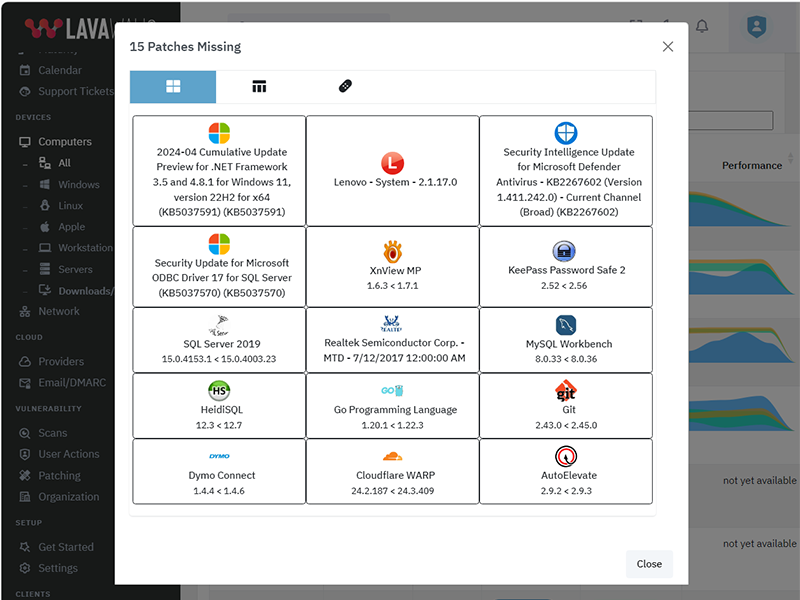
Application Patching
Some of the applications that Lavawall® monitors and audits include:
Logos are property of their respective trademark holders and are not affiliated with ThreeShield or Lavawall. We have not audited the security of most of the listed tools.
The above listing includes products that Lavawall® monitors through public information and/or proprietary statistical analysis.
Although we do have a partner relationship with some of the listed products and companies, they do not necessarily endorse Lavawall® or have integrations with our systems.
Learn More

Flexible Term; Flexible Service
Flexibility for your dynamic business
You need to get your arms around compliance and security and don't want to get locked into “high watermark” monthly invoices or multi-year contracts.
Pay-as-you-need monthly pricing
DIY, full management, and coaching options
Choose the plan that's right for you
Simple pricing. No hidden fees. Advanced features for you business.
Month
Annual
Get 2 months free with Annual!
Minimal
Pay-as-you go. No Commitments.
C$3.25 /computer/Month
C$32.50 /computer/Year
-
1 computer
or 1 of the following cloud integrations:
AWS, Axcient, Datto, Google, Huntress, M365, Sophos Central integrations
(each integration counts as 1 computer) -
50+ application patches
-
30-day Logs
-
Security configuration monitoring
-
Lavawall® support
-
Domain Scanning: C$20/domainDomain Scanning: C$200/domain
-
Level 3+ IT support for IT
-
IT coaching sessions
-
Automatic discount and upgrade to Business Standard at 77 devices
Business Standard
Basic services with 90-day logs
C$250 /Month
C$2,250 /Year
-
150 computers
Additional computers: C$2.50/computerAdditional computers: C$25/computer -
25 domains
Additional domains: C$15/domainAdditional domains: C$150/domain -
AWS, Axcient, Datto, Google, Huntress, M365, Sophos Central integrations
-
7,438+ application patch monitoring
-
90-day Logs
-
Security configuration monitoring
-
Lavawall® support
-
Level 3+ IT support for IT
-
IT coaching sessions
-
Automatic discount and upgrade to Full Service at 950 devices
Full Service
Optimize & audit-ready your IT
$2,250 /Month
$22,500 /Year
-
1,500 computers included
Additional computers: C$2/computerAdditional computers: C$20/computer -
125 domains included
Additional domains: C$10/domainAdditional domains: C$100/domain -
AWS, Axcient, Datto, Google, Huntress, M365, Sophos Central integrations
-
7,438+ application patch monitoring
-
365-day Logs
-
Security configuration monitoring
-
Lavawall® support
-
L3 IT support for IT
-
IT coaching sessions
Frequently Asked Questions
If you can not find answer to your question in our FAQ, you can always contact us or email us. We will answer you shortly!
General Questions
- Two years after a missing Plex Media Server led to the LastPass breach, the
Remote Monitorign and Management (RMM) tools availabel for Manged IT Service Providers (MSPs)
still didn't monitor for it.
Going through industry-specific applications, we noticed many were missing from the big RMM and patching providers. MSPs, insurance providers, and organizations that put their cleints at risk need to know about these risks, which lead to the largest number of critical audit findings and breaches - After 20 years of writing the same audit findings about system configurations, Payment Card Industry (PCI) compliance, and missing patches, our technical co-founder wanted to make it easier fo avoid these findings
- The existing risk visibility tools for insurance underwriters took a shallow look at Internet-facing risks. They -- along with all businesses -- need a deeper view of the threats that could actually lead to breaches.
- Domain risks
- Operating System (OS) patches
- Application patches
- Network vulnerabilities
- Cloud vulnerabilities
- OS configurations
You can use your own logo for the console and notifications. You can also use a CNAME to automatically brand your console.
Note: you cannot currently re-proxy the CNAME to Lavawall® through Cloudflare.
Lavawall® supports the following operating systems:
Lavawall® does not currently support non systemd distributions, such as Devuan, Artix Linux, PCLinuxOS, OpenWRT, and DD-WRT. However, we will support them by the end of 2024.
In June 2024, we combined the Windows and Linux systems for a consistent experience. This added support for RedHat and MacOS.
Privacy & Security
However, we do allow passwords and use passwords as part of the zero-knowledge encryption for your clients' sensitive data, such as Bitlocker keys and Personally-Identifiable Information (PII).
These passwords use Argon2id slow hashes with individual salts and peppers. They go through a few hash rounds on your computer before being sent to our servers for further hashing.
We have added an additional secure tunnel that mimics the TLS process within the public TLS tunnel. This extra tunnel provides authentication and privacy for the workstations and the Lavawall® servers to prevent attacks such as the one that took down Solar Winds.
Remote access is not enabled for read-only and audit situations.
Get In Touch
Have a quick question and don't want to talk? Send us a quick note with the form below and we'll reply within one business day.
NW Calgary:
ThreeShield Information Security Corporation
600 Crowfoot Crescent N.W., Suite 340
Calgary, Alberta
T3G 0B4
SE Calgary:
ThreeShield Information Security Corporation
105, 11500 - 29th St. SE
Calgary, Alberta
T2Z 3W9
Canada

